Metabolic Syndrome
How to submit an article:
- Registered users can submit any published journal article that has a unique DOI (Digital Object Identifier) name or link to Research Hub.
- For example, you can paste the full DOI link:
https://doi.org/10.1109/5.771073or just the DOI name:10.1109/5.771073into the field above and click submit. - The person who is first to submit a valid article to Research Hub will forever be credited for it, and every article submission earns you +6 Research Points.
Metabolic syndrome is a cluster of conditions, including high blood pressure, high blood sugar, excess body fat around the waist, and abnormal cholesterol or triglyceride levels, that increase the risk of heart disease, stroke, and diabetes.
Also known as: Metabolic Disorder
Sub-Topics:
Related Topics
Published research studies are articles that present the findings of original research that has undergone a peer-review process and has been made publicly available in scholarly journals, books or other media.
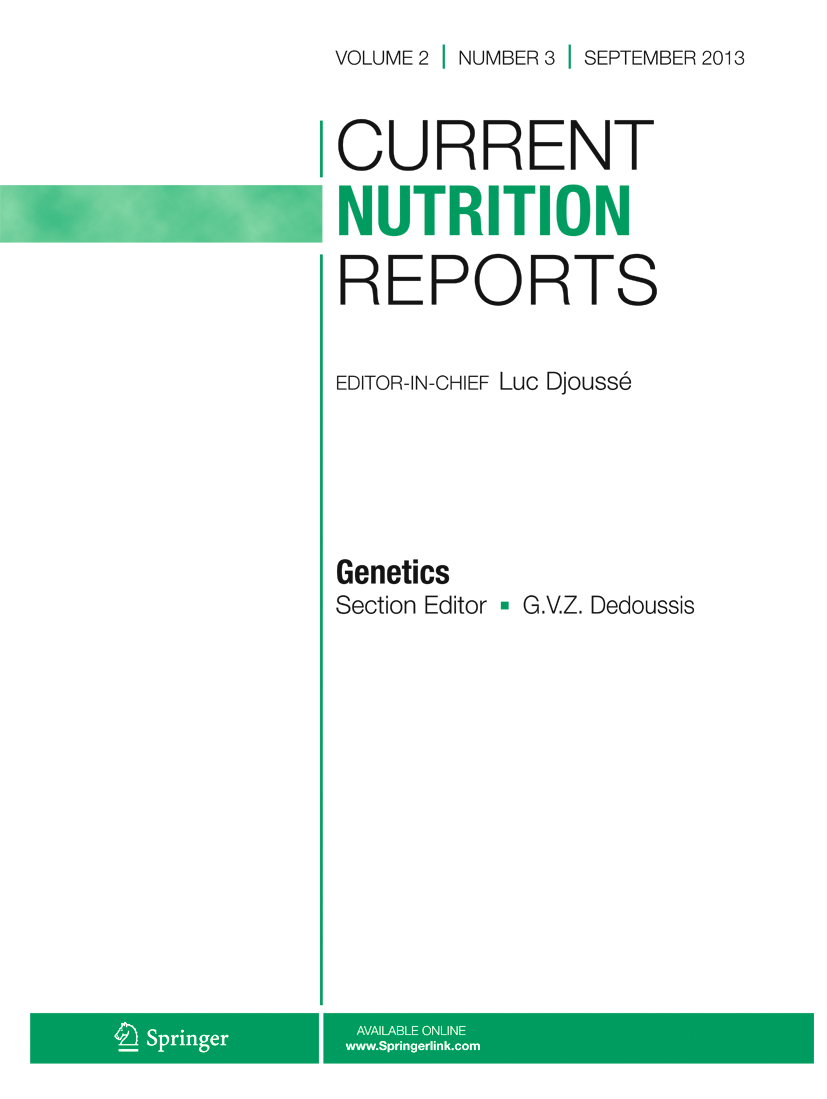
Ziziphus jujuba (Jujube) in Metabolic Syndrome: From Traditional Medicine to Scientific Validation
2024 Oct 01 Current Nutrition Reports Ghasemzadeh Rahbardar M, Fazeli Kakhki H, Hosseinzadeh H
Review Article Obesity Type 2 Diabetes Metabolic Syndrome High Blood Pressure JujubeZiziphus jujuba and its main components, lupeol and betulinic acid, show promise in treating complications of metabolic syndrome, including diabetes, obesity, and hypertension.

The effects of jujube (Ziziphus jujube) on metabolic and mental health outcomes in patients with metabolic syndrome: A randomized controlled trial
2024 Jun Complementary Therapies in Medicine Parastouei K, Nashtar SB, Al-Attar Z, Shekarchizadeh-Esfahani P, Askari G
Randomised Controlled Trial Stress Triglyceride Cholesterol JujubeConsuming jujube notably reduces waist circumference, triglycerides, and stress, while increasing high-density lipoprotein cholesterol in subjects with metabolic syndrome.
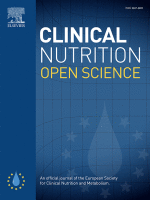
The effect of consumption Ziziphus jujuba on metabolic factors: A systematic review and meta-analysis of randomized clinical trials
2024 Jun Clinical Nutrition Open Science Heydarian A, Tahvilian N, Shahinfar H, Abbas-Hashemi SA, Bahari H, Cheshmeh S, et al.
Meta-Analysis Systematic Review Metabolic Syndrome JujubeDaily intake of Ziziphus jujuba can control weight and improve lipid profile indicators.
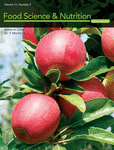
The effects of plum products consumption on lipid profile in adults: A systematic review and dose–response meta‐analysis
2024 Feb 25 Food Science & Nutrition Heydarian A, Tahvilian N, Asbaghi O, Cheshmeh S, Nadery M, Aryaeian N
Systematic Review Cholesterol LDL PlumEating plums, especially dried plums, significantly lowers LDL levels and total cholesterol levels, particularly in adults with existing health issues.

Peanut (Arachis hypogaea L.) seeds and by-products in metabolic syndrome and cardiovascular disorders: A systematic review of clinical studies
2024 Jan Phytomedicine Nunes YC, Santos GO, Machado NM, Otoboni AMMB, Laurindo LF, Bishayee A, et al.
Peanuts and their products, containing phytochemicals, can improve metabolic parameters and have the potential to be used as a sustainable and low-cost alternative for the prevention and treatment of MetS and CVD.
Systematic Review Review Article PeanutResearch insights are moderated by the Research Hub team and offer an at-a-glance overview of interesting research findings.

2024 Current Nutrition Reports
Ziziphus jujuba and its main components, lupeol and betulinic acid, show promise in treating complications of metabolic syndrome, including diabetes, obesity, and hypertension.
Review Article High Blood Pressure Jujube Obesity Type 2 Diabetes
Ziziphus jujuba (Jujube) in Metabolic Syndrome: From Traditional Medicine to Scientific Validation
Ghasemzadeh Rahbardar M, Fazeli Kakhki H, Hosseinzadeh H

2024 Clinical Nutrition Open Science
Daily intake of Ziziphus jujuba can control weight and improve lipid profile indicators.
Meta-Analysis Jujube
The effect of consumption Ziziphus jujuba on metabolic factors: A systematic review and meta-analysis of randomized clinical trials
Heydarian A, Tahvilian N, Shahinfar H, Abbas-Hashemi SA, Bahari H, Cheshmeh S, et al.

2024 Complementary Therapies in Medicine
Consuming jujube notably reduces waist circumference, triglycerides, and stress, while increasing high-density lipoprotein cholesterol in subjects with metabolic syndrome.
Randomised Controlled Trial Cholesterol Jujube Stress Triglyceride
The effects of jujube (Ziziphus jujube) on metabolic and mental health outcomes in patients with metabolic syndrome: A randomized controlled trial
Parastouei K, Nashtar SB, Al-Attar Z, Shekarchizadeh-Esfahani P, Askari G

2024 Food Science & Nutrition
Eating plums, especially dried plums, significantly lowers LDL levels and total cholesterol levels, particularly in adults with existing health issues.
Systematic Review Cholesterol LDL Plum
The effects of plum products consumption on lipid profile in adults: A systematic review and dose–response meta‐analysis
Heydarian A, Tahvilian N, Asbaghi O, Cheshmeh S, Nadery M, Aryaeian N
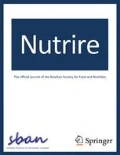
2023 Nutrire
Almond consumption has beneficial impacts on cardiovascular diseases, diabetes, obesity, and it can improve cognitive performance and protect against skin aging.
Review Article Almond Cardiovascular Disease Cognitive Function Obesity Type 2 Diabetes
Nutritional and health-beneficial values of almond nuts consumption
Ouzir M
Review Articles
Review articles summarise and critically evaluate the current state of research on a specific topic or field by synthesising multiple primary research studies.

Ziziphus jujuba (Jujube) in Metabolic Syndrome: From Traditional Medicine to Scientific Validation
2024 Oct 01 Current Nutrition Reports Ghasemzadeh Rahbardar M, Fazeli Kakhki H, Hosseinzadeh H
Review Article Obesity Type 2 Diabetes Metabolic Syndrome High Blood Pressure JujubeZiziphus jujuba and its main components, lupeol and betulinic acid, show promise in treating complications of metabolic syndrome, including diabetes, obesity, and hypertension.

The effect of consumption Ziziphus jujuba on metabolic factors: A systematic review and meta-analysis of randomized clinical trials
2024 Jun Clinical Nutrition Open Science Heydarian A, Tahvilian N, Shahinfar H, Abbas-Hashemi SA, Bahari H, Cheshmeh S, et al.
Meta-Analysis Systematic Review Metabolic Syndrome JujubeDaily intake of Ziziphus jujuba can control weight and improve lipid profile indicators.

The effects of plum products consumption on lipid profile in adults: A systematic review and dose–response meta‐analysis
2024 Feb 25 Food Science & Nutrition Heydarian A, Tahvilian N, Asbaghi O, Cheshmeh S, Nadery M, Aryaeian N
Systematic Review Cholesterol LDL PlumEating plums, especially dried plums, significantly lowers LDL levels and total cholesterol levels, particularly in adults with existing health issues.

Peanut (Arachis hypogaea L.) seeds and by-products in metabolic syndrome and cardiovascular disorders: A systematic review of clinical studies
2024 Jan Phytomedicine Nunes YC, Santos GO, Machado NM, Otoboni AMMB, Laurindo LF, Bishayee A, et al.
Peanuts and their products, containing phytochemicals, can improve metabolic parameters and have the potential to be used as a sustainable and low-cost alternative for the prevention and treatment of MetS and CVD.
Systematic Review Review Article Peanut
Nutritional and health-beneficial values of almond nuts consumption
2023 Nov 02 Nutrire Ouzir M
Review Article Cardiovascular Disease Cognitive Function Almond Type 2 Diabetes ObesityAlmond consumption has beneficial impacts on cardiovascular diseases, diabetes, obesity, and it can improve cognitive performance and protect against skin aging.
Clinical Trials
Clinical trials are research studies that involve people and are conducted to evaluate the safety and efficacy of new treatments or interventions, such as drugs, medical devices, or behavioural therapies.

The effects of jujube (Ziziphus jujube) on metabolic and mental health outcomes in patients with metabolic syndrome: A randomized controlled trial
2024 Jun Complementary Therapies in Medicine Parastouei K, Nashtar SB, Al-Attar Z, Shekarchizadeh-Esfahani P, Askari G
Randomised Controlled Trial Stress Triglyceride Cholesterol JujubeConsuming jujube notably reduces waist circumference, triglycerides, and stress, while increasing high-density lipoprotein cholesterol in subjects with metabolic syndrome.

Effects of olive oil on hepatic steatosis and liver enzymes: A systematic review
2023 Oct Journal of Functional Foods Ma Y, Ding X, Gu J, Zhou S, Jiang Y
The systematic review concludes that olive oil, used for eating or cooking in randomized controlled trials, demonstrated significant reductions in hepatic steatosis grading through ultrasound and decreases in aspartate transaminase and alanine transaminase levels, suggesting promise in ameliorating hepatic steatosis. However, further investigations are needed to explore the potential effects of different olive oil types or olive polyphenols on chronic liver ailments.
Systematic Review Randomised Controlled Trial Obesity Liver Enzymes Olive Oil Fatty Liver Disease Type 2 Diabetes
Pomegranate (Punica granatum L.) peel extract ameliorates metabolic syndrome risk factors in patients with non-alcoholic fatty liver disease: a randomized double-blind clinical trial
2023 Aug 22 Nutrition Journal Barghchi H, Milkarizi N, Belyani S, Norouzian Ostad A, Askari VR, Rajabzadeh F, et al.
Randomised Controlled Trial NAFLD Pomegranate PeelPomegranate peel extract, along with a calorie deficit diet, could improve risk factors of metabolic syndrome and reduce fatty liver in patients with non-alcoholic fatty liver disease.
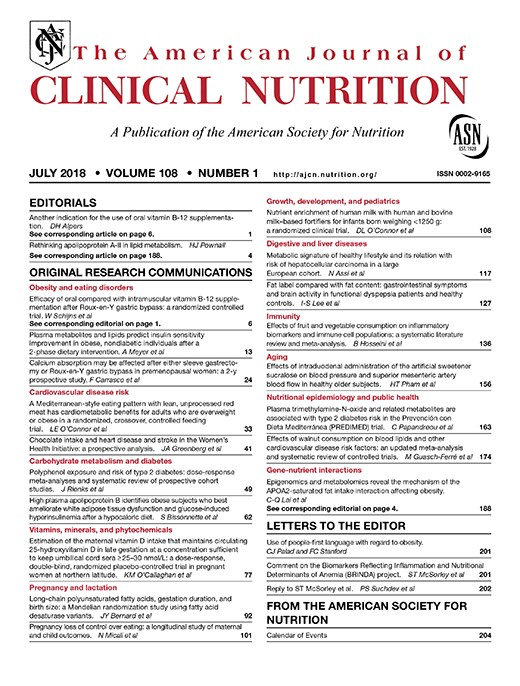
Wild blueberry (poly)phenols can improve vascular function and cognitive performance in healthy older individuals: a double-blind randomized controlled trial
2023 Jun The American Journal of Clinical Nutrition Wood E, Hein S, Mesnage R, Fernandes F, Abhayaratne N, Xu Y, et al.
Randomised Controlled Trial Cognitive Function Blueberry High Blood Pressure Cardiovascular DiseaseConsumption of blueberry powder daily improves vascular function, cognitive abilities, and reduces blood pressure in healthy older individuals.
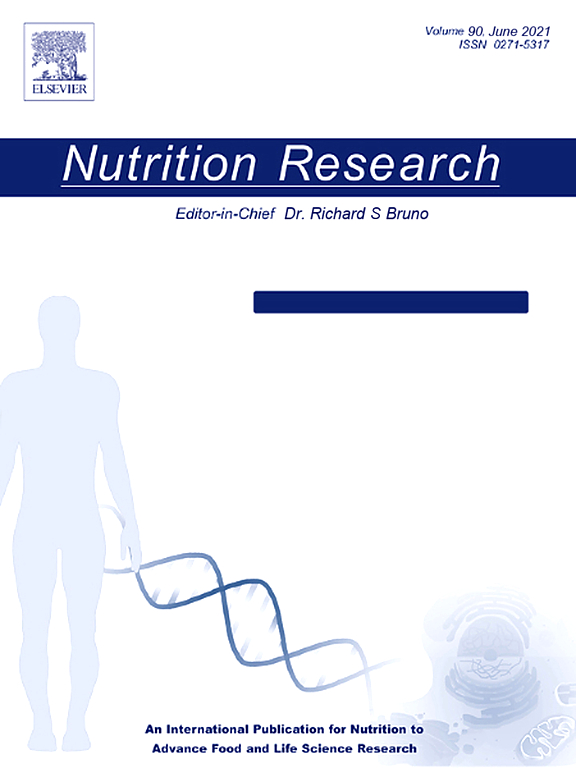
Pecan-enriched diet improves cholesterol profiles and enhances postprandial microvascular reactivity in older adults
2023 Mar Nutrition Research Cogan B, Pearson RC, Paton CM, Jenkins NT, Cooper JA
Daily consumption of 68 g of pecans for 4 weeks resulted in greater reductions in fasting total cholesterol, low-density lipoprotein (LDL) cholesterol, non-high-density lipoprotein cholesterol, LDL particle number, and LDL medium compared to a nut-free diet. Postprandial triglyceride levels were suppressed with pecan consumption, and improvements in microvascular reactivity were observed. Fasting macro- and microvascular function remained unaffected. The findings suggest that pecan consumption may contribute to improved vascular health and reduced cardiovascular risk in older adults.
Clinical Study Randomised Controlled Trial CholesterolStudy Protocols
Published study protocols are detailed plans that outline the objectives, methodology, statistical analyses, and organisation of a research study that have been made publicly available for others to review and use as a reference.

Acupuncture for Impaired Glucose Tolerance in People With Obesity: A Protocol for a Multicenter Randomized Controlled Trial
2022 Jul 12 Frontiers in Medicine Yan Y, Sun Y, Wang X, Zhu L, Chen Y, Liu Z
This study aims to provide quantitative clinical evidence of acupuncture effectiveness and safety in treating IGT in people who are overweight/obese.
Study Protocol Impaired glucose tolerance Obesity
Efficacy and safety of acupuncture combined with Chinese herbal medicine in the treatment of type 2 diabetes mellitus: A protocol for a systematic review and meta-analysis
2021 Oct 29 Medicine Bao, Pengjie MD, PhDa; Mi, Jia MD, PhDa, b; Yu, et al.
This study will generate evidence-based data on the treatment of T2DM with acupuncture combined with Chinese herbal medicine and will provide new ideas and treatment modalities to investigate in future research.
Study Protocol Chinese Herbal Medicine Type 2 Diabetes
A protocol for systematic review and meta-analysis of the effect of acupoint therapy for essential hypertension
2020 Oct 2 Medicine Zhang XD, Zhao JP, Wu JJ, Xie Q, Wang Y, Liu QG
Acupuncture has been reported to have potential effects in treating hypertension. This study provides the evidence of acupuncture therapy for essential hypertension.
Study Protocol High Blood PressurePresentation Slides

Review Article
Ziziphus jujuba and its main components, lupeol and betulinic acid, show promise in treating complications of metabolic syndrome, including diabetes, obesity, and hypertension.
Ghasemzadeh Rahbardar M, Fazeli Kakhki H, Hosseinzadeh H

Meta-Analysis
Daily intake of Ziziphus jujuba can control weight and improve lipid profile indicators.
Heydarian A, Tahvilian N, Shahinfar H, Abbas-Hashemi SA, Bahari H, Cheshmeh S, Aryaeian N

Randomised Controlled Trial
Consuming jujube notably reduces waist circumference, triglycerides, and stress, while increasing high-density lipoprotein cholesterol in subjects with metabolic syndrome.
Parastouei K, Nashtar SB, Al-Attar Z, Shekarchizadeh-Esfahani P, Askari G

Systematic Review
Eating plums, especially dried plums, significantly lowers LDL levels and total cholesterol levels, particularly in adults with existing health issues.
Heydarian A, Tahvilian N, Asbaghi O, Cheshmeh S, Nadery M, Aryaeian N

Review Article
Almond consumption has beneficial impacts on cardiovascular diseases, diabetes, obesity, and it can improve cognitive performance and protect against skin aging.
Ouzir M
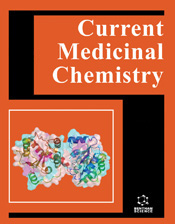
Systematic Review
Consumption of apple cider vinegar significantly improves certain risk factors for cardiometabolic syndrome, notably fasting blood glucose, glycosylated hemoglobin, and total cholesterol.
Dadkhah Tehrani S, Keshani M, Rouhani MH, Moallem SA, Bagherniya M, Sahebkar A
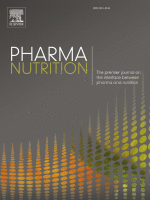
Review Article
Soy protein, bioactive peptides, and isoflavones are generally safe for consumption and may help reduce the risk of several significant health conditions.
Tan ST, Tan SS, Tan CX

Systematic Review
Pomegranate consumption positively affects triglycerides, low-density lipoprotein cholesterol, and high-density lipoprotein cholesterol levels.
Bahari H, Rezaiian F, Goudarzi K, Nooshan Mirmohammadali S, Asbaghi O, sadat Hosseini kolbadi K, Naderian M, Hosseini A

Review Article
Soybean intake can potentially reduce risks of several cancers, type 2 diabetes, osteoporosis, and hot flashes, and it may negatively impact some drug treatments and cause allergies.
Kang JH, Dong Z, Shin SH

Randomised Controlled Trial
Pomegranate peel extract, along with a calorie deficit diet, could improve risk factors of metabolic syndrome and reduce fatty liver in patients with non-alcoholic fatty liver disease.
Barghchi H, Milkarizi N, Belyani S, Norouzian Ostad A, Askari VR, Rajabzadeh F, Goshayeshi L, Ghelichi Kheyrabadi SY, Razavidarmian M, Dehnavi Z, Sobhani SR, Nematy M

Systematic Review
Natural calcium-rich mineral waters offer a bioavailable calcium source, beneficial for bone health, cardiovascular function, weight management, and overall well-being.
Pop MS, Cheregi DC, Onose G, Munteanu C, Popescu C, Rotariu M, Turnea MA, Dograru G, Ionescu EV, Oprea D, Iliescu MG, Minea M, Stanciu LE, Silișteanu SC, Oprea C

Review Article
Honey intake has observed beneficial effects on various health aspects like cardiovascular, metabolic risk factors, and wound healing, primarily replacing other sweeteners.
Palma-Morales M, Huertas JR, Rodríguez-Pérez C
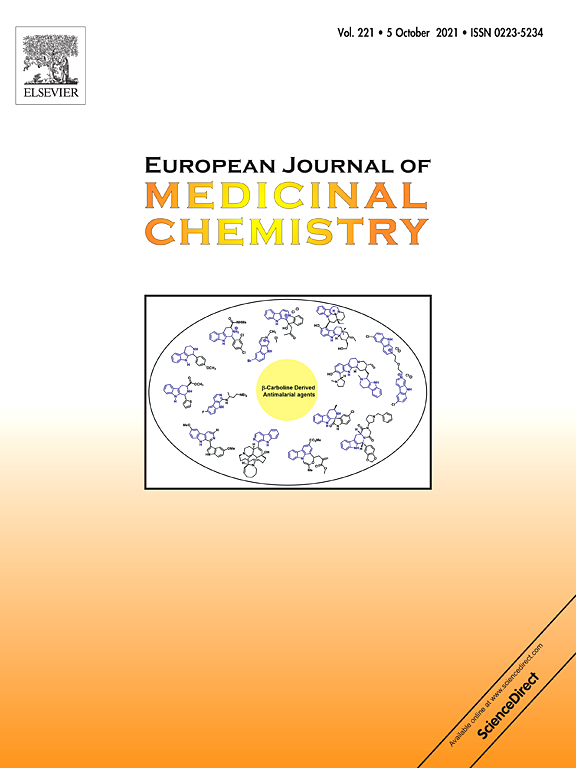
Animal Study
Jin Si Huang Ju tea, a traditional Chinese beverage, contains compounds that potentially reduce lipids, mitigate insulin resistance and reduce liver inflammation in vitro.
Li X, Li R, Wang X, Zhang X, Xiao Z, Wang H, Sun W, Yang H, Yu P, Hu Q, Guo Q, Sun H
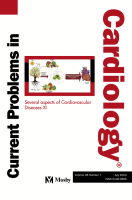
Systematic Review
Oat consumption can significantly improve lipid profiles, particularly reducing total cholesterol and LDL cholesterol, with potential positive effects on triglycerides and HDL cholesterol under certain conditions.
Amerizadeh A, Ghaheh HS, Vaseghi G, Farajzadegan Z, Asgary S

Randomised Controlled Trial
Consumption of blueberry powder daily improves vascular function, cognitive abilities, and reduces blood pressure in healthy older individuals.
Wood E, Hein S, Mesnage R, Fernandes F, Abhayaratne N, Xu Y, Zhang Z, Bell L, Williams C, Rodriguez-Mateos A

Review Article
Sardines, being an affordable source of Omega-3 and other cardioprotective nutrients, can potentially reduce the need for Omega-3 supplementation and manage cardiometabolic diseases.
Santos HO, May TL, Bueno AA
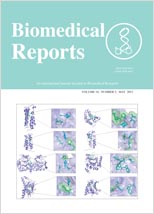
Clinical Study
Consuming a honey-based gel, such as 'Bear Strength honey gel,' led to a notable reduction in diastolic and mean arterial blood pressure, with gender-specific improvements in redox status among healthy adults.
Patouna A, Sevdalis P, Papanikolaou K, Kourti M, Skaperda Z, Jamurtas A, Kouretas D

Review Article
Oats, in various edible forms, can regulate appetite hormones, aid weight management, strengthen the immune system, and contribute to gut health, making them effective for obesity management.
Shehzad A, Rabail R, Munir S, Jan H, Fernández-Lázaro D, Aadil RM

Cohort Study
Heavy coffee consumption increases the risk of cardiovascular disease mortality in individuals with severe hypertension, while green tea consumption does not.
Teramoto M, Yamagishi K, Muraki I, Tamakoshi A, Iso H

Clinical Study
Chrysanthemum extract can be utilised as a natural ingredient to lessen post-meal cholesterol levels and enhance antioxidant status, after eating a high-fat meal.
Chen L, Sun J, Pan Z, Lu Y, Wang Z, Yang L, Sun G
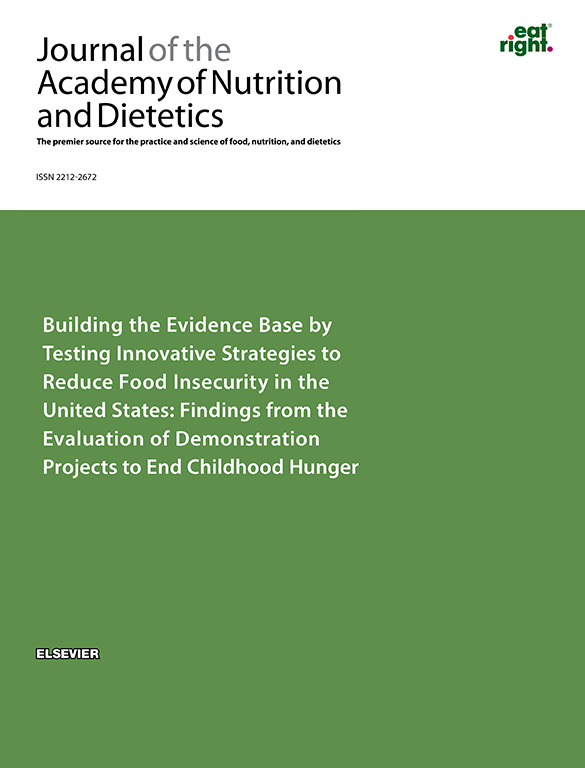
Systematic Review
Avocado consumption may lead to a reduction in total cholesterol and low-density lipoprotein cholesterol levels in people with high cholesterol without impacting body weight.
James-Martin G, Brooker PG, Hendrie GA, Stonehouse W

Systematic Review
Tart cherry juice shows promise in aiding blood sugar control and supporting heart health, highlighting its potential as a natural dietary addition.
Moosavian SP, Maharat M, Chambari M, Moradi F, Rahimlou M
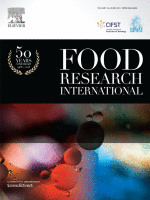
Animal Study
Pu-erh tea and its ingredient theabrownin improve liver, jejunum, and adipose tissue functions in metabolic syndrome mice, modulating circadian rhythm, glycerophospholipid, and linoleic acid metabolism.
Hou Y, Zhang Z, Cui Y, Peng C, Fan Y, Tan C, Wang Q, Liu Z, Gong J

Randomised Controlled Trial
In women with polycystic ovary syndrome, cinnamon reduced insulin resistance and testosterone levels similar to metformin, and ginger decreased follicle-stimulating and luteinizing hormones.
Dastgheib M, Barati-Boldaji R, Bahrampour N, Taheri R, Borghei M, Amooee S, Mohammadi-Sartang M, Wong A, Babajafari S, Mazloomi SM
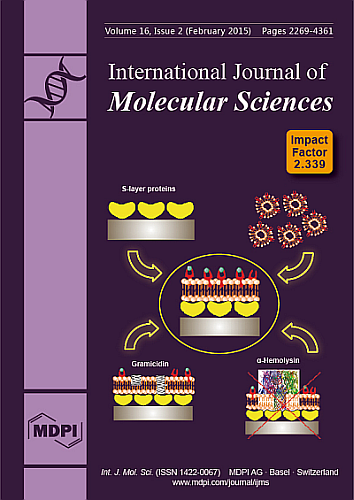
Network Pharmacology
Two varieties of chrysanthemum have similar therapeutic effects but operate through distinct mechanisms, revealing potential for precise applications in both traditional and modern medicine.
Wang Y, Li Y, Guo W, Yang X, Qu J, Gao M, Chen S, Dong J, Li Q, Wang T
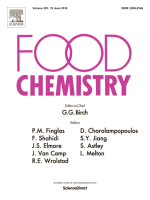
Experimental Study
Pu-erh tea, through the increase of Cinnabarinic acid, can improve obesity induced by circadian rhythm disorders by enhancing fat metabolism and altering gut microbes.
Hu S, Hu C, Luo L, Zhang H, Zhao S, Liu Z, Zeng L
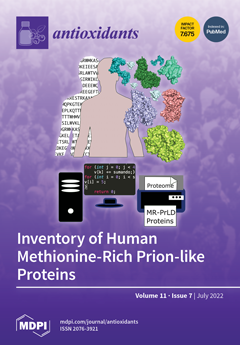
Randomised Controlled Trial
Pomegranate extract consumption improves antioxidant levels, reduces oxidative stress and cardiovascular risk factors including blood pressure and body fat, and increases lean body mass.
Al-Dujaili EAS, Casey C, Stockton A

Meta-Analysis
Consumption of broccoli sprouts significantly lowers blood pressure, potentially due to properties of sulforaphane.
Houshialsadat Z, Mirmiran P, Zare-Javid A, Bahadoran Z, Houghton C

Systematic Review
Traditional Chinese Medicine (TCM) demonstrates weight loss efficacy and metabolic benefits in overweight and obese individuals
Wen ZG, Zhang QQ, Zhang LL, Shen MF, Huang YS and Zhao LH
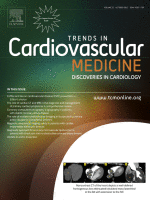
Review Article
Consuming 2-3 cups of coffee daily can help prevent cardiovascular disease and drinking at least 3 cups of green tea has similar benefits.
Chieng D, Kistler PM
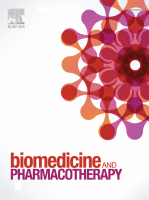
Review Article
Pomegranate extract and its phytochemicals can potentially inhibit severe acute respiratory syndrome coronavirus 2 (SARS-COV-2) and improve gut microbiota, preventing obesity and diabetes.
Maphetu N, Unuofin JO, Masuku NP, Olisah C, Lebelo SL

Meta-Analysis
Green tea supplementation can significantly reduce body weight in women with polycystic ovary syndrome, hence potentially beneficial in its clinical management.
Colonetti L, Grande AJ, Toreti IR, Ceretta LB, da Rosa MI, Colonetti T
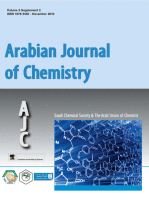
Randomised Controlled Trial
Pumpkin seed supplementation can significantly reduce fasting blood glucose levels in Indian women suffering from metabolic syndrome.
Jane Monica S, John S, Madhanagopal R, Sivaraj C, Khusro A, Arumugam P, Gajdács M, Esther Lydia D, Umar Khayam Sahibzada M, Alghamdi S, Almehmadi M, Emran TB
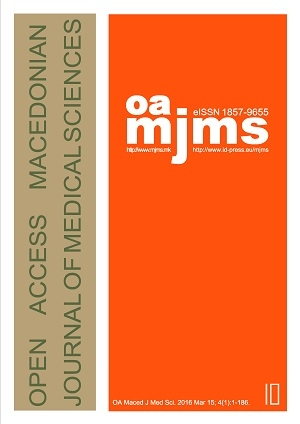
Systematic Review
Pumpkin seeds, in combination with other plants, show potential as an alternative treatment method for diabetes mellitus.
Tasya Z, Amiruddin R, Syam A, Thamrin Y

Animal Study
Cooked adzuki beans contribute notably to preventing obesity and regulating gut microbiota composition, while also alleviating systemic inflammation and metabolic disorders.
Zhao Q, Liu Z, Zhu Y, Wang H, Dai Z, Yang X, Ren X, Xue Y, Shen Q

Animal Study
Certain natural mineral waters, when combined with a low-calorie diet, effectively reduce cholesterol and glucose levels in mice with metabolic syndrome.
Narciso L, Martinelli A, Torriani F, Frassanito P, Bernardini R, Chiarotti F, Marianelli C

Review Article
Cherries and blueberries, rich in phenolic compounds, can be effectively used in pharmaceutical products, smart foods, functional beverages, and nutraceuticals to prevent or treat diseases.
Gonçalves AC, Nunes AR, Flores-Félix JD, Alves G, Silva LR
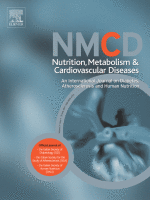
Meta-Analysis
Blueberry and cranberry consumption significantly lowered fasting blood glucose and glycated hemoglobin levels in individuals with diabetes.
Delpino FM, Figueiredo LM, Gonçalves da Silva T, Flores TR
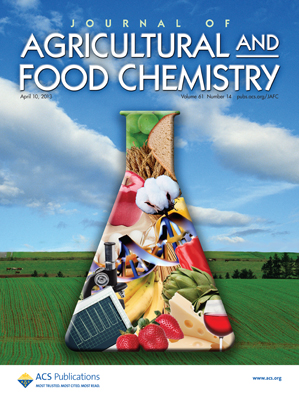
Experimental Study
Pu-erh tea may prevent circadian rhythm disorders by promoting tryptophan metabolism and signaling interactions in the gut-liver-brain axis.
Hu S, Luo L, Bian X, Liu RH, Zhao S, Chen Y, Sun K, Jiang J, Liu Z, Zeng L
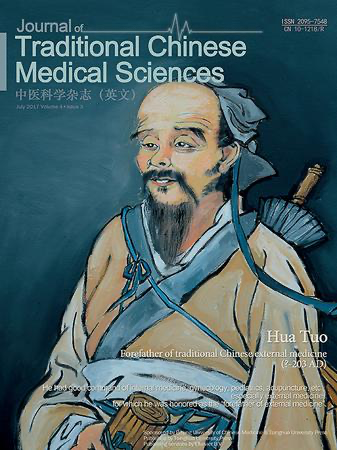
Review Article
Pu-erh tea possesses therapeutic mechanisms potentially beneficial for metabolic diseases due to its interaction with liver and gut microbiome.
Jia W, Rajani C, Lv A, Fan TP, Zheng X

Review Article
Extra virgin olive oil (EVOO) has beneficial health properties and can promote cardiovascular health, lipoprotein metabolism, and diabetes management in clinical nutrition.
Jiménez-Sánchez A, Martínez-Ortega AJ, Remón-Ruiz PJ, Piñar-Gutiérrez A, Pereira-Cunill JL, García-Luna PP

Review Article
Purple carrot roots, rich in bioactive compounds like anthocyanin, may be effective in preventing metabolic syndrome and cancer by reducing inflammation and metabolic changes.
Rasheed H, Shehzad M, Rabail R, Kowalczewski P, Kidoń M, Jeżowski P, Ranjha MMAN, Rakha A, Din A, Aadil RM
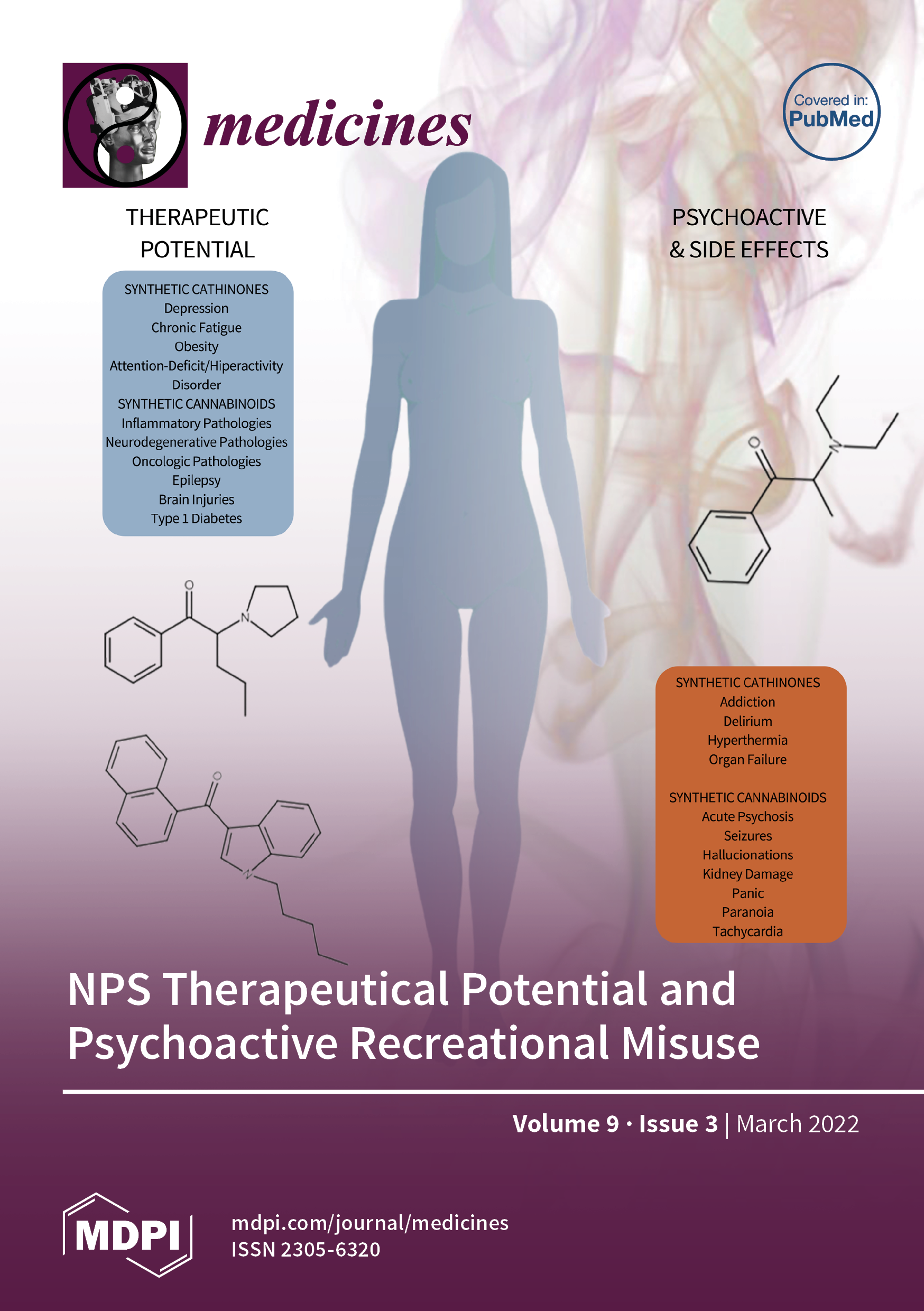
Systematic Review
Wen Dan Tang potentially treats neurological, psychiatric disorders, cardiovascular diseases, and digestive disorders, and might improve life quality in headache patients.
Pradhan SK, Li Y, Gantenbein AR, Angst F, Lehmann S, Shaban H
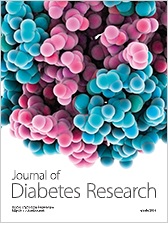
Randomised Controlled Trial
Vitamin D supplementation effectively improves depressive symptoms in women with type 2 diabetes and low vitamin D levels, regardless of the dose administered.
Penckofer S, Ridosh M, Adams W, Grzesiak M, Woo J, Byrn M, Kouba J, Sheean P, Kordish C, Durazo-Arvizu R, Wallis D, Emanuele MA, Halaris A

Meta-Analysis
Certain species of citrus extracts effectively control dyslipidemia, reducing total cholesterol, LDL, and triglycerides while increasing HDL, primarily due to their rich antioxidant composition.
Carvalho BMR, Nascimento LC, Nascimento JC, Gonçalves VSS, Ziegelmann PK, Tavares DS, Guimarães AG
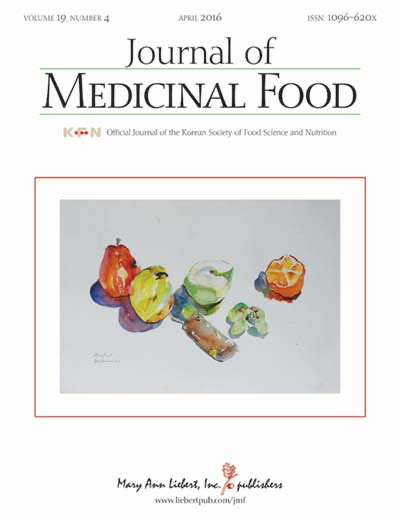
Systematic Review
Raspberry consumption can help to reduce blood glucose levels and stabilize the blood lipid profile due to its bioactive compounds.
Piña-Contreras N, Martínez-Moreno AG, Ramírez-Anaya JDP, Espinoza-Gallardo AC, Valdés EHM
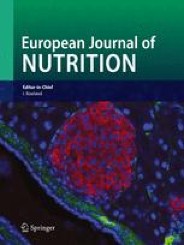
Meta-Analysis
Oat supplementation interventions can improve cardiovascular health markers among adults, regardless of their diet or metabolic conditions.
Llanaj E, Dejanovic GM, Valido E, Bano A, Gamba M, Kastrati L, Minder B, Stojic S, Voortman T, Marques-Vidal P, Stoyanov J, Metzger B, Glisic M, Kern H, Muka T

Review Article
Chrysanthemums, popular floricultural crops, not only hold significant ornamental value but also exhibit various therapeutic potentials including antioxidant, antimicrobial, and anticancer activities.
Hadizadeh H, Samiei L, Shakeri A

Review Article
Coconut water possesses unique compound profiles that imbue it with a broad spectrum of medical properties, incorporating aspects of nutrition, pharmacology, and disease prevention.
Rethinam P, Krishnakumar V
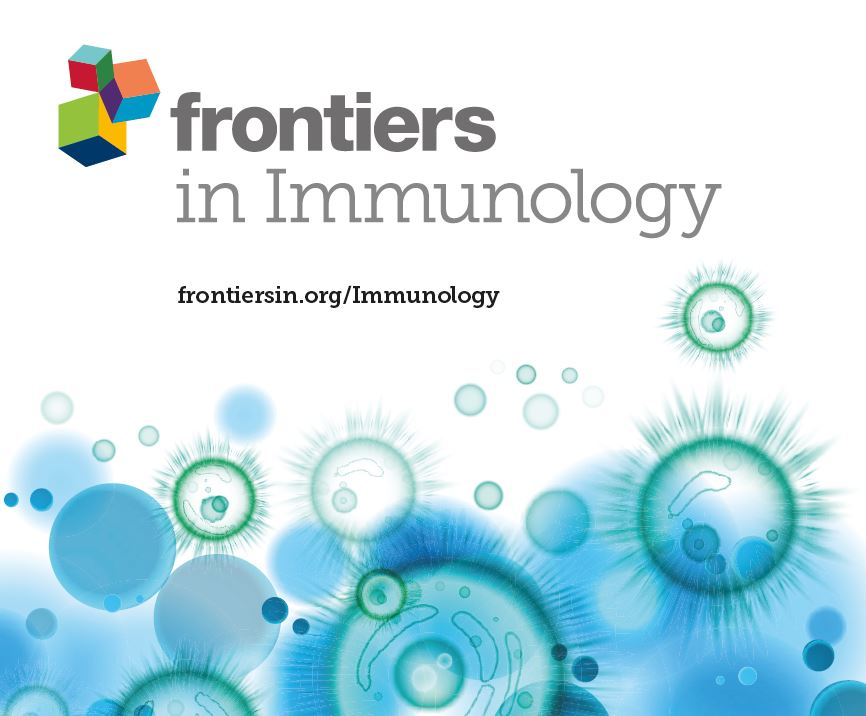
Experimental Study
Consuming oats significantly lessens total and LDL cholesterol levels and mediates a prebiotic effect on the gut microbiome, contributing to its cholesterol-lowering ability.
Xu D, Feng M, Chu YF, Wang S, Shete V, Tuohy KM, Liu F, Zhou X, Kamil A, Pan D, Liu H, Yang X, Yang C, Zhu B, Lv N, Xiong Q, Wang X, Sun J, Sun G, Yang Y
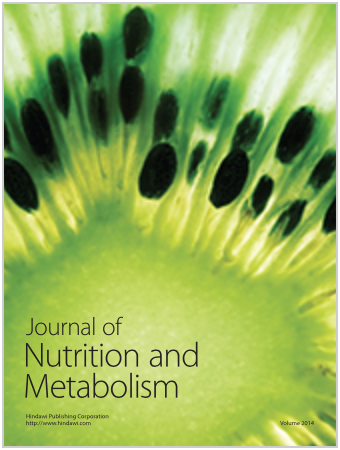
Review Article
The pomegranate plant has a rich inventory of phytochemical constituents showing pharmacological efficiency in treating cardiovascular and endocrine diseases.
Eghbali S, Askari SF, Avan R, Sahebkar A
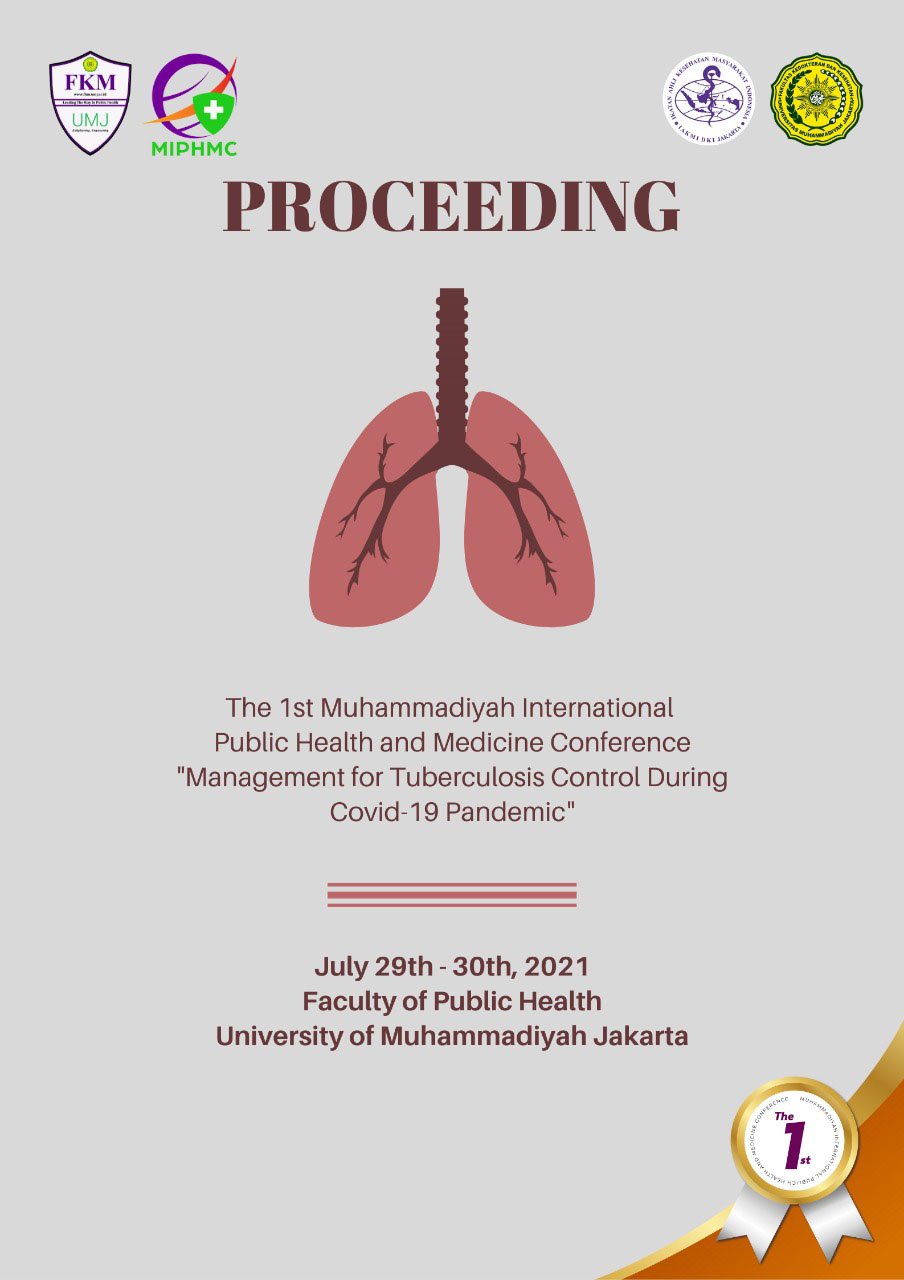
Cohort Study
Consumption of sardines can effectively prevent type 2 diabetes mellitus and hypertension, particularly in senior citizens, due to their high omega 3, EPA, and DHA content.
Nurdiana Febriyanti V

Cohort Study
Sardines are highly proven to be able to effectively prevent type 2 diabetes, prevent hypertension, and lower blood pressure, especially for senior citizens.
Nurdiana Febriyanti V
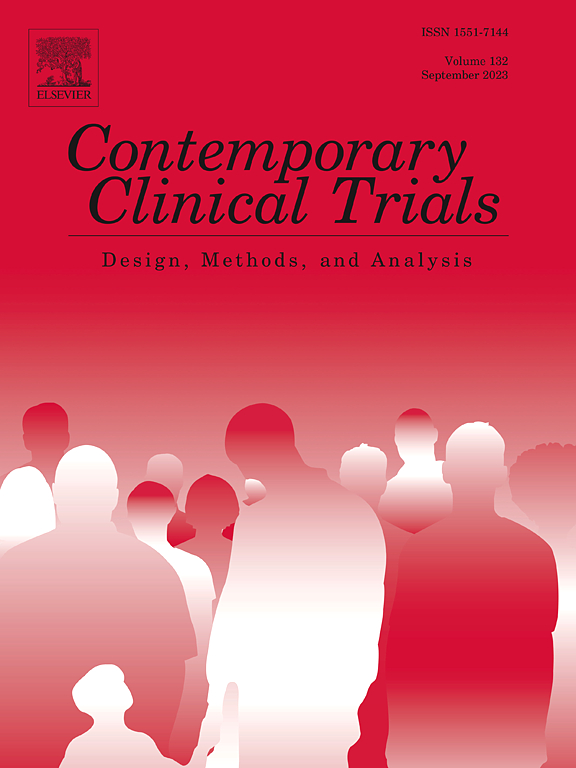
Randomised Controlled Trial
Consumption of one avocado per day can potentially reduce visceral adiposity and subsequently decrease the risk of diabetes and cardiovascular disease.
Reboussin DM, Kris-Etherton PM, Lichtenstein AH, Li Z, Sabate J, Matthan NR, Petersen K, Rajaram S, Vitolins M, Ford N

Experimental Study
Tiger nut and walnut supplementation in diets can improve testosterone levels and help control vasoconstriction, potentially benefiting hypertensive individuals.
Olabiyi AA, Morsch VM, Oboh G, Schetinger MRC

Systematic Review
Almond-based diets may be effective in promoting short-chain fatty acid-producing bacteria and lowering glycated haemoglobin and body mass index in patients with type 2 diabetes compared with control.
Ojo O, Wang XH, Ojo OO, Adegboye ARA
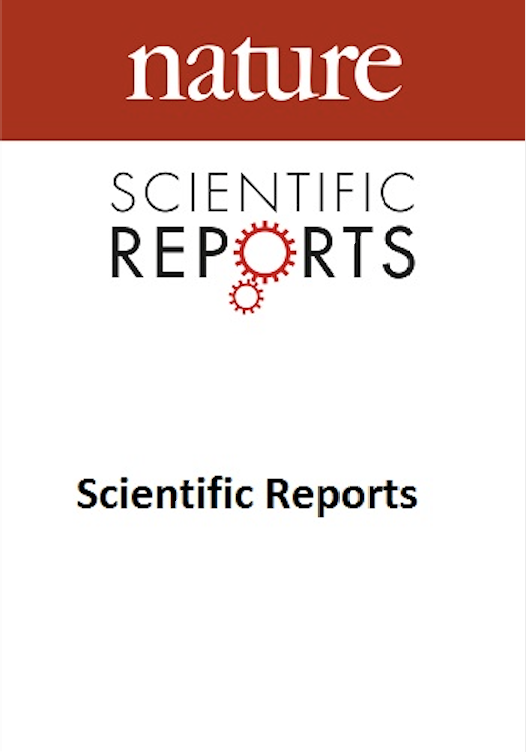
Clinical Study
Consumption of green tea enriched with a citrus polyphenol, α-glucosyl hesperidin, can prevent weight gain and reduce body mass index, especially in individuals under 50 years.
Yoshitomi R, Yamamoto M, Kumazoe M, Fujimura Y, Yonekura M, Shimamoto Y, Nakasone A, Kondo S, Hattori H, Haseda A, Nishihira J, Tachibana H
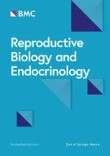
Systematic Review
Green tea extract could be considered a potential agent to attenuate PCOS complications mainly due to its effect on weight loss and glycemic levels.
Maleki V, Taheri E, Varshosaz P, Tabrizi FPF, Moludi J, Jafari-Vayghan H, Shadnoush M, Jabbari SHY, Seifoleslami M, Alizadeh M

Animal Study
Adzuki beans, when added to a high-fat diet, lessen obesity, improve liver function, enhance insulin sensitivity, and balance gut microbiota.
Zhao Q, Hou D, Fu Y, Xue Y, Guan X, Shen Q
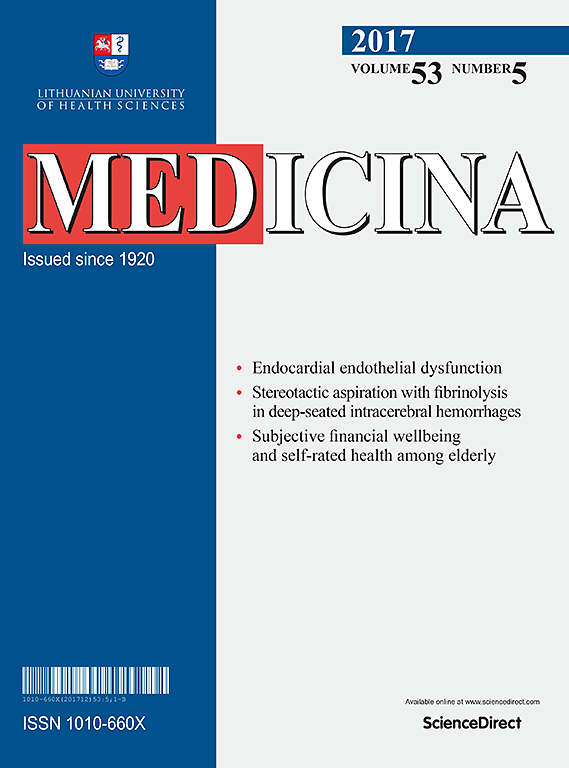
Systematic Review
Coffee extract supplementation significantly improves parameters of metabolic syndrome, with the effects varying according to the types and doses of coffee administered.
Ramli NNS, Alkhaldy AA, Mhd Jalil AM

Randomised Controlled Trial
Pomegranate extract supplement shows potential in improving glycemic indicators, serum lipids, anthropometrics, and blood pressure in patients with nonalcoholic fatty liver disease.
Goodarzi R, Jafarirad S, Mohammadtaghvaei N, Dastoorpoor M, Alavinejad P

Review Article
Coffee consumption may contribute to the prevention of several inflammatory diseases and types of cancer, with reduced mortality risk deemed safe up to 400mg of caffeine per day.
Barrea L, Pugliese G, Frias-Toral E, El Ghoch M, Castellucci B, Chapela SP, Carignano MA, Laudisio D, Savastano S, Colao A, Muscogiuri G

Systematic Review
Drinking coffee may be linked to lower mortality risk in type 2 diabetes patients.
Shahinfar H, Jayedi A, Khan TA, Shab-Bidar S
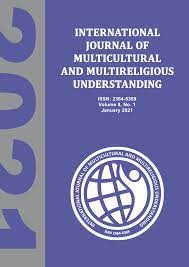
Randomised Controlled Trial
Combined exercise and coffee consumption significantly reduce fasting blood sugar and abdominal obesity in middle-aged, pre-diabetic men.
Taheri AR, Talebi N

Animal Study
Omega-3 fatty acids found in selected fish oils, particularly smoked eel, effectively managed dyslipidemia and reduced cardiovascular disease risk factors.
Kontostathi M, Isou S, Mostratos D, Vasdekis V, Demertzis N, Kourounakis A, Vitsos A, Kyriazi M, Melissos D, Tsitouris C, Karalis E, Klamarias L, Dania F, Papaioannou GT, Roussis V, Polychronopoulos E, Anastassopoulou J, Theophanides T, Rallis MC, Black H

Review Article
Almonds can support colonic microbiota health by promoting microflora richness and diversity, increasing the ratio of symbiotic to pathogenic microflora, and concentrations of health-promoting colonic bioactives.
Dreher ML

Review Article
Recent systematic reviews and meta-analyses of nut RCTs showed that almonds were the only nut that had a small but significant decrease in both mean body mass and fat mass, compared to control diets.
Dreher ML

Systematic Review
The consumption of cocoa or dark chocolate can reduce low-density lipoprotein cholesterol and fasting blood sugar levels in diabetic patients.
Darand M, Hajizadeh Oghaz M, Hadi A, Atefi M, Amani R
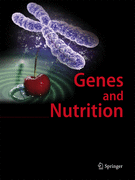
Randomised Controlled Trial
Consumption of blueberry supplement did not show significant improvement in metabolic health markers, however, it induced changes in gene expression, indicating a potential longer-term effect.
Rousseau M, Horne J, Guénard F, de Toro-Martín J, Garneau V, Guay V, Kearney M, Pilon G, Roy D, Couture P, Couillard C, Marette A, Vohl MC
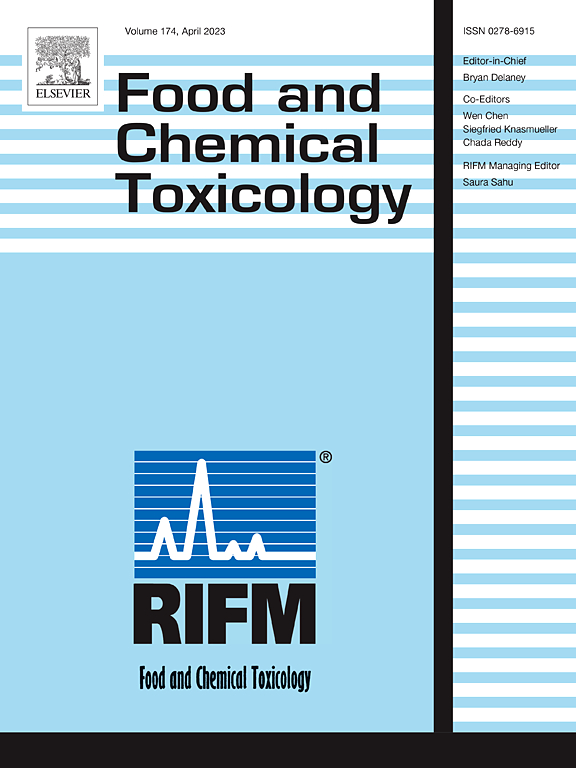
Systematic Review
Cocoa flavanols exhibit health and aging benefits and may act as powerful agents in preventing chronic diseases such as cardiovascular and metabolic disorders, and cancer.
Martin M, Ramos S

Systematic Review
Isoflavones found in soybeans can reduce risks of certain cancers and alleviate menopause-related symptoms among women, such as vasomotor syndromes, spinal bone loss, and hypertension.
Chen LR, Chen KH

Cohort Study
Moderate coffee consumption may potentially reduce the risk of low HDL-C and high fasting blood glucose amongst Korean male adults.
Tan LJ, Jeon HJ, Park SH, Kim SA, Lim K, Chung S, Chang PS, Lee J, Kang D, Shin S
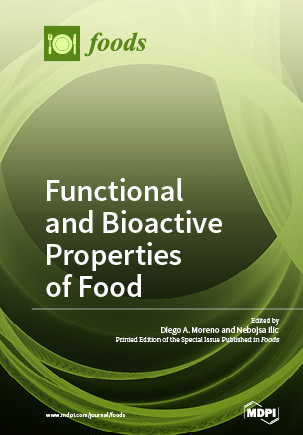
Animal Study
Traditional fermented products made from soybeans and rice, commonly consumed in the Japanese diet, show significant potential in preventing the progression of fatty liver disease.
Kanno R, Koshizuka T, Miyazaki N, Kobayashi T, Ishioka K, Ozaki C, Chiba H, Suzutani T

Randomised Controlled Trial
Enriching a regular diet with oat β-glucan can improve glycemic control, augment feelings of fullness, and positively modulate gut microbiota in individuals with type-2 diabetes.
Pino JL, Mujica V, Arredondo M
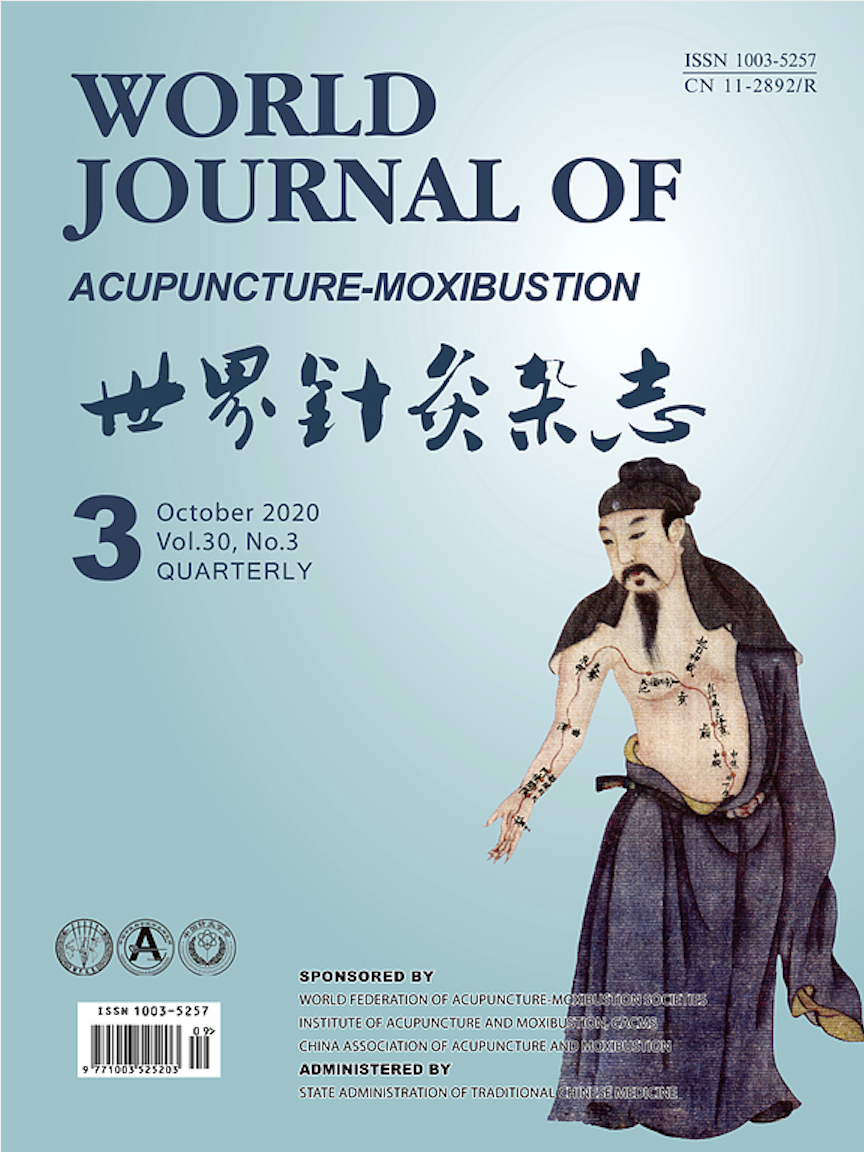
Review Article
Chinese medicine formulas for nonalcoholic fatty liver disease were superior to antioxidants in alanine aminotransferase normalization.
Dai L, Zhou WJ, Zhong LLD, Tang XD, Ji G

Systematic Review
Acupuncture appears to have an effect on diabetic peripheral neuropathy, effectively improving nerve conduction and clinical symptoms.
Yu B, Li M, Huang H, Ma S, Huang K, Zhong Z, Yu S, Zhang L.

Review Article
Green tea, coffee, wine, and curry have beneficial health effects due to the polyphenols they contain, which possess both antioxidant and pro-oxidant properties.
Ohishi T, Fukutomi R, Shoji Y, Goto S, Isemura M
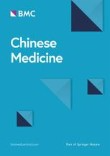
Systematic Review
Traditional Chinese medicines might have various beneficial effects for non-alcoholic fatty liver disease such as improving TCM syndrome score, liver function, and body lipid profile.
Liang Z, Chen X, Shi J, Hu H, Xue Y, Ung COL

Systematic Review
Traditional Chinese medicines such as Shenge formula, Shugan Jianpi Huatan decoction and Heze lipid lowing oral liquid decoction might have positive effects on NAFLD by improving TCM syndrome scores, liver function, and body lipid profile.
Liang, Z., Chen, X., Shi, J. et al.
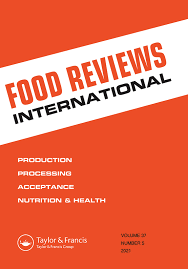
Review Article
Oily fish, particularly sardines, due to their high omega-3 and taurine content, may play a protective role in slowing the progression towards type 2 diabetes.
Díaz-Rizzolo DA, Miro A, Gomis R
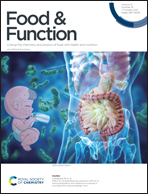
Systematic Review
Almond intake significantly changed the concentrations of triglycerides, total cholesterol and low-density lipoproteins
Asbaghi O, Moodi V, Hadi A, Eslampour E, Shirinbakhshmasoleh M, Ghaedi E, Miraghajani M
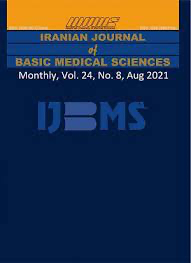
Review Article
Eggplant can be useful in the treatment of metabolic syndrome and its complications.
Yarmohammadi, F., Ghasemzadeh Rahbardar, M., Hosseinzadeh, H
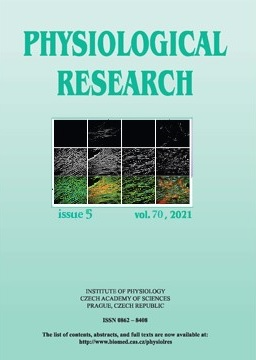
Review Article
Tea and coffee possess health promoting properties and can effectively prevent and treat metabolic disorders, including obesity, through the suppression of fat storage.
Sirotkin AV, Kolesarova A
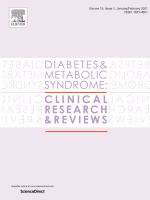
Systematic Review
The supplementary intake of green tea does not significantly affect blood glucose, fasting insulin, hemoglobin A1c, and insulin resistance in patients with type 2 diabetes mellitus.
Asbaghi O, Fouladvand F, Gonzalez MJ, Ashtary-Larky D, Choghakhori R, Abbasnezhad A
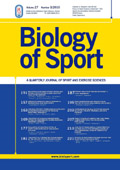
Randomised Controlled Trial
Walnut consumption coupled with concurrent training improves lipid profile, steroid hormone levels, and systematic inflammation in elderly men.
Kamoun A, Hammouda O, Turki M, Maaloul R, Chtourou M, Bouaziz M, Driss T, Souissi N, Chamari K, Ayadi F

Review Article
Regular coffee consumption, due to its bioactive compounds, may have protective effects against chronic disorders and certain neurodegenerative conditions.
Socała K, Szopa A, Serefko A, Poleszak E, Wlaź P

Systematic Review
This study showed that the intervention time was concentrated at 4–8 weeks, mainly through Chinese herbal medicine for the prevention and treatment of elderly hypertension and the complications.
Zhang Y, Wang B, Ju C, Liu L, Zhu Y, Mei J, Liu Y, Xu F

Systematic Review
Chilli pepper supplementation had significant effect on low density lipoprotein-cholesterol and marginally significant effect on body weight.
Jang, HH., Lee, J., Lee, SH. et al.

Randomised Controlled Trial
Daily consumption of tart cherry juice may reduce processes involved in accelerated atherogenesis, potentially decreasing the risk of cardiovascular diseases.
Johnson SA, Navaei N, Pourafshar S, Jaime SJ, Akhavan NS, Alvarez-Alvarado S, Proaño GV, Litwin NS, Clark EA, Foley EM, George KS, Elam ML, Payton ME, Arjmandi BH, Figueroa A

Review Article
Jujube fruits contain a high amount of various bioactive compounds exerting antioxidant, anti-inflammatory, antiobesity, anti-cardiovascular disease, hepatoprotective, antidiabetic, anti-microbial, anticancer, and gastrointestinal-protective effects.
Rashwan, A. K, Karim, N., Shishir, M. Rezaul Islam, Bao, T., Lu, Y., & Chen, W.
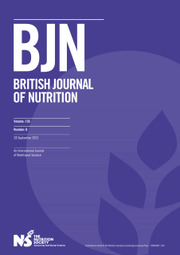
Systematic Review
Consuming walnuts does not significantly alter blood glucose levels, indicating cardiovascular protective effects of walnuts are not due to improved glycaemic control.
Neale, E., Guan, V., Tapsell, L., & Probst, Y.
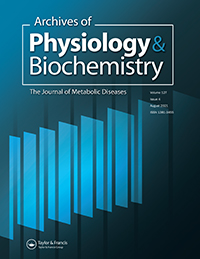
Systematic Review
Green tea supplementation raises adiponectin levels in patients with type 2 diabetes mellitus.
Asbaghi O, Fouladvand F, Ashtary-Larky D, Bagheri R, Choghakhori R, Wong A, Baker JS, Abbasnezhad A
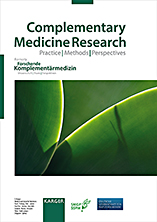
Systematic Review
Green tea consumption notably reduces body weight, body mass index, and body fat, especially in long-term use, at lower dosages, and among overweight individuals with type-2 diabetes.
Asbaghi O, Fouladvand F, Gonzalez MJ, Aghamohammadi V, Choghakhori R, Abbasnezhad A
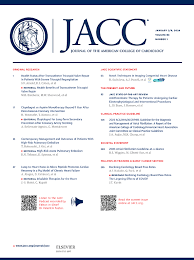
Randomised Controlled Trial
Incorporating daily doses of walnuts into the diet of elderly individuals significantly reduces the concentrations of several inflammatory biomarkers.
Cofán M, Rajaram S, Sala-Vila A, Valls-Pedret C, Serra-Mir M, Roth I, Freitas-Simoes TM, Bitok E, Sabaté J, Ros E

Systematic Review
Acupuncture is beneficial in the treatment of metabolic syndrome and could serve as an alternative therapy for metabolic syndrome-associated conditions.
Li X, Jia HX, Yin DQ, Zhang ZJ
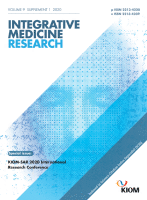
Systematic Review
The effect of acupuncture on weight loss may be maximized when acupuncture treatment is combined with lifestyle management in patients with overweight.
SeoyoungKim

Review Article
Many clinical and experimental studies suggest that Chinese herbal formula are effective in reducing fatty liver disease, and revolving inflammation via many mechanistic pathways.
Zhang Shuwei, Wong Yui-Tung, Tang Ka-Yu, Kwan Hiu-Yee, Su Tao

Meta-Analysis
Supplementation with blueberry shows a potential for beneficial impact on reducing body weight, which might indirectly influence cardiovascular disease risk factors.
Miraghajani M, Momenyan S, Arab A, Hasanpour Dehkordi A, Symonds ME
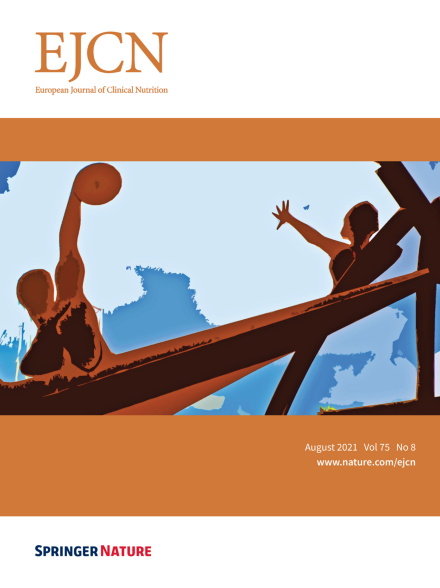
Systematic Review
The literature overall supports an inverse association between green tea and cardiovascular disease-related health outcomes, while the included meta-analyses generally suggested an inverse association between green tea and BMI-related and blood pressure outcomes.
Abe SK, Inoue M

Clinical Study
Montmorency tart cherry juice can significantly improve blood pressure, fasting glucose, cholesterol rates and respiratory exchange ratio in those with metabolic syndrome.
Desai T, Roberts M, Bottoms L
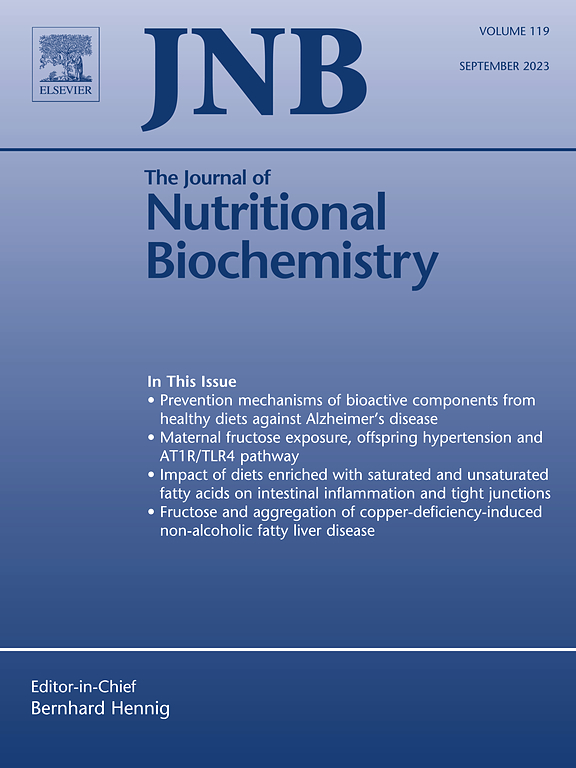
Review Article
Honey, with its variable composition based on botanical origin, exhibits antioxidant and anti-inflammatory properties, suggesting its potential efficacy in managing obesity-related dysfunctions, including neurodegeneration, through improved glycemic control and lipid profile.
Terzo S, Mulè F, Amato A
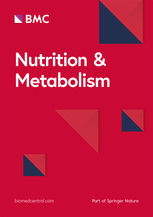
Systematic Review
Green tea supplementation significantly lowers fasting glucose levels but does not significantly affect fasting insulin and haemoglobin A1c values.
Xu R, Bai Y, Yang K, Chen G

Systematic Review
The study shows the promising potential of Suan Zao Ren as a multi-effect traditional Chinese medicine derived from the seeds of Ziziphus Jujuba.
Su-Rong He, Chong-Bo Zhao, Jing-Xia Zhang, Jing Wang, Bo Wu, Chun-Jie Wu,

Systematic Review
Green tea extract supplement intake reduces serum triglyceride and total cholesterol in patients with type 2 diabetes mellitus, especially when used long term.
Asbaghi O, Fouladvand F, Moradi S, Ashtary-Larky D, Choghakhori R, Abbasnezhad A

Meta-Analysis
Chronic consumption of cranberry or cherry juice might considerably improve blood pressure levels.
Wang Y, Gallegos JL, Haskell-Ramsay C, Lodge JK

Daily consumption of coffee and green tea is linked with decreased body mass index, body fat percentage, and cardiovascular risks in middle-aged Japanese women.
Yonekura Y, Terauchi M, Hirose A, Odai T, Kato K, Miyasaka N

Systematic Review
Green tea intake can significantly reduce body weight, body mass index and waist circumference, with the greatest effect seen with lower dosages and shorter treatment durations.
Lin Y, Shi D, Su B, Wei J, Găman MA, Sedanur Macit M, Borges do Nascimento IJ, Guimaraes NS

Systematic Review
Almond intake significantly decreased diastolic blood pressure, and inconsistently, almonds decreased systolic blood pressure.
Eslampour E, Asbaghi O, Hadi A, Abedi S, Ghaedi E, Lazaridi AV, Miraghajani M

Meta-Analysis
Strawberry interventions significantly reduced CRP levels and may improve total cholesterol and LDL-cholesterol in individuals with high baseline levels.
Gao Q, Qin LQ, Arafa A, Eshak ES, Dong JY

Animal Study
Adzuki bean paste consumption can reduce fat accumulation in rats by lowering energy intake and altering gut microbiota composition.
Han KH, Ohashi S, Sasaki K, Nagata R, Pelpolage S, Fukuma N, Reed JD, Shimada K, Kadoya N, Fukushima M
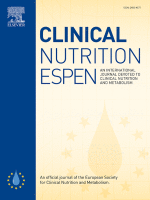
Systematic Review
Cinnamon supplementation can improve blood pressure by a modest degree.
Hadi A, Campbell MS, Hassani B, Pourmasoumi M, Salehi-sahlabadi A, Hosseini SA
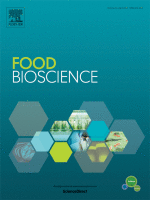
Review Article
Different varieties of dates pose impressive nutritional profiles and exhibit multiple health benefits, including anti-cancer, anti-inflammatory, and cholesterol lowering potential.
Hussain MI, Farooq M, Syed QA

Systematic Review
Apple vinegar consumption has potential health benefits, including weight loss and lower blood glucose levels, with seemingly insignificant side effects.
Launholt TL, Kristiansen CB, Hjorth P
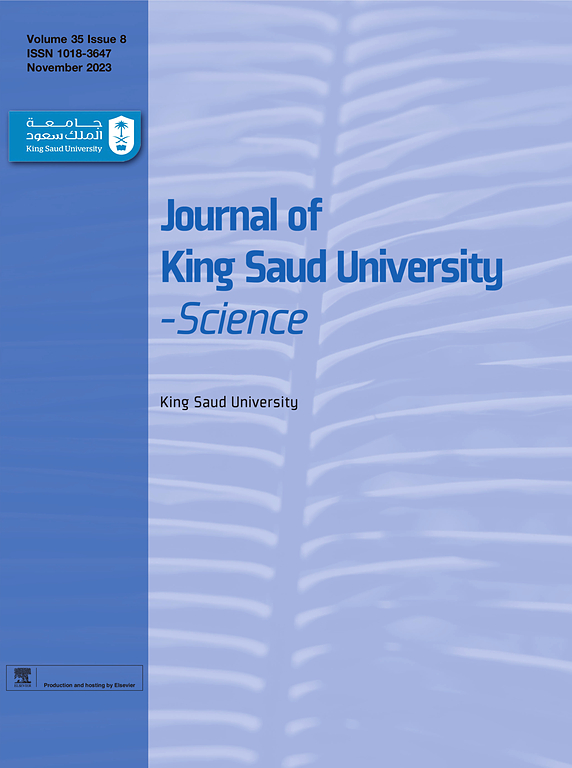
Systematic Review
Almond consumption was found to significantly reduce systolic blood pressure.
Li Z, Bhagavathula AS, Batavia M, Clark C, Abdulazeem HM, Rahmani J, Yin F

Clinical Study
Green tea intake can significantly reduce both systolic and diastolic blood pressure.
Xu R, Yang K, Ding J, Chen G

Randomised Controlled Trial
Daily avocado consumption improves attentional inhibition and increases serum lutein concentrations, irrespective of changes in lutein status, in adults with obesity.
Edwards CG, Walk AM, Thompson SV, Reeser GE, Erdman JW, Burd NA, Holscher HD, Khan NA

Systematic Review
Almond intake significantly reduces body weight and fat mass in adults, yet it does not impact body mass index, waist circumference, or fat-free mass.
Eslampour E, Moodi V, Asbaghi O, Ghaedi E, Shirinbakhshmasoleh M, Hadi A, Miraghajani M

Review Article
Coffee and decaffeinated coffee appear to provide long-term protection against developing type 2 diabetes, potentially due to the influence of chlorogenic acids.
Williamson G

Randomised Controlled Trial
Consuming walnuts daily can reduce cardiovascular risk factors in chronic kidney disease patients without altering significant physiological levels.
Sanchis P, Molina M, Berga F, Muñoz E, Fortuny R, Costa-Bauzá A, Grases F, Buades JM
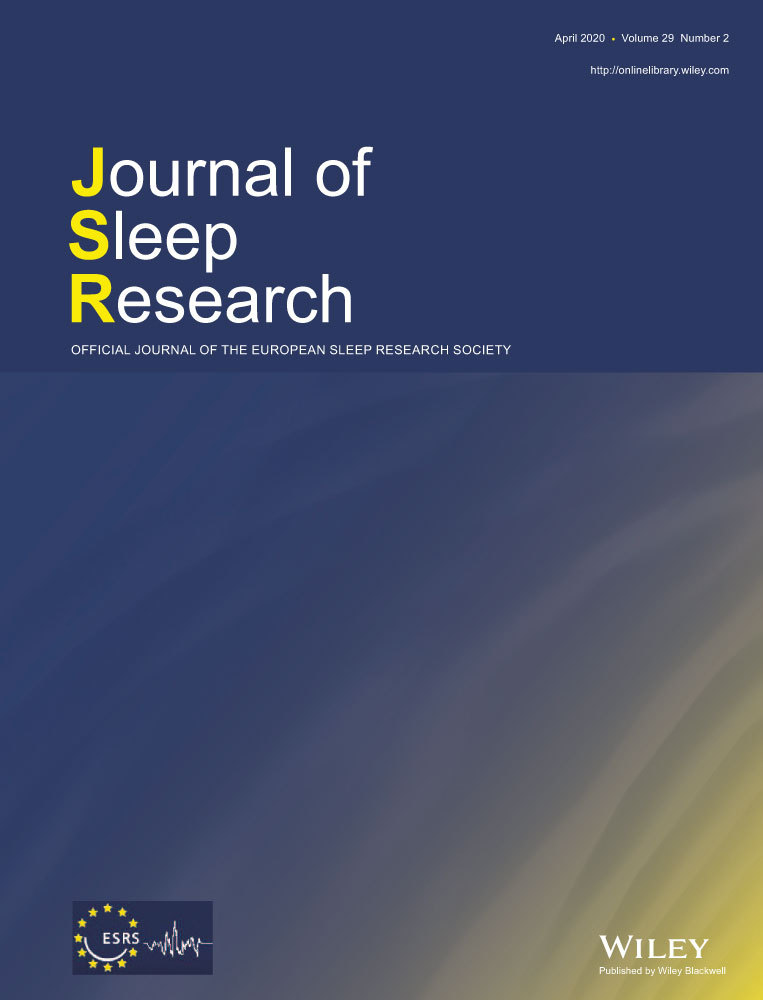
Randomised Controlled Trial
Acupuncture therapy does not impact the severity of Obstructive Sleep Apnea, blood pressure, or quality of life in hypertensive patients.
Silva MVFP, Lustosa TC, Arai VJ, Couto Patriota TLG, Lira MPF, Lins‐Filho OL, Chalegre ST, B.B.A.S. K, Secundo IV, Pedrosa RP

Experimental Study
Pu-erh tea's ability to lower blood pressure is primarily due to theabrownins and caffeine, which cause vasodilation irrespective of the endothelium.
Luo Dan, Chen Xuejiao, Zhu Xu, Liu Shuang, Li Jie, Xu Jianping, Zhao Jinhua, Ji Xu

Randomised Controlled Trial
Synbiotic pomegranate juice daily consumption for 8 weeks enhances metabolic, oxidative, inflammatory, and blood pressure outcomes in females with Polycystic Ovarian Syndrome.
Esmaeilinezhad Z, Barati-Boldaji R, Brett NR, de Zepetnek JOT, Bellissimo N, Babajafari S, Sohrabi Z

Experimental Study
Pu-erh tea was found to lower triglyceride and total cholesterol levels more significantly than green, oolong, or black teas.
Huang, F., Zheng, X., Ma, X. et al.

Systematic Review
Cinnamon supplementation leads to a significant reduction in both systolic and diastolic blood pressure in adults.
Seyed Mohammad Mousavi, Ahmad Jayedi, Yahya Jalilpiran, Maryam Hajishafiee, Azadeh Aminianfar, Ahmad Esmaillzadeh.
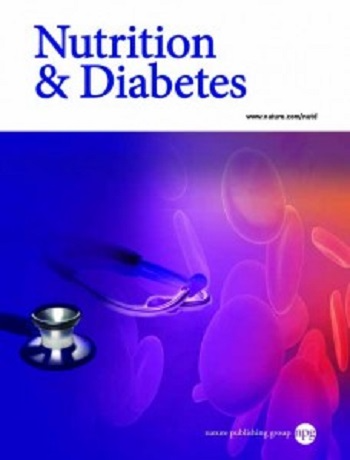
Systematic Review
Pu-erh tea has considerable inhibitory effects on alpha-amylase and alpha-glucosidase, indicating potential anti-hyperglycemic benefits.
Yang, CY., Yen, YY., Hung, KC. et al.

Systematic Review
Our study found ginger is a promising herbal medicine for health care, which is beneficial for nausea and vomiting, metabolic syndrome and pain.
Li H, Liu Y, Luo D, Ma Y, Zhang J, Li M, Yao L, Shi X, Liu X, Yang K.

Systematic Review
Acupuncture is effective in the intervention of overweight/obesity in Asians.
Yao J, He Z, Chen Y, Xu M, Shi Y, Zhang L, Li Y.
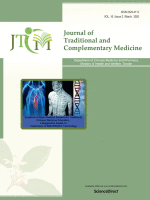
Systematic Review
Coffee consumption, in the long term, improves glucose metabolism but may cause unfavourable acute effects.
Reis CEG, Dórea JG, da Costa THM

Systematic Review
Drinking certain types of mineral water can positively influence metabolic syndrome factors like blood pressure, cholesterol, and blood sugar levels.
Costa-Vieira D, Monteiro R, Martins MJ
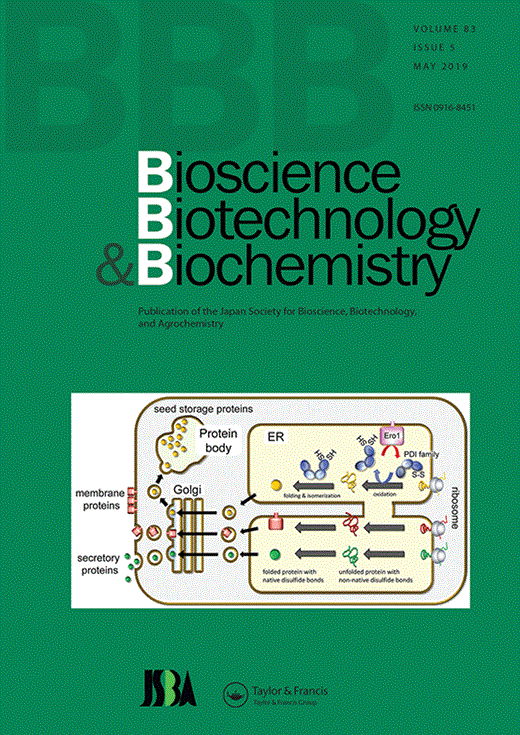
Randomised Controlled Trial
Adzuki bean extract administered once a day can result in increased HDL-C concentration.
Kitano-Okada T, Nagata R, Han KH, Mikami N, Satoh K, Nishihira J, Sasaki K, Ohba K, Fukusima M
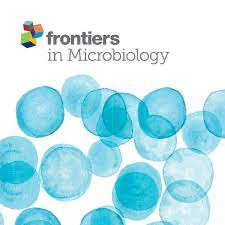
Experimental Study
Pomegranate extracts and a probiotic strain have shown a combined effect in reducing fat content and the development of fat cells, potentially useful in preventing and treating obesity.
Sorrenti V, Randazzo CL, Caggia C, Ballistreri G, Romeo FV, Fabroni S, Timpanaro N, Raffaele M, Vanella L
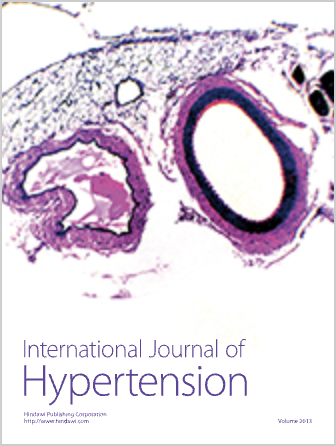
Systematic Review
Acupuncture as an adjunctive therapy has antihypertensive effect.
Juan Li ,1 Mingsheng Sun ,2 Jing Ye,2 Yuxi Li ,2 Rongjiang Jin ,1 Hui Zheng ,2 and Fanrong Liang 2

There is low quality evidence that bitter melon adjunct preparations improved glycemic control in type 2 diabetes mellitus patients.
Peter EL, Kasali FM, Deyno S, Mtewa A, Nagendrappa PB, Tolo CU, Ogwang PE, Sesaazi D

Systematic Review
Consumption of virgin avocado oil, rich in monounsaturated fatty acids and bioactive components, may help manage chronic diseases like hypertension, diabetes, and lower cardiometabolic risk.
Tan CX
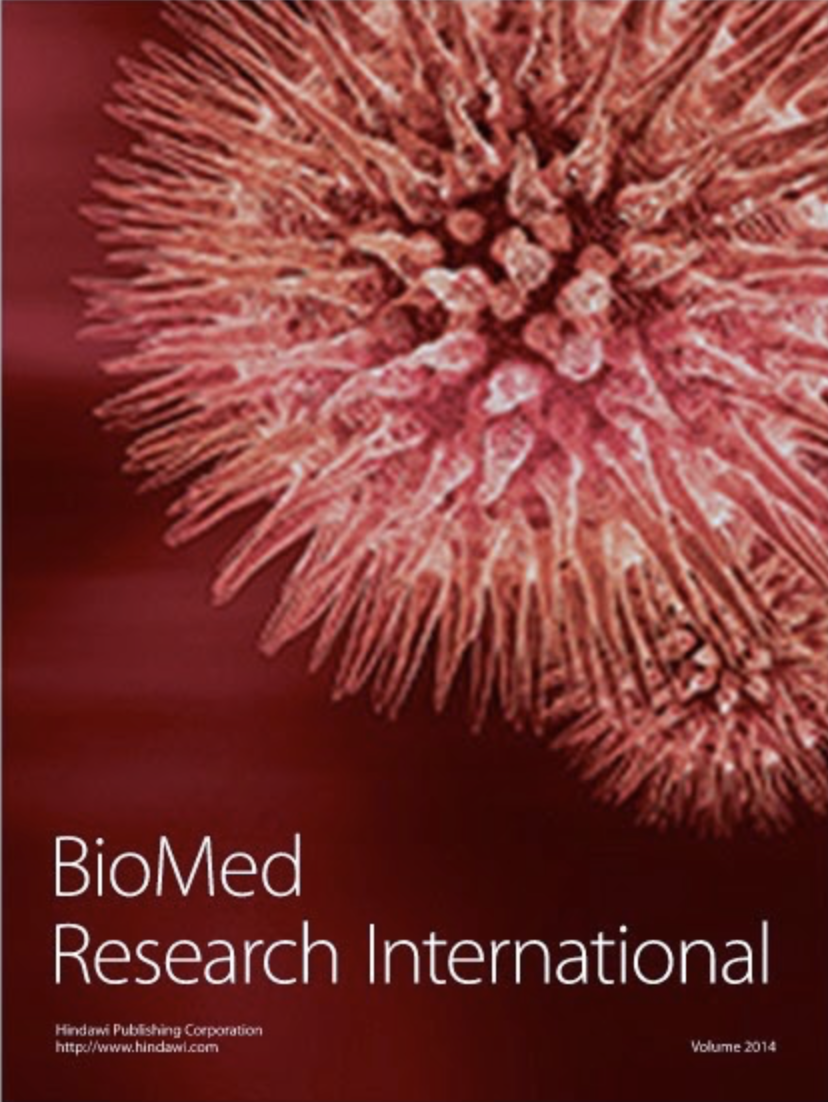
Systematic Review
Results from existing studies suggest that goji berry polysaccharide is a promising therapeutic agent, particularly in the management of liver disease, hyperlipidemia, and diabetes.
Kwok SS, Bu Y, Lo AC, Chan TC, So KF, Lai JS, Shih KC.

Randomised Controlled Trial
Synbiotic pomegranate juice (containing inulin and lactobacillus) can improve insulin resistance, reduce testosterone level, and aid weight loss in women suffering from Polycystic Ovarian Syndrome.
Esmaeilinezhad Z, Babajafari S, Sohrabi Z, Eskandari MH, Amooee S, Barati-Boldaji R

Animal Study
Ripened Pu-erh tea extract demonstrates a stronger anti-diabetic impact than raw Pu-erh tea extract, potentially due to the fermentation process and its probiotic benefits to certain gut bacteria.
Qianzhi Ding, Wei Zheng, Bowei Zhang, Xiaojuan Chen, Jie Zhang, Xu Pang, Yong Zhang, Dexian Jia, Surui Pei Yuesheng Dong Baiping Ma

Randomised Controlled Trial
Daily consumption of tart cherry juice for 12 weeks showed anti-oxidative and anti-inflammatory properties which may reduce blood pressure and lower LDL cholesterol in older adults.
Chai S, Davis K, Zhang Z, Zha L, Kirschner K
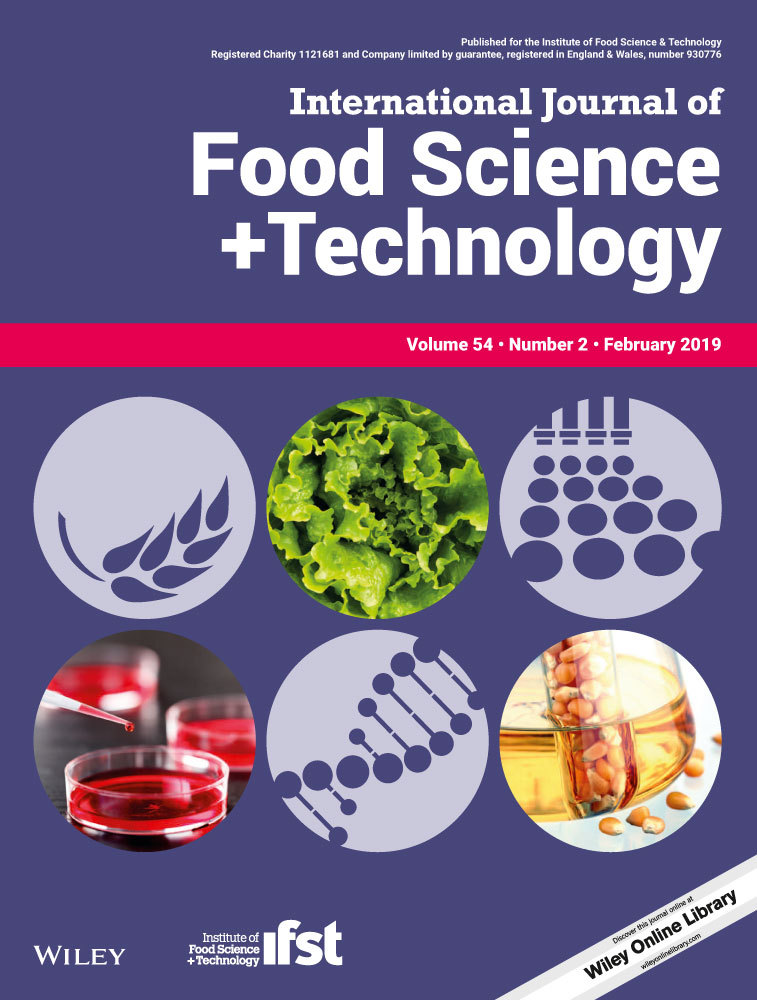
Animal Study
Pu-erh tea has a significant anti-hyperglycaemic effect, with its efficacy increasing over time and with higher dosages.
Lin, H.-C., Lee, C.-T., Yen, Y.-Y., Chu, C.-L., Hsieh, Y.-P., Yang, C.-S. and Lan, S.-J.

Randomised Controlled Trial
Daily consumption of tart cherry juice may enhance cognitive abilities in older adults, likely due to reduction of hypertension, inflammation, and oxidative stress.
Chai SC, Jerusik J, Davis K, Wright RS, Zhang Z

Experimental Study
Lemongrass extract has potential as a supplement to chemotherapy, reducing colon cancer growth, enhancing treatment effectiveness, and mitigating side effects like weight loss.
Ruvinov I, Nguyen C, Scaria B, Vegh C, Zaitoon O, Baskaran K, Mehaidli A, Nunes M, Pandey S
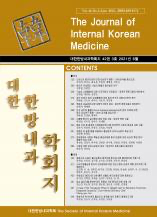
Systematic Review
Acupuncture relieved hepatic steatosis and reduced total cholesterol and triglyceride in non-alcoholic fatty liver disease patients.
Joon Hyun, Joo-bok Lee, So-yeon Kim, Chang-woo Han
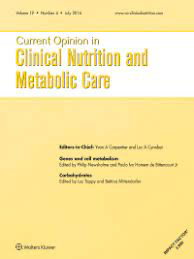
Systematic Review
Most bioactive walnut micronutrients synergize to affect multiple metabolic pathways leading to protection from chronic noncommunicable diseases.
Ros, Emilioa,b; Izquierdo-Pulido, Maríab,c; Sala-Vila, Aleix
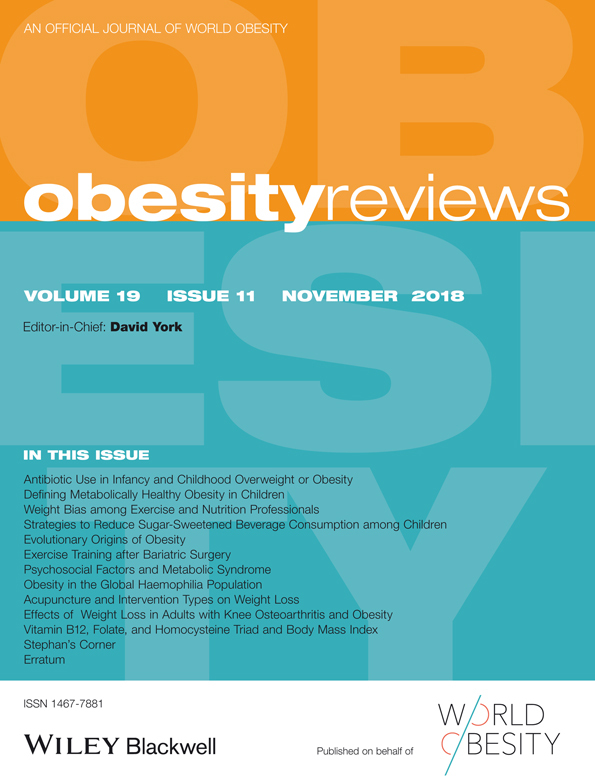
Systematic Review
Unlike herbal medicine and lifestyle modification, acupuncture treatment may be more effective in patients with overweight than in patients with obesity.
Kim SY, Shin IS, Park YJ.

Clinical Study
Young adults using low-fat oily dressings and certain cooking oils are linked to higher metabolic risks without direct relation to their consumptions of low fat dairy, meat, or cooking fats.
Sun Y, Magnussen CG, Dwyer T, Oddy WH, Venn AJ, Smith KJ

Randomised Controlled Trial
Consuming two SunGold kiwifruits daily over 12 weeks improved vitamin C status, reduced blood pressure, waist measurements and altered faecal microbiota composition in prediabetic individuals.
Wilson R, Willis J, Gearry R, Hughes A, Lawley B, Skidmore P, Frampton C, Fleming E, Anderson A, Jones L, Tannock G, Carr A

Systematic Review
Subgroup analysis suggests consuming at least 30 grams of dark chocolate per day for a trial period between four to eight weeks may lead to reductions in weight and body mass index.
Kord-Varkaneh H, Ghaedi E, Nazary-Vanani A, Mohammadi H, Shab-Bidar S
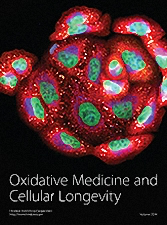
Review Article
Honey, a natural food supplement, emerges as a potent therapeutic antioxidant with diverse medicinal effects, including wound healing, antibacterial, anti-inflammatory, antifungal, antiviral, and antidiabetic properties, suggesting its potential as a novel antioxidant in managing oxidative stress-related diseases.
Ahmed S, Sulaiman SA, Baig AA, Ibrahim M, Liaqat S, Fatima S, Jabeen S, Shamim N, Othman NH
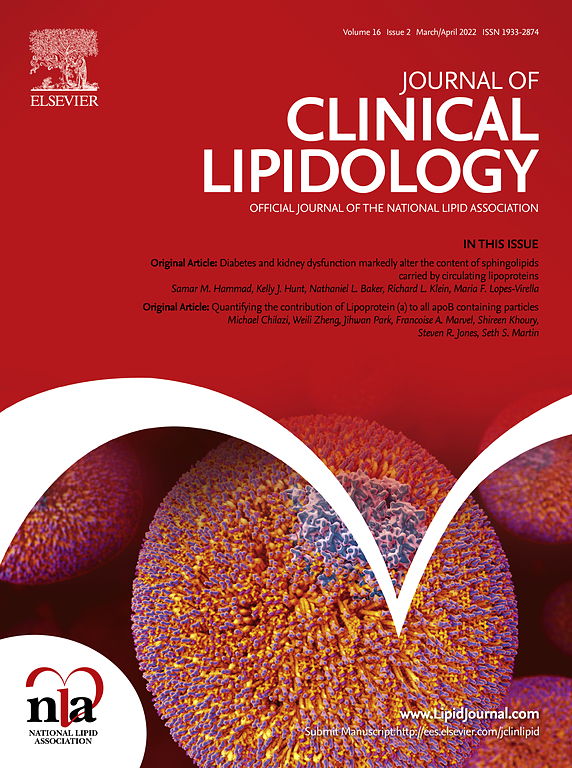
Systematic Review
Cinnamon supplementation significantly reduces blood triglycerides and total cholesterol levels without affecting low-density and high-density lipoprotein cholesterol.
Maierean SM, Serban MC, Sahebkar A, Ursoniu S, Serban A, Penson P, Banach M

Network Pharmacology
Adzuki beans, rich in flavonoids and saponins, can potentially prevent obesity by inhibiting enzymes related to fat accumulation and enhancing lipid breakdown.
Liu R, Zheng Y, Cai Z, Xu B

Practice Guideline
Long-chain omega-3 polyunsaturated fatty acids have various health benefits for postmenopausal women including reducing triglycerides and improving depression and psychotic symptoms.
Sánchez-Borrego R, von Schacky C, Osorio MJA, Llaneza P, Pinto X, Losa F, Navarro MC, Lubián D, Mendoza N
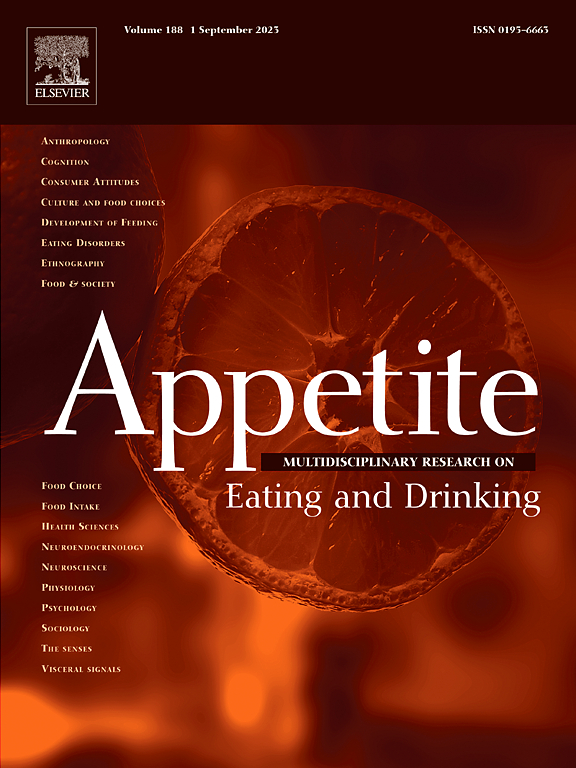
Randomised Controlled Trial
Dark chocolate reduces subsequent food intake in postmenopausal women more effectively than milk and white chocolate.
Marsh CE, Green DJ, Naylor LH, Guelfi KJ

Systematic Review
Cocoa consumption has strong beneficial impacts on cardiovascular health, reducing blood pressure, improving vascular function, and modulating lipid and glucose metabolism.
Ludovici V, Barthelmes J, Nägele MP, Enseleit F, Ferri C, Flammer AJ, Ruschitzka F, Sudano I

Systematic Review
Moderate chocolate consumption (up to 6 servings per week) is linked to a decreased risk of coronary heart disease, stroke, and diabetes, according to a meta-analysis of prospective studies.
Yuan S, Li X, Jin Y, Lu J

Systematic Review
Of the 7 clinical trials included, five evaluating individuals with hypertension observed a significant reduction in systolic and/or diastolic blood pressure. The two articles that evaluated individuals with dyslipidemia showed improvement in lipid profile.
Carolina Alves Cardoso, Gláucia Maria Moraes de Oliveira, Luciana de Almeida Vittori Gouveia, Annie Seixas Bello Moreira & Glorimar Rosa
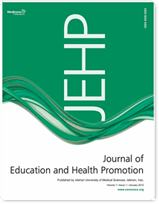
Randomised Controlled Trial
Green tea consumption leads to weight loss and decreased levels of fasting insulin and free testosterone in overweight women with polycystic ovarian syndrome.
Tehrani HG, Allahdadian M, Zarre F, Ranjbar H, Allahdadian F

Systematic Review
Avocado, with its lipid-lowering, antihypertensive, antidiabetic, anti-obesity, and cardioprotective effects, can potentially manage metabolic syndrome more efficaciously than synthetic treatment options.
Tabeshpour J, Razavi BM, Hosseinzadeh H
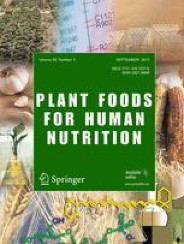
Randomised Controlled Trial
Pomegranate juice intake can reduce systolic and diastolic blood pressure and inflammation markers, but may increase triglyceride and very low-density lipoprotein cholesterol levels.
Moazzen H, Alizadeh M
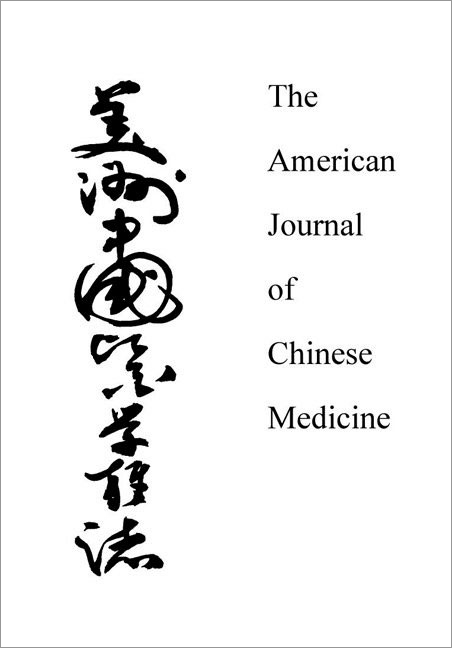
Systematic Review
Our results indicate that acupuncture is an effective treatment for obesity both alone and together with lifestyle modification.
Fang S, Wang M, Zheng Y, Zhou S, Ji G.

Experimental Study
When combined, Silibinin and Pu-erh tea extract prove more effective in preventing non-alcoholic fatty liver disease than when used individually.
Wen-Yi Hu, Xiao-Hui Ma, Wang-Yi Zhou, Xin-Xin Li, Ting-Ting Sun, He Sun

Review Article
Coffee consumption, up to three cups a day, can reduce the risk of Type-2 diabetes and metabolic syndrome in adults.
Baspinar B, Eskici G, Ozcelik AO

Review Article
Honeybee products like honey, propolis, and royal jelly have demonstrated potential benefits in treating metabolic diseases, cancers, and other illness types.
Pasupuleti VR, Sammugam L, Ramesh N, Gan SH
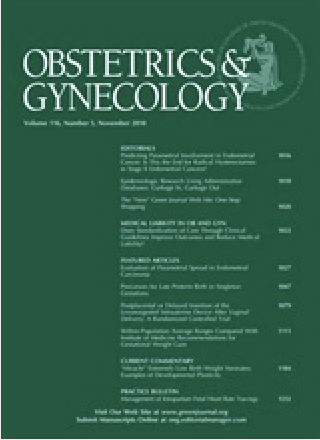
Case Report
Raspberry leaf consumption may decrease insulin requirements in pregnant women with gestational diabetes mellitus.
Cheang KI, Nguyen TT, Karjane NW, Salley KES
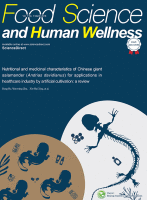
Experimental Study
Pu-erh tea water extracts could potentially enhance liver health and reduce oxidative stress in rats on a high-fat diet.
Jingjing Su, Xueqing Wang, Wenjun Song, Xiaoli Bai, Changwen Li
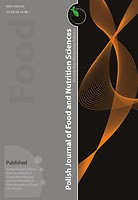
Review Article
Goji berries, classified as superfruits, possess potential beneficial implications in the dietary prevention of diseases like diabetes, cardiovascular diseases, and cancer.
Kulczyński B, Gramza-Michałowska A

Clinical Study
Drinking 1litre of mineral water daily with meals can reduce risk factors for heart and metabolic diseases, particularly when replacing sugary drinks.
Toxqui L, Vaquero M

Randomised Controlled Trial
Montmorency tart cherry juice intake can significantly lower systolic blood pressure in men with early hypertension, with improvements linked to phenolic acids.
Keane KM, George TW, Constantinou CL, Brown MA, Clifford T, Howatson G
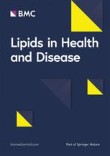
Randomised Controlled Trial
A sardine-enriched diet may have beneficial effects on cardiovascular risk and alters gut microbiota composition in patients with type 2 diabetes.
Balfegó M, Canivell S, Hanzu FA, Sala-Vila A, Martínez-Medina M, Murillo S, Mur T, Ruano EG, Linares F, Porras N, Valladares S, Fontalba M, Roura E, Novials A, Hernández C, Aranda G, Sisó-Almirall A, Rojo-Martínez G, Simó R, Gomis R
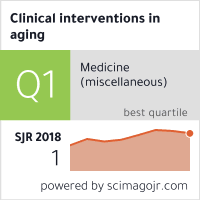
Randomised Controlled Trial
Daily consumption of Puer tea extract results in significant weight loss, reduced body fat, and improved lipid profile in a non-Asian overweight population.
Jensen GS, Beaman JL, He Y, Guo Z, Sun H.
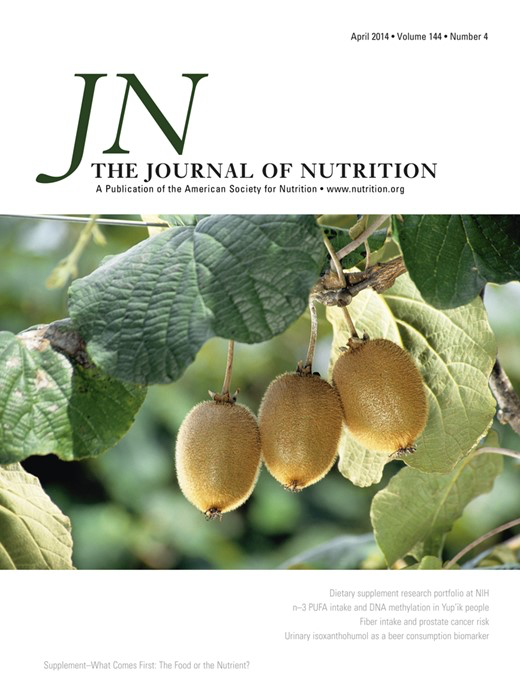
Randomised Controlled Trial
Dietary omega-3 intake shows promise in lowering systolic blood pressure.
Minihane AM, Armah CK, Miles EA, Madden JM, Clark AB, Caslake MJ, Packard CJ, Kofler BM, Lietz G, Curtis PJ, Mathers JC, Williams CM, Calder PC

Experimental Study
Adzuki beans present anti-atherogenic, anti-thrombogenic and hypocholesterolemic effects, and the ratios PUFA: SFA and n-6:n-3 were considered appropriate for biological system maintenance of a healthy organism.
Hou D, Yousaf L, Xue Y, et al.
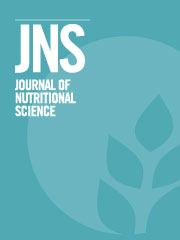
Systematic Review
Almond consumption effectively reduces blood lipid levels, thus reducing risk of heart disease.
Musa-Veloso K, Paulionis L, Poon T, Lee HY

Systematic Review
There is evidence of efficacy of acupuncture as an adjunctive therapy to western medicine for treating hypertension.
Zhao XF, Hu HT, Li JS, Shang HC, Zheng HZ, Niu JF, et al

Clinical Study
Daily consumption of blueberries may decrease blood pressure and arterial stiffness in postmenopausal women due to increased nitric oxide production.
Johnson SA, Figueroa A, Navaei N, Wong A, Kalfon R, Ormsbee LT, Feresin RG, Elam ML, Hooshmand S, Payton ME, Arjmandi BH

Meta-Analysis
Acupuncture significantly lowers blood pressure in patients taking antihypertensive medications.
Li DZ, Zhou Y, Yang YN, Ma YT, Li XM, Yu J, et al.
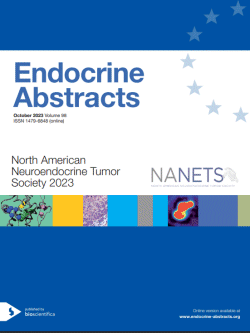
Randomised Controlled Trial
Pomegranate extract intake, rich in biophenols, lessens salivary cortisol levels, hence potentially improving health-related quality of life, particularly in stress-suffering individuals.
Stockton A, Al-Dujaili E
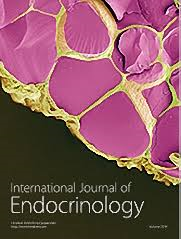
Animal Study
Regular intake of mineral-rich water, high in sodium bicarbonate, potassium, calcium, and magnesium, potentially reduces risk of Metabolic Syndrome and atherosclerotic cardiovascular disease.
Pereira CD, Severo M, Araújo JR, Guimarães JT, Pestana D, Santos A, Ferreira R, Ascensão A, Magalhães J, Azevedo I, Monteiro R, Martins MJ

Experimental Study
Pumpkin seeds and their extracts, including Trigonelline, Nicotinic acid, and D-chiro-inositol, offer potential for controlling blood sugar levels in diabetes patients.
Adams GG, Imran S, Wang S, Mohammad A, Kok MS, Gray DA, Channell GA, Harding SE

Clinical Study
Pomegranate juice intake for two weeks significantly reduces blood pressure and may improve heart health by lowering vascular endothelial adhesion molecule-1 levels.
Asgary S, Sahebkar A, Afshani MR, Keshvari M, Haghjooyjavanmard S, Rafieian‐Kopaei M

Review Article
Recent phytochemical studies of jujube fruits have shed some light on their biological effects, such as the anticancer, anti-inflammatory, antiobesity, immunostimulating, antioxidant, hepatoprotective, and gastrointestinal protective activities and inhibition of foam cell formation in macrophages.
Gao QH, Wu CS, Wang M.
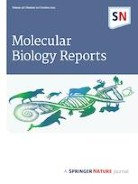
Systematic Review
Traditional Chinese medicines had a better effect on the normalization of alanine aminotransferase and disappearance of radiological steatosis in the treatment of non-alcoholic fatty liver disease.
Shi KQ, Fan YC, Liu WY, Li LF, Chen YP, Zheng MH

Meta-Analysis
Consumption of dark chocolate and cocoa products has been shown to significantly reduce serum levels of low-density lipoprotein (LDL) and total cholesterol (TC), indicating potential cardiovascular benefits.
Tokede OA, Gaziano JM, Djoussé L

Systematic Review
Long-term consumption of tea catechins could be beneficial against high-fat diet-induced obesity and type II diabetes and could reduce the risk of coronary disease.
Chacko, S.M., Thambi, P.T., Kuttan, R. et al.
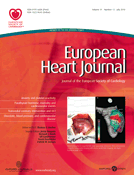
Cohort Study
Chocolate consumption appears to lower cardiovascular disease risk, in part through reducing blood pressure.
Buijsse B, Weikert C, Drogan D, Bergmann M, Boeing H

Randomised Controlled Trial
Drinking mineral water, especially those high in magnesium, helps lower blood pressure among individuals with borderline hypertension and low calcium or magnesium excretion.
Rylander R, Arnaud MJ
Executive Summary
Write an executive summary in the form of a blog article on the topic of "Research into Chinese medicine treatment for Metabolic Syndrome" summarising the research below and using language that can be easily understood by patients and avoiding medical jargon using a professional and caring tone of voice.
Write an executive summary in the form of a blog article on the topic of "Researched Chinese medicine treatments for Metabolic Syndrome" summarising the research below in an objective and easy to understand way, and using language that can be easily understood by patients. Group the article into Chinese medicine treatments first, followed by nutrition and other treatments. Avoid using medical jargon and use a professional and caring tone of voice.
Write me a concise but easy to understand executive summary on the topic of "Chinese medicine treatments for Metabolic Syndrome" based on the following research that I will give you. Your summary should be 2 paragraphs long in Australian English spelling and include references to the studies.
A Review Article published in 2024 in the journal Current Nutrition Reports found that Ziziphus jujuba and its main components, lupeol and betulinic acid, show promise in treating complications of metabolic syndrome, including diabetes, obesity, and hypertension. The research assessed the properties of Ziziphus jujuba and its main bioactive agents, lupeol and betulinic acid, in relation to metabolic syndrome. Investigations focussed on their potential roles in glucose uptake enhancement, hepatic glucose synthesis reduction, insulin sensitivity improvement, and lipid profile modulation. Studies involved identifying the influence of these substances on key signaling pathways and insulin signaling proteins, as well as evaluating their anti-adipogenic effects and capacity to improve endothelial function. Ziziphus jujuba and its constituents exhibited potential therapeutic benefits for metabolic syndrome by facilitating glucose uptake, reducing glucose synthesis, and improving insulin sensitivity. They also showed potential in moderating lipid synthesis and fat accumulation, demonstrating anti-fatty effects and a capacity to influence adipogenic enzymes and transcription factors. Moreover, these substances demonstrated enhanced endothelial function, reflecting positively on vascular health. These accumulative findings suggest promising potential for Z. jujuba, lupeol, and betulinic acid as natural treatments for metabolic syndrome complications.
A Meta-Analysis published in 2024 in the journal Clinical Nutrition Open Science found that Daily intake of Ziziphus jujuba can control weight and improve lipid profile indicators. In the methodology, randomized clinical trials were sourced from online resources like PubMed, Scopus, and ISI Web of Science till October 2022. From these resources, four suitable articles were picked for this research. The results section suggests that a notable decrease in body mass index (BMI), triglycerides (TG), total cholesterol (TC), and low-density lipoprotein (LDL) is observed in individuals consuming Ziziphus jujuba. However, there were no significant changes observed in fasting blood glucose (FBG) and high-density lipoprotein (HDL). These findings underscore the potential beneficial impact of Ziziphus jujuba consumption on certain metabolic indicators.
A Randomised Controlled Trial published in 2024 in the journal Complementary Therapies in Medicine found that Consuming jujube notably reduces waist circumference, triglycerides, and stress, while increasing high-density lipoprotein cholesterol in subjects with metabolic syndrome. In this parallel-group, randomized controlled trial, sixty participants diagnosed with metabolic syndrome were randomly assigned to either receive 30g of dried jujube powder or a placebo for an eight-week period. They were instructed to consume half of their given powder at two different points in the day. Four measurements were taken as primary outcomes: lipid profile, fasting blood glucose, waist circumference, and blood pressure. Additionally, mental health measures, such as depression, anxiety, and stress, were evaluated as secondary outcomes. The data analysis showed that consuming jujube didn't lead to significant reductions in fasting blood glucose, total cholesterol, low-density lipoprotein cholesterol, blood pressure, or depression and anxiety scores. However, compared to the placebo group, the group consuming jujube showed a key reduction in waist circumference and triglycerides, and an increase in high-density lipoprotein cholesterol. Moreover, an improvement in stress scores was observed in the jujube group. The study, however, had methodological shortcomings regarding effective blinding and testing for herb purity and potency.
A Systematic Review published in 2024 in the journal Food Science & Nutrition found that Eating plums, especially dried plums, significantly lowers LDL levels and total cholesterol levels, particularly in adults with existing health issues. The researchers conducted a systematic review and meta-analysis using keyword searches on databases such as PubMed, Scopus, and ISI Web of Science up to a specified date. They were on a mission to find eligible trials that would help ascertain the benefits of plum consumption on adult lipid profiles. In their observation of the collected data, they concluded that plum, specifically dried plum consumption, had a noteworthy impact on LDL levels, mainly when the subjects were in an unhealthy state. This consumption led to a significant decrease in total cholesterol levels in the unhealthy subjects. Nevertheless, the study couldn't establish major changes in triglycerides and HDL concentrations as a result of the plum consumption.
A Review Article published in 2023 in the journal Nutrire found that Almond consumption has beneficial impacts on cardiovascular diseases, diabetes, obesity, and it can improve cognitive performance and protect against skin aging. The methodology employed in this study included analyzing a range of clinical studies centered on the health benefits linked to the consumption of sweet almond nuts. Various health outcomes correlated with almond consumption were investigated such as body weight, food intake, blood pressure, blood lipid composition, glucose and insulin levels, oxidative status, liver enzymes, and some inflammation biomarkers. The discussion of the results reveals that almond consumption has been found to create favorable alteration in aspects like body weight, food intake, blood pressure, blood lipid composition, glucose, and insulin levels, as well as oxidative status, liver enzymes, and inflammation biomarkers. These findings highlight the beneficial impact of almonds on multiple health issues including cardiovascular diseases, diabetes, and obesity. Additionally, the consumption of almonds has been associated with improved cognitive performance and protection against skin photodamage and aging.
A Systematic Review published in 2023 in the journal Current Medicinal Chemistry found that Consumption of apple cider vinegar significantly improves certain risk factors for cardiometabolic syndrome, notably fasting blood glucose, glycosylated hemoglobin, and total cholesterol. This study applied a systematic review and meta-analysis of clinical trials found in PubMed, Scopus, and ISI Web of Science databases. In this process, trials evaluating the effects of apple cider vinegar consumption on cardiometabolic syndrome risk factors were sought. In total, 25 clinical trials were included in the study, these trials encompassed 1320 adult participants. The consumed apple cider vinegar led to a general improvement in fasting blood glucose, glycosylated hemoglobin, and total cholesterol. However, for body mass index, insulin resistance, serum insulin, triglycerides, low-density lipoprotein cholesterol, and high-density lipoprotein cholesterol, no significant results were observed. Conducting a subgroup analysis, the study identified a significant decrease in fasting blood glucose, glycosylated hemoglobin, total cholesterol, and triglycerides in diabetic patients. Further, it was observed that the apple cider vinegar significantly reduced fasting blood glucose levels regardless of the duration of administration and also decreased triglycerides concentration when consumed for 12 weeks or more.
A Review Article published in 2023 in the journal PharmaNutrition found that Soy protein, bioactive peptides, and isoflavones are generally safe for consumption and may help reduce the risk of several significant health conditions. Methodology: This review followed the Preferred Reporting Items for Systematic reviews and Meta-Analyses guidelines. It began with a sophisticated multi-database search, featuring resources like Google Scholar, Scopus, and others. This search targeted articles published from 2017 to March 2023 and used specific keywords for accuracy. Forty-three articles were handpicked from this process after excluding reviews, conference reports, duplicates, inaccessible texts, and any non-English publications. Discussion of Results: A thorough examination of the chosen articles resulted in the conclusion that soy proteins, soy bioactive peptides, and soy isoflavones are typically safe for human consumption. Furthermore, it was found that the consumption of these compounds may have beneficial effects, potentially lowering risk factors for ailments such as osteoporosis, various cancers, hypertension, atherosclerosis, and more.
A Systematic Review published in 2023 in the journal Journal of Functional Foods found that Pomegranate consumption positively affects triglycerides, low-density lipoprotein cholesterol, and high-density lipoprotein cholesterol levels. To investigate the impact of pomegranate on lipid profiles, a comprehensive database search was completed up until June 2023, aiming to identify related trials. Statistically, the researchers employed the estimated 95% confidence and the weighted mean difference to measure the variables, including triglycerides, total cholesterol, high-density lipoprotein cholesterol, and low-density lipoprotein cholesterol. They employed a random-effects model for their analysis. The meta-analysis revealed that pomegranate intake significantly reduces triglyceride levels. Still, it doesn't notably alter the total cholesterol concentrations. Additionally, consuming pomegranate seemed to have a diminishing impact on low-density lipoprotein cholesterol levels and an enhancing effect on high-density lipoprotein cholesterol levels.
A Review Article published in 2023 in the journal Journal of Microbiology and Biotechnology found that Soybean intake can potentially reduce risks of several cancers, type 2 diabetes, osteoporosis, and hot flashes, and it may negatively impact some drug treatments and cause allergies. This research primarily involves review and analysis of current clinical studies focusing on the benefits and risks of soybean ingredients. The method appears to be a systematic review of various epidemiological studies which were investigating the correlation between soybean consumption and the risk of developing multiple types of cancers including breast, prostate, colorectal, ovarian, and lung cancers. Besides cancer, other common diseases such as type 2 diabetes, osteoporosis, and menopausal symptoms like hot flashes were also investigated. Moreover, any potential adverse effects of soybean, including its possible detrimental impact on certain drug treatments and its allergenicity, were also factors of study in these clinical evidences. In the discussion of results, the researchers found a significant inverse association between soybean intake and cancer risks, wherein an increase in the consumption of soybean foods was associated with a reduced likelihood of cancer. Besides showing potential anticancer properties, soybean consumption was found inversely correlated with risks of type 2 diabetes. Soy isoflavones, compounds present in soybeans, also showed potential benefits in the management of osteoporosis and hot flashes. On the other hand, the adverse effects of soybean, including interference with certain drug therapies and causing allergies, were also duly noted. Therefore, the research concludes that while soybean promises several significant health benefits, caution should be exercised for individuals under specific drug treatments or with allergies to soy.
A Randomised Controlled Trial published in 2023 in the journal Nutrition Journal found that Pomegranate peel extract, along with a calorie deficit diet, could improve risk factors of metabolic syndrome and reduce fatty liver in patients with non-alcoholic fatty liver disease. In the first phase, the research involved the hydro-alcoholic extraction of the peel of 750 kilograms of pomegranate using the soaking method. The second phase saw patients with non-alcoholic fatty liver disease divided into two groups - a placebo group and a pomegranate peel capsule group. Both groups followed a diet with a 500 kcal deficit for eight weeks. Aspects like intolerance to the treatment, participants' dietary intake, their lipid and glycemic profiles, blood pressure, body composition, insulin resistance indexes and changes in fatty liver disease evaluated through elastography were monitored. Further, the study reported substantial decreases in multiple indicators such as body weight, waist circumference, body mass index, body fat index, trunk fat, blood pressure, total cholesterol, triglyceride levels, LDL cholesterol, fat free mass, and fasting blood sugar in the group that took pomegranate peel capsules compared to the placebo group. Meanwhile, HDL cholesterol and liver steatosis and stiffness saw improvement. No significant differences, however, were found in the insulin and homeostatic model assessment for insulin resistance between the two groups.
A Systematic Review published in 2023 in the journal Nutrients found that Natural calcium-rich mineral waters offer a bioavailable calcium source, beneficial for bone health, cardiovascular function, weight management, and overall well-being. This systematic review analyzed peer-reviewed articles, clinical trials, and experimental studies from the past decade. It focused on the health benefits of calcium-rich mineral waters, especially for individuals with lactose intolerance or on plant-based diets. The review process assessed the contribution of these waters to daily calcium intake and their bioavailability compared to other calcium sources. The review found that natural mineral waters high in calcium can significantly enhance calcium intake, with improved absorption rates. These waters show promise in promoting bone health and cardiovascular function, including potential reductions in blood pressure and cardiovascular disease risk. Some evidence suggests benefits in weight management. However, the review highlighted the need for further research on interactions with other dietary components, effects on specific health conditions, and long-term consumption impacts. Despite these gaps, calcium-rich mineral waters are recognized as a valuable dietary calcium source for a diverse population.
A Review Article published in 2023 in the journal Nutrients found that Honey intake has observed beneficial effects on various health aspects like cardiovascular, metabolic risk factors, and wound healing, primarily replacing other sweeteners. In this comprehensive review study, the researchers went beyond just looking at one or two aspects of health; instead, they embarked on an ambitious task of reviewing forty-eight clinical trials that were published between 1985 and 2022, involving a total of 3655 subjects. The researchers aimed to critically analyze the effect of honey on multiple health indices, including, but not limited to, cardiovascular and metabolic risk factors, glucose tolerance, mucositis inflicted by chemo-radiotherapy, cough in children, and wound healing. The evaluation and analysis of the data involved a thorough examination of the results of each of the clinical trials, consideration of several potential variables, and detailed cross-study comparisons. This broad and deep investigation allowed the researchers to draw correlations and pinpoint the beneficial influences of honey, considered a nutritious and natural food. The results from these clinical trials saw more beneficial effects on health from honey intake when compared to neutral or negative outcomes. It was most notably effective, particularly when used as a substitute for other sweeteners. The review also pointed out the potential use of honey as a safe adjuvant to be used in combination with drugs for specific illnesses. Confidently stating that honey has clear benefits in the clinical trials analyzed, the researchers fostered a promising narrative for the further exploration and acceptance of honey as a health booster.
A Animal Study published in 2023 in the journal European Journal of Medicinal Chemistry found that Jin Si Huang Ju tea, a traditional Chinese beverage, contains compounds that potentially reduce lipids, mitigate insulin resistance and reduce liver inflammation in vitro. The researchers identified 14 compounds in the Jinsi Huangju tea using different spectroscopic techniques, 11 of which had not been previously identified in this plant. Two of these compounds, apigenin-7-O-6″-malonylglucoside and luteolin-7-O-6″-malonylglucoside, were synthesized for the first time with a yield of 1.2% over 5 steps. In the findings, the natural compound apigenin-7-O-6″-malonylglucoside was found to inhibit the function of pancreatic lipase, reduce cellular lipid contents, and attenuate insulin resistance when tested in vitro. It was also observed to restore lipid and inflammatory profiles in plasma and the liver, as well as reduce hepatic steatosis in non-alcoholic fatty liver disease (NAFLD) mouse models. Thus, Jinsi Huangju and its active components are strong candidates for the development of drugs or functional foods that could provide a therapeutic strategy for hyperlipidaemia and NAFLD.
A Systematic Review published in 2023 in the journal Current Problems in Cardiology found that Oat consumption can significantly improve lipid profiles, particularly reducing total cholesterol and LDL cholesterol, with potential positive effects on triglycerides and HDL cholesterol under certain conditions. In the methodology of this review study, information was gathered from various databases, including PubMed, Web of Science, and Google Scholar. The gathered data consisted of a total of 17 studies that explored the direct effects of oat consumption on lipid profiles. The focus of the studies included were the impacts of oat on levels of total cholesterol, VLDL, LDL-C, TG, and HDL-C. The review was meticulous, with a detailed examination of each study, particularly those showing positive effects of oat/beta-glucan consumption on triglycerides. The review's results revealed that oat intake significantly reduces the levels of total cholesterol, VLDL, and LDL-C. The effect of oat ingestion on triglyceride levels was varied; of the 17 studies, 6 reported a decrease in triglycerides. Interestingly, one study showed an improvement in HDL-C levels following oat consumption. It was also observed that oat intake might effectively reduce triglycerides in healthy individuals and overweight people or those with diabetes or metabolic syndrome, especially when larger amounts of oat were consumed over a longer duration or in conjunction with a calorie-reducing diet. The use of oat together with certain dietary programs was suggested to potentially enhance its positive effects on lipid profiles.
A Randomised Controlled Trial published in 2023 in the journal The American Journal of Clinical Nutrition found that Consumption of blueberry powder daily improves vascular function, cognitive abilities, and reduces blood pressure in healthy older individuals. This double-blind, parallel randomized controlled trial engaged 61 healthy older individuals aged between 65 to 80 years old. Participants were given either 26g of freeze-dried wild blueberry (WBB) powder, comprising 302 mg anthocyanins, or a similar placebo with zero mg anthocyanins. Measurements were made for endothelial function, cognitive function, arterial stiffness, blood pressure, cerebral blood flow, gut microbiome, and blood parameters, both at the start of the trial and again following 12 weeks of daily consumption. In addition, plasma and urinary polyphenol metabolites were analyzed through the use of microelution solid-phase extraction combined with liquid chromatography-mass spectrometry. In the WBB group, there was a notable increase in endothelial function and a decrease in 24-hour ambulatory systolic blood pressure, when compared to the placebo group. Enhanced immediate recall on the auditory verbal learning task was also observed, along with better accuracy on a task-switch task following administering of WBB. Notably, the total 24-hour urinary excretion of polyphenols also significantly increased in the WBB group comparative to the control group. In contrast, there were no discernible changes in cerebral blood flow or gut microbiota composition. These findings imply that WBB polyphenols could contribute to reducing future cardiovascular disease risk in older populations, and might enhance memory processes and executive functioning in older adults at risk of cognitive decline.
A Review Article published in 2023 in the journal Frontiers in Nutrition found that Sardines, being an affordable source of Omega-3 and other cardioprotective nutrients, can potentially reduce the need for Omega-3 supplementation and manage cardiometabolic diseases. The abstract primarily acknowledges the importance of Omega-3 polyunsaturated fatty acids with respect to managing diseases related to heart health and metabolism, for instance, type 2 diabetes, hypertension, hypertriglyceridaemia, and fatty liver disease. However, these fatty acids are not the sole beneficial component of sardines. Minerals including but not limited to calcium, potassium, and magnesium as well as substances like taurine and arginine found in sardines have a significant role in controlling mild inflammation and oxidative stress which are usually present in cardiovascular diseases and hemodynamic dysfunction. The results discussed in the abstract suggest a positive correlation between consumption of sardines and potential cardiometabolic benefits. By considering the dose-response relationship effects, a pragmatic approach towards consumption of nutrients was suggested. The intake of sardines was seen not only as a means of Omega-3 supplementation but also as a comprehensive approach to enhancing cardiovascular health. The abstract concludes with an emphasis on the many beneficial nutrients found in sardines besides Omega-3, underlining the need to shift the focus from synthetic supplementation to natural dietary improvement.
A Clinical Study published in 2023 in the journal Biomedical Reports found that Consuming a honey-based gel, such as 'Bear Strength honey gel,' led to a notable reduction in diastolic and mean arterial blood pressure, with gender-specific improvements in redox status among healthy adults. The study included 20 healthy participants (10 men, 10 women) who incorporated 70g of 'Bear Strength honey gel' into their daily diet for 14 days. Physiological parameters (weight, height, BMI, body fat, waist-to-hip ratio, resting heart rate, and blood pressure) and hematological data were evaluated before and after consumption. Redox biomarkers, including Glutathione (GSH), catalase (CAT), total antioxidant capacity (TAC), protein carbonyls (PCARBS), and thiobarbituric reactive substances (TBARS), were measured. Post-consumption, the honey-based gel showed a significant decrease in diastolic and mean arterial blood pressure, particularly in women. However, no significant changes were observed in other physiological or hematological variables. Notably, GSH levels increased in both genders, TAC increased universally, and TBARS levels decreased in the total group and women. PCARBS levels decreased exclusively in the women's group. These findings highlight the honey-based gel's potential positive impact on blood pressure and redox status, emphasizing gender-specific effects in healthy adults.
A Review Article published in 2023 in the journal Current Nutrition Reports found that Oats, in various edible forms, can regulate appetite hormones, aid weight management, strengthen the immune system, and contribute to gut health, making them effective for obesity management. The research methodology entailed a review of the role of hunger hormones in managing obesity and studying the influence of different edible forms of oats like whole, naked, sprouted, or supplemented oats on these hormones. The relationship between consumption of oats and various indicators of obesity such as body mass index, waist circumference, body weight, appetite, and blood pressure, amongst others was investigated. Furthermore, the nutritional content of oats like protein, fiber, healthy fats, and bioactive ingredients was analyzed, with particular emphasis on Beta-glucan as it lowers cholesterol levels and enhances the body's defense system. The results of the studies showed that oats have several therapeutic potentials. An intake of oats helps manage body weight and control appetite. In addition, oats positively impact the immune system and lower cholesterol levels in the serum. They also foster gut health by promoting the increased production of short-chain fatty acids. Despite these findings, some studies showed no significant effects of oats on appetite.
A Cohort Study published in 2023 in the journal Journal of the American Heart Association found that Heavy coffee consumption increases the risk of cardiovascular disease mortality in individuals with severe hypertension, while green tea consumption does not. With the use of the Japan Collaborative Cohort Study, researchers assessed 18,609 participants, both male and female, aged between 40 to 79 years. These participants had varying blood pressure levels, categorized into optimal and normal BP, high-normal BP, and two stages of hypertension. They completed a questionnaire about their lifestyle, diet, and medical history, and underwent health examinations, which were followed up until 2009. The association of coffee and green tea consumption on cardiovascular disease mortality was then calculated using a Cox proportional hazard model. It was found over an 18.9 year follow-up period that heavy coffee consumption was linked to increased risk of cardiovascular disease mortality among those suffering from the second to third grade of hypertension. In stark contrast, people with optimal and normal, high-normal blood pressure and first grade hypertension did not show such associations between coffee consumption and cardiovascular disease mortality. Interestingly, the risk of cardiovascular disease mortality was not found to be increased across any blood pressure categories in relation to green tea consumption.
A Clinical Study published in 2023 in the journal Molecules found that Chrysanthemum extract can be utilised as a natural ingredient to lessen post-meal cholesterol levels and enhance antioxidant status, after eating a high-fat meal. The researchers analyzed the composition of two types of Imperial Chrysanthemum (IC) extracts, specifically IC-P and IC-E, using an Ultra High-Performance Liquid Chromatography-Mass Spectrometry (UHPLC-MS) method. Next, they assessed these extracts' in vitro antioxidant activities using three different radical scavenging assays: 1,1-diphenyl-2-picrylhydraxyl (DPPH), 2,2-azino-bis-3-ethylbenzothiazoline-6-sulfonic acid (ABTS) and Hydroxyl Radical(HR). A group of 37 adults followed a randomized program and were divided into two: one consuming a high-fat (HF) meal alone and the other having the same meal but supplemented with IC extract. Blood samples from participants were taken at a fasting state and several more times up to 8 hours after the meal. The study found 12 compounds, including amino acids, flavonoids, and carboxylic acids, making up over 1% of the IC extracts. Compared to IC-E, IC-P exhibited significantly higher flavonoid content and strong free radical scavenging activity. Chrysanthemum consumption showed significant differences in post-meal glucose levels, triglycerides, total antioxidant capacity (T-AOC), and malondialdehyde (MDA) levels, with the IC-P supplement group showing lower postprandial glucose and improved serum antioxidant status.
A Systematic Review published in 2022 in the journal Journal of the Academy of Nutrition and Dietetics found that Avocado consumption may lead to a reduction in total cholesterol and low-density lipoprotein cholesterol levels in people with high cholesterol without impacting body weight. The study reviewed the impact of diets containing avocado on cardiometabolic risk factors compared with diets containing no or low amounts of avocado. Five electronic databases were searched aiming to identify studies published between 1990 and 2021. The selected studies included randomized controlled trials of three weeks or more and prospective cohort studies. In total, ten studies, nine controlled trials, and one observational study, met the inclusion criteria. Risk of bias was evaluated, and overall quality of the evidence was inspected. Meta-analyses were performed when there were three or more studies of the same design reporting the same outcome. Upon reviewing the results, the study found a minor, noteworthy reduction in total cholesterol levels in the avocado group as opposed to the control groups. There was no significant difference found in low-density lipoprotein cholesterol, high-density lipoprotein cholesterol, or triglycerides. However, in populations with hypercholesterolemia, avocado consumption demonstrated significant reductions in both total cholesterol and low-density lipoprotein cholesterol levels. It is also worth noting that consumption of avocados did not negatively affect body weight or composition.
A Systematic Review published in 2022 in the journal Complementary Therapies in Medicine found that Tart cherry juice shows promise in aiding blood sugar control and supporting heart health, highlighting its potential as a natural dietary addition. Tart cherry juice was found to lower fasting blood sugar but didn't have a significant impact on blood pressure, insulin, cholesterol, body fat, or weight. It is rich in antioxidants, which may be why it's beneficial for the heart. Changes in gut bacteria might also play a role. More research with larger and varied groups of people is needed to confirm these findings and understand them better. In the meantime, healthcare professionals may consider suggesting tart cherry juice for heart health.
A Animal Study published in 2022 in the journal Food Research International found that Pu-erh tea and its ingredient theabrownin improve liver, jejunum, and adipose tissue functions in metabolic syndrome mice, modulating circadian rhythm, glycerophospholipid, and linoleic acid metabolism. In this study, varied technological applications such as metagenomics, transcriptomics, and metabolomics were utilized to explore the anti-metabolic syndrome mechanism of Pu-erh tea and theabrownin in mice with metabolic syndrome. These scientific technologies allowed the researchers to understand and explore improvements in the physiological functions of liver, jejunum, and adipose tissues in the metabolic syndrome mice as a result of Pu-erh tea and theabrownin interventions. The investigation also focused on changes to the hepatic transcriptome, revealing that both of these interventions had the capacity to regulate the circadian rhythm pathway. The results showcased that both interventions succeeded in the modulation of glycerophospholipid and linoleic acid metabolism, this was established through a comprehensive analysis of serum and brain metabolome. Further analysis of faecal metagenome demonstrated an increase in the relative abundance of certain bacterium and a decrease in others due to both interventions. However, in comparison to Pu-erh tea, theabrownin exhibited a more pronounced influence as regards upregulating hepatic antioxidants and downregulating hepatic inflammatory factors, although there was only a slight reduction in obesity-linked short-chain fatty acids in faeces of the metabolic syndrome mice. Overall, the experiment provided essential insights into the various ways these two elements function and provide treatment for metabolic syndrome.
A Randomised Controlled Trial published in 2022 in the journal Frontiers in Nutrition found that In women with polycystic ovary syndrome, cinnamon reduced insulin resistance and testosterone levels similar to metformin, and ginger decreased follicle-stimulating and luteinizing hormones. In the methodology of the study, 100 women diagnosed with polycystic ovary syndrome were divided into four groups. Each group received a different treatment: cinnamon, ginger, metformin, or placebo. The dosage for these treatments was 500 mg, three times a day, administered over a period of 8 weeks. The participants' sex hormones, weight revelations, along with glycemic and lipid markers were monitored before and after this period. Several participants were disqualified because of unspecified factors, resulting in a final sample size of 83. In terms of results, all groups saw a decrease in weight and body mass index. The metformin and cinnamon groups specifically had notably decreases in their insulin resistance, meaning that these treatments were effective in improving metabolic health. Additionally, the ginger group experienced a reduction in follicle-stimulating hormone and luteinizing hormone levels unlike the other groups. Testosterone levels were lowered in the metformin and cinnamon groups, but no significant changes in dehydroepiandrosterone were observed in any of the groups. These results indicate the potential use of cinnamon and ginger as alternative treatments in managing polycystic ovary syndrome.
A Network Pharmacology published in 2022 in the journal International Journal of Molecular Sciences found that Two varieties of chrysanthemum have similar therapeutic effects but operate through distinct mechanisms, revealing potential for precise applications in both traditional and modern medicine. The study combined network pharmacology, molecular pharmacology, and metabolomics to clarify differences between two herbs, CMF and CIF. An initial analysis was carried out via HPLC-Q-TOF-MS which revealed distinct flavonoid constituents between CMF and CIF. These findings led researchers to make predictions about the possible biological processes responsible for the therapeutic effects of these herbs on LFHSH, including their influence on inflammatory response and fatty acid production. Through a series of ELISA, molecular docking, Western blot, and metabolomics techniques, the research identified similar influences of CMF and CIF on blood pressure and resistance to tissue, organ and functional damage as well as dyslipidemia. Despite the similar outcomes, there was variation in their mechanism of action. Namely, these herbs uniquely influenced inflammatory response, various signaling pathways, lipid anabolism, the renin-angiotensin system, and metabolic abnormalities. Differing effects were believed to be due to each herb's unique regulatory capabilities which, despite the end effect similarities, offer unique pathways for effective medical application.
A Experimental Study published in 2022 in the journal Food Chemistry found that Pu-erh tea, through the increase of Cinnabarinic acid, can improve obesity induced by circadian rhythm disorders by enhancing fat metabolism and altering gut microbes. In this study, a CRD-induced obesity model in mice was developed and Pu-erh tea was used as an intervention. The effect of Pu-erh tea on obesity was observed and determined to come from its production of Cinnabarinic acid (CA). CA was found to promote adipose tissue lipolysis and heat generation response, increasing the sensitivity of fat cells to hormones and neurotransmitters. This was accomplished by targeting the expression of specific receptor proteins in adipose tissue. These processes improved mitochondrial activity in the fat cells and expedited metabolic processes in the adipose tissue, thereby speeding up glucose and fat metabolism. In the final stage of the study, CA was found to make changes in the gut microbiota and short-chain fatty acids which further helped to improve the lipid accumulation mediated by CRD. The researchers concluded that the increase in CA, caused by drinking Pu-erh tea and reaching the fat tissue through blood circulation, could be a crucial mechanism to reduce obesity induced by circadian rhythm disorders.
A Randomised Controlled Trial published in 2022 in the journal Antioxidants found that Pomegranate extract consumption improves antioxidant levels, reduces oxidative stress and cardiovascular risk factors including blood pressure and body fat, and increases lean body mass. In the study, 24 healthy participants were divided into two groups: one consumed a natural standardized pomegranate extract, while the other, a placebo, in a randomized, single-blind placebo-controlled trial. Evaluations were conducted at baseline and post 14 and 28 days of the experiment, with variables including anthropometric measurements, blood pressure, pulse wave speed, body composition, as well as the levels of salivary and urinary cortisol, cortisone, total phenolics, antioxidant capacity, and lipid peroxidation. The results indicated significant increases in urinary total phenolics excretion and antioxidant capacity after 14 and 28 days of pomegranate extract intake. By day 28, notable decreases were noted in systolic and diastolic blood pressure, pulse wave velocity, body fat and fat mass, and an increase in lean body mass. In terms of glucocorticoid levels, there was a marked decrease in saliva cortisol at day 28 in the morning for the pomegranate extract group, along with a decrease in the cortisol/cortisone ratio following 28 days of pomegranate extract intake at morning, noon, and evening. Reductions were also seen in urine free cortisol levels by day 14. These observations were unique to the pomegranate extract group, with no significant changes noted in the placebo group.
A Meta-Analysis published in 2022 in the journal Jundishapur Journal of Natural Pharmaceutical Products found that Consumption of broccoli sprouts significantly lowers blood pressure, potentially due to properties of sulforaphane. The research pulled from ten clinical trials studying human subjects' cardiometabolic health in relation to broccoli sprout supplementation. The literature used for this systematic review and meta-analysis was compiled from research found on Pubmed and Scopus up until June 2022, the range of studies spanned from 2004 to 2019. To create a valid comparison, seven of the clinical trials contained control groups. Discussing the results, it was found that the intake of broccoli sprouts brought significant reductions in both systolic and diastolic blood pressures. In addition, minor changes in blood lipid biomarkers were also tracked when compared to their baseline levels. These results confirmed the vegetable's hypotensive properties and brought attention to the potential sulforaphane-dependent effects it holds, thus underlining broccoli sprouts' value in managing cardiometabolic diseases.
A Systematic Review published in 2022 in the journal Frontiers in Pharmacology found that Traditional Chinese Medicine (TCM) demonstrates weight loss efficacy and metabolic benefits in overweight and obese individuals TCM interventions, particularly polyherbal preparations, effectively reduced weight, BMI, waist and hip circumference in overweight and obese individuals across 25 studies with nearly 2,000 participants. TCM also improved glucose and lipid metabolism by reducing fasting blood glucose, triglycerides, and total cholesterol while increasing HDL levels. TCM treatments were generally well-tolerated and safe, with some mild adverse effects.
A Review Article published in 2022 in the journal Trends in Cardiovascular Medicine found that Consuming 2-3 cups of coffee daily can help prevent cardiovascular disease and drinking at least 3 cups of green tea has similar benefits. In this review, researchers examined the effects of habitual coffee and tea consumption on cardiovascular disease (CVD) prevention. Specifically, they studied the association between 2-3 cups of coffee or tea consumed daily and their beneficial effects on metabolic syndrome, including hypertension and diabetes mellitus, focusing on how these popularly consumed beverages might affect lipid levels. The analysis of findings drew a correlation between moderate coffee intake and a reduced risk of several cardiovascular conditions, such as coronary heart disease, heart failure, arrhythmia, stroke, and CVD, in addition to lowering mortality from all causes. It was also noted that the benefits extended to higher tea consumption as well, particularly in the case of green tea, where it led to improved survival rates in population-based studies.
A Review Article published in 2022 in the journal Biomedicine & Pharmacotherapy found that Pomegranate extract and its phytochemicals can potentially inhibit severe acute respiratory syndrome coronavirus 2 (SARS-COV-2) and improve gut microbiota, preventing obesity and diabetes. The study employs the use of in silico molecular docking methodologies to demonstrate that extract from pomegranates and their phytochemicals can serve as inhibitors of severe acute respiratory syndrome coronavirus 2's spike protein and the angiotensin-converting enzyme 2 receptor contact. These findings are further reinforced by clinical trials which suggest that pomegranates can also alleviate non-alcoholic fatty liver disease, metabolic syndrome, dental infections, and symptoms of menopause. This study has also identified numerous active compounds within pomegranates such as alkaloids, anthocyanidins, tannins, flavonoids, phenolics, proanthocyanidins, sterols, terpenes, terpenoids, xanthonoids, fatty acids, organic acids, lignans, saccharides, and vitamin C. This mixture of active compounds is believed to significantly contribute to the broad array of pharmacological activities identified within the pomegranate. This includes anti-diabetic, anti-tumor, anti-inflammatory, anti-malaria, anti-fibrotic, anti-fungal, and anti-bacterial effects. The extract from this fruit improves gut microbiota which could potentially aid in the prevention of obesity and diabetes.
A Meta-Analysis published in 2022 in the journal Nutrition Research found that Green tea supplementation can significantly reduce body weight in women with polycystic ovary syndrome, hence potentially beneficial in its clinical management. The research carried out was a systematic review of randomized controlled trials that focused on women with polycystic ovary syndrome, examining the effects of green tea supplementation versus a placebo. Relevant studies were sourced from electronic databases such as MEDLINE via PubMed, EMBASE via Elsevier, Cochrane Library, LILACS via BVS, and Web of Science using specific terms related to the illness and green tea. Criteria for the evaluation included effects on body weight, fasting insulin, body mass index, body fat percentage, daily caloric intake, waist and hip circumference, and the waist/hip ratio. Among the studies considered, there were a total of 169 women, with 85 allocated to the green tea group and 84 to the placebo group. It became apparent that there was a significant reduction in body weight for the group that received green tea supplementation. This leans towards the potential of green tea to be beneficial in the management of this syndrome.
A Randomised Controlled Trial published in 2022 in the journal Arabian Journal of Chemistry found that Pumpkin seed supplementation can significantly reduce fasting blood glucose levels in Indian women suffering from metabolic syndrome. The researchers initially assessed the antioxidant activities of pumpkin seed extract using standard in vitro methods. There was also an investigation into the antidiabetic effects of the seed extract by conducting alpha-amylase, alpha-glucosidase, and dipeptidyl peptidase IV inhibition effects tests as well as a glucose uptake assay using 3T3-L1 cell lines. Identification of fatty acids and various plant compounds in the seed extract was accomplished with gas chromatography-mass spectrometry. Indian women aged between 30-50 years who had metabolic syndrome were then recruited, divided into two groups: intervention and control. The women in the intervention group received 5g of pumpkin seeds for 60 days while both groups followed certain dietary guidelines throughout the study period. The results demonstrate that the pumpkin seeds had sharp reducing power and acted as scavengers of DPPH and ABTS free radicals. They also inhibited certain enzymes and notably, improved glucose uptake by a significant percentage. Gas chromatography-mass spectrometry further identified the presence of certain compounds within the seed extract. Comparing the changes between the intervention and control groups showed a significant reduction of fasting plasma glucose in the intervention group after 60-day supplementation with pumpkin seeds, thus suggesting its beneficial effect on metabolic syndrome.
A Systematic Review published in 2022 in the journal Open Access Macedonian Journal of Medical Sciences found that Pumpkin seeds, in combination with other plants, show potential as an alternative treatment method for diabetes mellitus. Using a comprehensive review of literature, the study identified the interventions and impacts of incorporating pumpkin seeds in the treatment of diabetes mellitus. A series of experiments on lab animals were performed where the consumption of pumpkin seeds was combined with other plant supplements. The objective of these experiments was to observe any potential hypoglycemic activity that could then be utilised in controlling diabetes. The results derived from these experiments showed that pumpkin seeds present significant advantages in promoting and maintaining health, particularly in relation to diabetes mellitus. The evidence suggests that the unique combination of pumpkin seeds with other plant substances resulted in hypoglycemic activity. This finding posits pumpkin seeds as a viable option for complementary therapy in treating individuals with diabetes mellitus, by providing a more natural alternative to conventional drugs.
A Animal Study published in 2022 in the journal Frontiers in Nutrition found that Cooked adzuki beans contribute notably to preventing obesity and regulating gut microbiota composition, while also alleviating systemic inflammation and metabolic disorders. The methodology involved a controlled experiment where mice were fed diets of varying lipid content: a low-fat diet or a high-fat diet. The specific twist in this experiment was the inclusion or exclusion of cooked adzuki beans to their diet, ensuring 15% of the diet comprised of this. The duration of this dietary regimen was 12 weeks. In the discussion of results, it was discovered that cooked adzuki beans provided key beneficial effects. This included a significant inhibition of weight gain and hepatic steatosis, a reduction in high levels of specific markers such as serum triacylglycerol, alanine aminotransferase, and aspartate aminotransferase, providing a counter to systemic inflammation and metabolism-related endotoxemia commonly found in those consuming a high-fat diet. Moreover, the inclusion of adzuki beans positively affected the gut microbiota composition, reducing fat-inducing bacteria and enriching the gut with beneficial bacteria to help alleviate inflammation and metabolic disorders associated with high-fat diets.
A Animal Study published in 2022 in the journal Frontiers in Nutrition found that Certain natural mineral waters, when combined with a low-calorie diet, effectively reduce cholesterol and glucose levels in mice with metabolic syndrome. The study involved 125 male and female C57BL/6 mice. Ten mice were kept as a healthy control group, fed a standard diet with tap water. The remaining 115 mice were fed a high-calorie diet (60% fat, 10% fructose in water) for four months to induce metabolic syndrome, followed by a two-month treatment phase with a low-calorie diet and various types of natural mineral water (NMW). The mice were divided into six treatment groups, each receiving a different NMW, and a control group receiving tap water. The study monitored body weight and blood biochemistry over six months. After four months on a high-calorie diet, both male and female mice developed obesity, high cholesterol, and high blood sugar, with males showing greater increases. During the treatment phase, NMWs rich in sulphate, magnesium, bicarbonate, and minimally mineralized water, along with a low-calorie diet, significantly lowered total cholesterol, HDL cholesterol, and glucose levels. Sex differences were observed during both the induction and treatment phases. These findings indicate that specific NMWs, in conjunction with a low-calorie diet, may help manage blood lipid and glucose levels in metabolic syndrome, although further research is needed to confirm these results in humans.
A Review Article published in 2022 in the journal Molecules found that Cherries and blueberries, rich in phenolic compounds, can be effectively used in pharmaceutical products, smart foods, functional beverages, and nutraceuticals to prevent or treat diseases. The research primarily studied the health-promoting potential of cherries and blueberries, given their high nutritional density and substantial phenolic compounds. The focus was on their ability to counteract oxidative stress markers and suppress pro-inflammatory responses, which are significant factors in chronic diseases such as diabetes. The researchers analyzed these fruits for their potential incorporation into various products such as pharmaceutical preparations, smart foods, functional beverages, and nutraceuticals. In the discussion of the results, it was emphasized how cherries and blueberries exhibit significant biological potential. They were not only seen as effective in combatting oxidative stress and inflammation but also as potential immune boosters. The conclusions underscored the fruits' potential role as functional foods and their relevance to the burgeoning popularity of functional beverages, hinting at their promise for inclusion in a variety of health-related products.
A Meta-Analysis published in 2022 in the journal Nutrition, Metabolism and Cardiovascular Diseases found that Blueberry and cranberry consumption significantly lowered fasting blood glucose and glycated hemoglobin levels in individuals with diabetes. The research methodology involved a systematic literature review and meta-analysis using publications sourced from seven different databases (PubMed, LILACS, Scielo, Scopus, Web of Science, Cochrane, and Embase) up until May 2021. The researchers included randomized clinical trials where the effects of blueberry or cranberry on parameters linked to type 2 diabetes such as fasting blood glucose, insulin resistance, and glycated hemoglobin were compared. The quality of these studies was evaluated using the Cochrane scale while the Egger test was utilized to assess publication bias and the meta-regression evaluated the estimated effect sizes with potential moderator variables. Following an initial identification of 2034 studies, 39 full-text studies were read, out of which 22 met the criteria to be included in the final meta-analysis. The findings showed that individuals with diabetes experienced significant reductions in fasting blood glucose and glycated hemoglobin readings following the consumption of blueberries or cranberries. However, no significant effects were seen on insulin resistance. While the results were not universally significant when it came to the general population, an exception was found in the sensitivity analysis for fasting blood glucose.
A Experimental Study published in 2022 in the journal Journal of Agricultural and Food Chemistry found that Pu-erh tea may prevent circadian rhythm disorders by promoting tryptophan metabolism and signaling interactions in the gut-liver-brain axis. Healthy mice were administered water or 0.25% Pu-erh tea over a period of seven weeks, and then subjected to a disruption of their light/dark cycle for forty days. The assessment of effects was based on changes in neurotransmitter secretion and gene oscillations, intestinal inflammation, and the balance of intestinal microbes and metabolites. Results indicated that Pu-erh tea had beneficial impacts in regulating neurotransmitter secretion and clock gene oscillations, especially indole and 5-hydroxytryptamine pathways, a key process involving the gut-liver-brain axis. Moreover, the tea's metabolites improved release of brain hormones, thus enhancing hepatic glycolipid metabolism and lowering intestinal oxidative stress. Further observed beneficial effects included promotion of liver lipid metabolism and reduction of intestinal inflammation, via the enterohepatic circulation.
A Review Article published in 2022 in the journal Journal of Traditional Chinese Medical Sciences found that Pu-erh tea possesses therapeutic mechanisms potentially beneficial for metabolic diseases due to its interaction with liver and gut microbiome. The methodology of this research involved reviewing and summarising the processing elements and bioactive components of pu-erh tea. Extensive study of relative human and animal trials was conducted, and the potential therapeutic mechanisms of this tea were examined and extrapolated. In discussing the results, it was discovered that pu-erh tea evidently has beneficial effects on metabolic diseases, such as hypocholesterolemic and hypolipidemic effects. The research points to the conclusion that the tea's interaction with the liver and gut microbiome is the major contributing factor to these health benefits. It helps regulate tea biotransformation and endogenous metabolism, underlining the tea's potential use in therapeutic interventions.
A Review Article published in 2022 in the journal Nutrients found that Extra virgin olive oil (EVOO) has beneficial health properties and can promote cardiovascular health, lipoprotein metabolism, and diabetes management in clinical nutrition. The methodology of this narrative review involved an extensive synthesis and illustration of the various characteristics and clinical applications of EVOO and its components such as oleic acid, hydroxytyrosol, and oleuropein. It looked at their significance in diet therapy, use in oleic acid-based enteral and parenteral nutrition formulations, and oral supplementation formulations. In their discussion of the results, the researchers found diverse health benefits associated with EVOO. Particularly, they highlighted the potential of whole EVOO in diet therapy and its minor components in supplementation to enhance cardiovascular health, control lipoprotein metabolism, and manage diabetes mellitus within a clinical nutrition framework. It was seen as a significant addition to nutritional and dietary strategies, with a potential for therapeutic application in several diseases and clinical demographics.
A Review Article published in 2022 in the journal Applied Sciences found that Purple carrot roots, rich in bioactive compounds like anthocyanin, may be effective in preventing metabolic syndrome and cancer by reducing inflammation and metabolic changes. The methodology employed in the research deeply studies the role of purple carrot’s main bioactive compounds against metabolic syndrome and cancer. The main focus lies on anthocyanin, a phenolic compound present in purple carrot roots. This natural food source was shifted towards as a healthier nutritional approach instead of dietary supplements. The research leans on the effectiveness of these compounds in evading or delaying the onset of cardiovascular diseases, obesity, diabetes, and cancer by inhibiting inflammatory effects. The discussion primarily surrounds the role of bioactive compounds found in purple carrots, specifically anthocyanin, in their potential prevention of metabolic syndrome and cancer. The study focused on how these components could disrupt the onset of cardiovascular disease, obesity, diabetes, and similar health issues. The results suggest that these compounds were successful in decreasing metabolic changes and inflammation. It has been suggested that purple carrots' inherent components might serve as a major tool in the prevention and treatment of metabolic syndrome and cancer.
A Systematic Review published in 2022 in the journal Medicines found that Wen Dan Tang potentially treats neurological, psychiatric disorders, cardiovascular diseases, and digestive disorders, and might improve life quality in headache patients. The methodology of the study included the utilization of various online databases like PubMed, Medline, Cochrane Library, AcuTrials, Embase, Semantic Scholar, Jstor, and internet research. The study also involved reviewing ancient and modern Chinese medical textbooks. The research noted that while there were no dedicated studies on Wen Dan Tang in the context of migraine and tension-type headaches, it gathered and examined data for each compound found in the formula. The discussion of the results revealed the therapeutic potential of the bioactive compounds present in Wen Dan Tang. This was especially in the case of patients with neurological and psychiatric disorders, cardiovascular diseases, metabolic syndrome, and digestive disorders. Additionally, the correlations between Wen Dan Tang and the reduction of headaches were explored. A potential improvement in the quality of life was highlighted, especially for patients suffering from migraines and tension-type headaches.
A Randomised Controlled Trial published in 2022 in the journal Journal of Diabetes Research found that Vitamin D supplementation effectively improves depressive symptoms in women with type 2 diabetes and low vitamin D levels, regardless of the dose administered. In the study, a double-blind randomized active comparator-controlled trial was performed. Female participants with significant depressive symptoms, as indicated by the Center for Epidemiologic Studies Depression scale, received weekly oral vitamin D supplements: a group received a higher dose (50,000 IU), while the control group received a lower dose (5,000 IU). These doses were taken over the course of 6 months, and participants' vitamin D and depression levels were evaluated at baseline, at the 3-month point, and at the end of the study. The improvement in depressive symptoms over the course of the study was significant, irrespective of the supplement dose given. There was no discernible difference between the depression scores of those who received the higher dose compared to those who received the lower dose. This remained true when considering women with moderate baseline depressive symptoms. However, among women with severe depressive symptoms at the outset, both groups showed similar improvements in their follow-up depression scores. The dose administered did not affect the significant time-related decrease in depressive symptoms.
A Meta-Analysis published in 2022 in the journal Frontiers in Pharmacology found that Certain species of citrus extracts effectively control dyslipidemia, reducing total cholesterol, LDL, and triglycerides while increasing HDL, primarily due to their rich antioxidant composition. The methodology involved systematic surveys of research databases including PubMed, Scopus, LILACS, and SciELO. The team utilised several descriptors like dyslipidemias, hypercholesterolemia, hyperlipidemias, lipoproteins, and cholesterol. From the initial findings, 958 articles were identified and after critical assessment, 26 studies were selected that showed the efficacy of certain species extracts in controlling dyslipidemia. Of these, 25 studies were incorporated into a meta-analysis conducted using R software. Assessment of potential bias was carried out as per Cochrane methodology and ARRIVE guidelines for preclinical and clinical studies respectively. From the total number of collected studies, the results consistently showed the effectiveness of these species extracts on dyslipidemia, reducing total cholesterol, LDL, and triglycerides while elevating HDL levels. The active composition of these extracts, particularly rich in flavonoids which are powerful antioxidants, was identified as the crucial factor. The bias risk across all studies was found to be critically low to moderate. Nevertheless, the high heterogeneity values noticed across the studies suggest some inconsistency in the evidence provided.
A Systematic Review published in 2022 in the journal Journal of Medicinal Food found that Raspberry consumption can help to reduce blood glucose levels and stabilize the blood lipid profile due to its bioactive compounds. The researchers conducted a systematic review of original articles and enzyme inhibition studies involving animal models and human clinical studies, extracting data from the PubMed, Web of Science, and Science Direct databases. The mechanisms of action investigated focused on how consumption of raspberry in different forms (like frozen, lyophilized, infusion of leaves, seed oil) and compounds extracted from it could inhibit enzymes and increase insulin production and sensitivity, thereby affecting blood glucose levels. The findings revealed that raspberry consumption, regardless of its form, consistently aided in reducing blood glucose levels. The mechanisms involved included inhibition of specific enzymes and enhancement of insulin production and sensitivity. On the other hand, the effects on the lipid profile were varied. While a decrease in cholesterol and low-density lipoprotein levels was recorded, the impact on triglyceride levels was less consistent and manifested mainly as stabilization rather than reduction. However, an increase in levels of beneficial high-density lipoproteins was reported, suggesting an overall beneficial effect on lipid profile.
A Meta-Analysis published in 2022 in the journal European Journal of Nutrition found that Oat supplementation interventions can improve cardiovascular health markers among adults, regardless of their diet or metabolic conditions. The methodology involved analyzing various randomized clinical trials that tested how oats, or extracts rich in oat beta-glucan and avenanthramides affected markers of cardiovascular disease risk. The sample population was predominantly subjects with high cholesterol, obesity, and mild metabolic disturbances. Interventions were compared to control arms without oats. In the discussion on results, it was found that subjects receiving the oat supplementation had improved health metrics such as total cholesterol, LDL cholesterol, glucose levels, body mass index, weight, and waist circumference. However, when the oat supplementation was compared to heterogeneous interventions, like wheat, eggs, rice, etc., reductions in the levels of glycated haemoglobin, diastolic blood pressure, HDL cholesterol, and apolipoprotein B were also seen. Despite these promising results, there were some concerns around the bias risk associated with the majority of included randomized clinical trials.
A Review Article published in 2022 in the journal South African Journal of Botany found that Chrysanthemums, popular floricultural crops, not only hold significant ornamental value but also exhibit various therapeutic potentials including antioxidant, antimicrobial, and anticancer activities. The method involved in this research aimed at studying the genus Chrysanthemum through a decade-long review (2010-2020) of scientific evidence, focusing on its therapeutic potential, phytochemistry, and pharmacological activities. Various phytochemical compounds including flavonoids, terpenoids, polysaccharides, and unsaturated fatty acids, which are present in the genus Chrysanthemum, were identified. In addition, the taxonomy, distribution, horticultural, and traditional uses of the genus were also studied. The results demonstrated that Chrysanthemum species show numerous potential medicinal benefits, ranging from antioxidant to antimicrobial, anti-inflammatory, anticancer, anti-allergic, anti-obesity, immune regulation, hepatoprotective and nephroprotective activities. The research also underlined the opportunity of medicinal exploitation of the genus Chrysanthemum, given the extreme popularity of these plants and the wide range of phytochemical compounds they contain. The ornamental, medicinal, environmental, and industrial values of these plants further establish them as leading floricultural crops.
A Review Article published in 2022 in the journal Reference Series in Phytochemistry found that Coconut water possesses unique compound profiles that imbue it with a broad spectrum of medical properties, incorporating aspects of nutrition, pharmacology, and disease prevention. The study utilized comprehensive analysis to assess the chemical profile of coconut water, identifying a range of components including phytohormones, enzymes, antioxidant compounds, vitamins, minerals, and phenolic compounds. These components are known to contribute to the water's biological activity and pharmacological effects, thereby enabling a raft of medicinal properties inherent to coconut water. The water was found to feature anti-microbial, anti-bacterial, anti-inflammatory, anti-hypertensive, rejuvenating, hepatoprotective, hypolipidemic, and diuretic properties. An examination of the therapeutic effects of coconut water revealed a significant impact on gastric dysfunction, dysentery, and child malnutrition alongside notable capabilities to manage hypertension. The water was found to promote exercise performance, reduce swelling, dissolve kidney stones, improve kidney function, improve digestion, relieve constipation, reduce the risk of heart disease, lower high blood pressure, and improve cholesterol levels. Consumption of tender coconut water was specifically found to reduce the risk of heart disease, help prevent Alzheimer’s disease pathologies and prevent osteoporosis in experimental animals. The unique nutritional profile of coconut water was also found to provide it with the capacity to balance body chemistry and fight cancer.
A Experimental Study published in 2021 in the journal Frontiers in Immunology found that Consuming oats significantly lessens total and LDL cholesterol levels and mediates a prebiotic effect on the gut microbiome, contributing to its cholesterol-lowering ability. In a randomized controlled study, 210 mildly hypercholesterolemic subjects from three various study centers across China were assigned to consume either 80 g of oats or rice daily for 45 days. To ascertain the effects of these diets, measurements were taken of the participants' plasma lipid profiles, short chain fatty acids (SCFAs), and fecal microbiota. Following 30 and 45 days of adherence to these diets, there was a pronounced reduction in total cholesterol (TC) and non-high-density lipoprotein cholesterol (non-HDL-C) in both the oat-consuming and rice-consuming participants. This decrease was more articulated amongst the oat consumers by the 45th day. The consumption of oats led to a significant increase in the abundance of certain beneficial gut microbiota and a corresponding decrease in unclassified harmful types. These microbiota demonstrated associations with changes in plasma lipid levels and SCFAs. The comprehensive findings strongly suggest that the cholesterol-reducing effect of oats may be largely down to its prebiotic activity, which modulates the gut microbiome.
A Review Article published in 2021 in the journal Journal of Nutrition and Metabolism found that The pomegranate plant has a rich inventory of phytochemical constituents showing pharmacological efficiency in treating cardiovascular and endocrine diseases. The researchers set out to review both traditional and scientific applications of P. granatum focusing on its phytochemical content and potential for aiding in drug development. They gathered relevant information through both classic herbal literature and electronic databases, which included renowned platforms such as PubMed, Scopus, and ScienceDirect. The culmination of traditional and contemporary research showed an array of phytochemical constituents in P. granatum, including polyphenolics, flavonoids, anthocyanosides, alkaloids, lignans, and triterpenes. Randomized controlled trials indicated these constituents demonstrate pharmacological activity, particularly against diseases like diabetes, cardiovascular disease, oral cavity disorders, endocrine disorders, and even cancer. The review, therefore, not only points to the traditional uses of P. granatum but underscores their validation through scientific support.
A Cohort Study published in 2021 in the journal Muhammadiyah International Public Health and Medicine Proceeding found that Consumption of sardines can effectively prevent type 2 diabetes mellitus and hypertension, particularly in senior citizens, due to their high omega 3, EPA, and DHA content. For the methodology, the researchers carried out a literature study to delve into the research topic. They exclusively used already available research and data for their study rather than new, hands-on investigations. They explored extensively into the health benefits and properties of sardines and how it contributes to preventing type 2 diabetes and hypertension. In their discussion of the results, it was determined that sardines have multiple beneficial properties. They discovered that sardines have anti-inflammatory and antioxidant roles, they enhance membrane fluidity and increase insulin receptors and action. Furthermore, sardines also possess hypoglycemic and hypotensive qualities. The multitude of these properties thus shows the capability of sardines to effectively prevent and lower hypertension and type 2 diabetes, especially among senior citizens.
A Cohort Study published in 2021 in the journal Muhammadiyah International Public Health and Medicine Proceeding found that Sardines are highly proven to be able to effectively prevent type 2 diabetes, prevent hypertension, and lower blood pressure, especially for senior citizens. Sardines contain anti-inflammatory, and antioxidant roles, boost cell membrane fluidity, boost the number of insulin receptors and insulin action, and also contain hypotensive and hypoglycemic effects.
A Randomised Controlled Trial published in 2021 in the journal Contemporary Clinical Trials found that Consumption of one avocado per day can potentially reduce visceral adiposity and subsequently decrease the risk of diabetes and cardiovascular disease. The Habitual Diet and Avocado Trial was a multicenter, randomized, controlled study that evaluated the impact of daily avocado consumption over a period of six months. The experiment involved a large and diverse cohort. Participants were required to incorporate a daily avocado into their diet as a substitute for their regular dietary intake, notably those devoid of avocado consumption. Their progress was measured using magnetic resonance imaging (MRI) to ascertain the potential decrease in visceral adiposity, with individuals with increased waist circumference being the primary focus of the study. Additional measures such as hepatic lipid content, plasma lipid profiles, blood pressure and high sensitivity C-reactive protein were also part of the evaluation. The study showed promising results in terms of weight control and reduction of visceral adiposity among participants. Initial results suggest that the sense of satiety post avocado consumption may subsequently lead to an overall decrease in energy intake. Moreover, the daily consumption of avocados was observed to not only reduce visceral fat but also display potential benefits impacting cardiometabolic disease risk. The benefits of avocado consumption were notably apparent among a cohort with an increased waist circumference, thus confirming the potential health benefits of avocados in weight management and risk reduction of obesity-related diseases.
A Experimental Study published in 2021 in the journal Nutrients found that Tiger nut and walnut supplementation in diets can improve testosterone levels and help control vasoconstriction, potentially benefiting hypertensive individuals. Rats were used in the experiment, placed into seven distinct groups with various diet and medicinal intake combinations including basal diet controls, supplemented processed and raw tiger nut (TN) and walnut (WN) diets, and more. Before hypertension was induced with L-NAME, the rats were given their regular diet for two weeks. After this period, they began receiving L-NAME for ten subsequent days. The scientists then measured the impacts on the rats' platelet androgen levels, ectonucleotidases, and adenosine deaminase (ADA). The L-NAME treatment resulted in a considerable decline in testosterone levels in the rats. However, the groups that were fed diets supplemented with TN and WN exhibited improved testosterone levels compared to the control group, yet their luteinizing hormone levels remained unchanged. The L-NAME-treated group also saw an increase in ATP hydrolysis and ADA activity, alongside a reduction in ADP and AMP hydrolysis. These effects were substantially reversed in the groups that were fed supplemented TN and WN diets. This suggests that TN and WN could enhance testosterone levels and modulate the purinergic system in platelets, which might be a potential mechanism through which they contribute to the control of vasoconstriction.
A Systematic Review published in 2021 in the journal Nutrients found that Almond-based diets may be effective in promoting short-chain fatty acid-producing bacteria and lowering glycated haemoglobin and body mass index in patients with type 2 diabetes compared with control. The research was a systematic review and meta-analysis, conducted using the preferred reporting items for systematic review and meta-analysis methodology. Diverse databases, including the Health Sciences Research Databases via EBSCOhost, Google Scholar, EMBASE, and other article's reference lists, were thoroughly searched following the population, intervention, control, outcome, and study framework. The searches encompassed all relevant studies available from the inception of these databases until August 1, 2021. Nine randomised studies were analysed, eight of which were used for the meta-analysis. Results revealed that diets rich in almonds foster the growth of gut bacteria that produce short-chain fatty acids. Additionally, the analysis demonstrated that such diets effectively reduce both glycated haemoglobin levels and body mass index in patients with type 2 diabetes. However, the effects of almonds were not significant concerning fasting blood glucose, 2-hour postprandial blood glucose, various inflammatory markers, and certain other indicators of diabetes. The biological mechanisms attributed to reductions in glycated haemoglobin and body mass index are thought to be related to the nutritional composition of almonds, namely their high fibre content and low glycaemic index.
A Clinical Study published in 2021 in the journal Scientific Reports found that Consumption of green tea enriched with a citrus polyphenol, α-glucosyl hesperidin, can prevent weight gain and reduce body mass index, especially in individuals under 50 years. The research involved a randomized, placebo-controlled, double-blinded, and parallel-group-designed clinical trial. Sixty healthy Japanese men and women aged between 30 and 75 were included in the study. They were instructed to consume a blend of green tea and α-glucosyl hesperidin (GT-gH). Each dosage contained 178 mg α-glucosyl hesperidin and 146 mg of an active ingredient of green tea, called EGCG. This protocol was followed for 12 weeks. Participants underwent physical, hematological, blood biochemical, and urine examinations to ensure safety. Discussion of findings showed that the GT-gH mixture played a significant role in weight management. By the end of 12 weeks, participants who consumed the GT-gH mix showed prevention in weight gain and a reduction in body mass index when compared to the control group. The anti-obesity effect was particularly observable in individuals aged below 50. These participants experienced lower levels of triglyceride, body fat percentage, and visceral fat levels, alongside a decrease in body weight, BMI, and blood LDL/HDL ratios.
A Systematic Review published in 2021 in the journal Reproductive Biology and Endocrinology found that Green tea extract could be considered a potential agent to attenuate PCOS complications mainly due to its effect on weight loss and glycemic levels. Current evidence indicates that green tea extract (GTE) supplementation has potential beneficial effects on PCOS. Of 314 articles found in the search, four human studies and four animal studies were included. All studies in humans showed the effects of GTE on weight loss. GTE's effect on decreasing testosterone levels in humans and LH levels in animals were also reported. In addition, increases in FSH and progesterone levels in animal models were observed. Although GTE improved fasting blood sugar and insulin levels, the effect of GTE on inflammatory parameters, such as TNF-alpha and IL-6 and antioxidant status, was limited to animal studies.
A Animal Study published in 2021 in the journal Nutrients found that Adzuki beans, when added to a high-fat diet, lessen obesity, improve liver function, enhance insulin sensitivity, and balance gut microbiota. In the experiment, mice were placed on one of three diets for 12 weeks: a low-fat diet, a high-fat diet, or a high-fat diet supplemented with 15% adzuki beans. The study observed and tested for changes related to obesity, lipid accumulation, serum lipid and lipopolysaccharide levels, liver function, hepatic steatosis, glucose homeostasis, insulin sensitivity, and gut microbiota imbalances. Through a process called PICRUSt2 analysis, the researchers were then able to draw potential associations between changes in the gut microbiota and the metabolism of various substances. In the discussion of the results, the supplementation of adzuki beans to a high-fat diet had a significant impact. Obesity and lipid accumulation were visibly reduced, as were negative impacts on liver function and unhealthy levels of serum lipids and lipopolysaccharides. Notably, glucose homeostasis was improved through an increase in insulin sensitivity. The imbalances in gut microbiota, typically seen in a high-fat diet, were significantly reversed through adzuki bean supplementation. High-fat diet dependent taxa returned to a more normal status, which in turn suggested associations with the metabolism of carbohydrates, lipids, sulfur, and two types of amino acids.
A Systematic Review published in 2021 in the journal Medicina found that Coffee extract supplementation significantly improves parameters of metabolic syndrome, with the effects varying according to the types and doses of coffee administered. In this systematic review and meta-analysis, the researchers sourced relevant articles from PubMed and Scopus published between 2015 and 2020. The investigation focused on randomised controlled trials that studied the impact of coffee consumption on factors like body measurements, blood sugar indices, lipid profiles, and blood pressure. Effects of green coffee extract (GCE) supplementation and decaffeinated coffee were analysed in the study. Following a meticulous extraction and analysis of data from the relevant studies, the researchers found significant improvements in parameters of metabolic syndrome upon supplementation with GCE and decaffeinated coffee. The GCE supplementation, ranging from 180 to 376 mg, was found to reduce waist circumference, triglyceride levels, systolic and diastolic blood pressure while increasing high-density lipoprotein-cholesterol levels. The intake of decaffeinated coffee reduced fasting blood glucose levels. The analysis revealed improvements in metabolic syndrome outcomes for participants consuming GCE and liquid decaffeinated coffee.
A Randomised Controlled Trial published in 2021 in the journal Phytotherapy Research found that Pomegranate extract supplement shows potential in improving glycemic indicators, serum lipids, anthropometrics, and blood pressure in patients with nonalcoholic fatty liver disease. The study involved 44 patients who had been diagnosed with nonalcoholic fatty liver disease. These individuals were randomly assigned to two groups, with one group receiving two pomegranate extract tablets daily over a period of 12 weeks, and the other a placebo. The researchers measured anthropometric values, serum lipid levels, blood pressure, and glycemic indicators before and after the intervention. In their analysis of the outcomes, the researchers found that the group which received the pomegranate extract showed reductions in total cholesterol, triglyceride levels, the ratio of low-density lipoprotein cholesterol to high-density lipoprotein cholesterol, fasting blood sugar, resistance to insulin, diastolic blood pressure, weight, body mass index, and waist circumference when compared to the placebo group. Additionally, an increase in serum high-density lipoprotein cholesterol was observed within the pomegranate group, indicating the potential utility of this supplement in a treatment regimen for this condition.
A Review Article published in 2021 in the journal Critical Reviews in Food Science and Nutrition found that Coffee consumption may contribute to the prevention of several inflammatory diseases and types of cancer, with reduced mortality risk deemed safe up to 400mg of caffeine per day. The methodology used in this scholarly review was based on an extensive literature review using the PubMed/Medline database. As the primary research tool, this database facilitated the authors' collation and analysis of relevant studies concerning the impact of coffee consumption on health outcomes. The focus was to determine both the positive and negative aspects of coffee consumption, with an additional aim of providing dosage recommendations. The data collated from these studies was then summarised and analysed through a narrative approach, making the findings more digestible and interpretable. The findings suggested that coffee consumption may play a significant role in preventing inflammatory and oxidative stress-related diseases such as obesity, metabolic syndrome and type 2 diabetes. In addition, findings indicated that coffee consumption also seemed to have an association with a lower incidence of several types of cancer and a reduction in the risk of all-cause mortality. However, notable is the need for a time gap between coffee consumption and the intake of some drugs to avoid potential interactions. It was also concluded that the consumption of up to 400mg/day of caffeine was generally found to be safe for the average person.
A Systematic Review published in 2021 in the journal Nutrition, Metabolism and Cardiovascular Diseases found that Drinking coffee may be linked to lower mortality risk in type 2 diabetes patients. In this study, the researchers conducted an exhaustive literature search through PubMed, Scopus, and Web of Sciences up to November 2020. They were looking for prospective cohort studies that evaluated the link between coffee consumption and the risk of cardiovascular disease and mortality in patients with type 2 diabetes. Two reviewers took on the work of extracting relevant data and assessing the certainty of evidence using the GRADE approach. A random-effects model was deployed to estimate hazard ratios. Dose-response connections were modeled using a one-stage mixed-effects meta-analysis. The researchers included ten prospective cohort studies that totalled 82,270 cases. The results showed an interesting trend: compared to those who did not consume coffee, the hazard ratios were consistently lower for mortality outcomes and cardiovascular disease, especially where the consumption rate was four cups per day. Importantly, no such association was found for either cancer mortality or stroke. The evidence suggested a potential inverse monotonic association between coffee drinking and mortality across all causes and cardiovascular disease, alongside a linear association for coronary heart disease and total cardiovascular events. The degree of certainty in these results was moderate for all-cause mortality, but was low or very low for all other reported outcomes.
A Randomised Controlled Trial published in 2021 in the journal International Journal of Multicultural and Multireligious Understanding found that Combined exercise and coffee consumption significantly reduce fasting blood sugar and abdominal obesity in middle-aged, pre-diabetic men. In the study, 44 overweight, middle-aged pre-diabetic men were purposefully selected and divided into four groups: The Exercise Combination group, the Coffee Consumption group, the Combined Exercise + Coffee Consumption group, and the Control group. Prior to and following the experiment, measurements such as weight, body mass index, and percentage of fasting fat were recorded. The exercise groups were subjected to a training protocol for 8 weeks, which involved three, 90 minute sessions every week. Concurrently, the Coffee and the Exercise + Coffee group consumed 10 grams of coffee every alternate day. The data were processed using a covariance test. The results clearly indicated a substantial decrease in the body mass index, fat percentage, and serum concentration of fasting blood glucose in the exercise groups in comparison to the Control group. The study demonstrated that, for pre-diabetic men, a combination of exercise with coffee may effectively manage fasting blood sugar and abdominal obesity.
A Animal Study published in 2021 in the journal Journal of Medicinal Food found that Omega-3 fatty acids found in selected fish oils, particularly smoked eel, effectively managed dyslipidemia and reduced cardiovascular disease risk factors. The study began by inducing dyslipidemia through a high fat diet in a mouse model. After 30 days of this diet, all animals displayed hyperlipidemia. Subsequently, the diet was switched to consist of 90% standard rodent chow and 10% oil derived from different fish varieties (eel, sardine, cod liver, trout). This diet was maintained for the next 60 days. Blood glucose, total blood cholesterol, triglycerides, and high-density lipoprotein were quantified at the end of the study period. Additionally, the fish oils' omega-3 and omega-6 fatty acid percentages and ratio were taken into account by using gas chromatography. The results showed that incorporating fish oils in the diet considerably improved the hyperlipidemic state triggered by the high-fat diet. Specifically, eel and cod liver oil diets led to significant decreases in triglycerides. Meanwhile, all diets, apart from the standard rodent chow and sardine, resulted in noticeable decreases in blood glucose. Interestingly, smoked eel stood out as the best source for omega-3 fatty acids due to its optimal balance of omega-6 fatty acids, excellently alleviating the mixed hyperlipidemia induced by the high-fat diet.
A Review Article published in 2021 in the journal Nutrients found that Almonds can support colonic microbiota health by promoting microflora richness and diversity, increasing the ratio of symbiotic to pathogenic microflora, and concentrations of health-promoting colonic bioactives. This narrative review of 64 RCTs and 14 meta-analyses and/or systematic reviews presents a more in-depth analysis of almond clinical trials and their effects on weight measures, metabolic health biomarkers and outcomes, and colonic microbiota health than typically described in systematic reviews and/or meta-analyses. Almonds have one of the largest portfolios of RCTs on weight measures, metabolic health, and colonic microbiota of any food. These RCTs consistently support an important role for almonds in reducing body and fat mass, other weight measures, and promoting metabolic health as a premier snack for precision nutrition diets
A Review Article published in 2021 in the journal Nutrients found that Recent systematic reviews and meta-analyses of nut RCTs showed that almonds were the only nut that had a small but significant decrease in both mean body mass and fat mass, compared to control diets. The biological mechanisms for almond weight control include enhanced displacement of other foods, decreased macronutrient bioavailability for a lower net metabolizable energy (ME), upregulation of acute signals for reduced hunger, and elevated satiety and increased resting energy expenditure.
A Systematic Review published in 2021 in the journal Phytotherapy Research found that The consumption of cocoa or dark chocolate can reduce low-density lipoprotein cholesterol and fasting blood sugar levels in diabetic patients. A systematic search of databases identified eight randomized controlled trials (RCTs) with 433 participants for meta-analysis. The results demonstrated a substantial reduction in LDL-c levels (WMD: −15.49 mg/dl) and FBS concentrations (WMD: −6.88 mg/dl) following cocoa/dark chocolate consumption. The study emphasizes the potential positive effects of cocoa/dark chocolate on the metabolic profile of diabetic individuals. The meta-analysis included RCTs focusing on cocoa/dark chocolate interventions in diabetic patients, with a significant pooled analysis showing reduced LDL-c and FBS levels. The findings suggest that incorporating cocoa/dark chocolate in the diet of diabetic individuals could be beneficial for managing lipid profile and glycemia. Further research is necessary to solidify these insights and understand the complete impact on metabolic health.
A Randomised Controlled Trial published in 2021 in the journal Genes & Nutrition found that Consumption of blueberry supplement did not show significant improvement in metabolic health markers, however, it induced changes in gene expression, indicating a potential longer-term effect. The methodology of the study involved a randomized double-blind placebo-controlled intervention trial conducted with adults at risk of developing Metabolic Syndrome (MetS). Participants, consisting of 49 individuals, were asked to consume 50 grams daily of either a freeze-dried highbush blueberry powder or a placebo powder for a duration of 8 weeks. Metabolic Syndrome phenotypes were evaluated at the beginning, 4 weeks in, and at the end of the trial. To assess any metabolic changes, fasting blood gene expression profiles and plasma metabolomic profiles were observed at the start and the end of the 8 weeks. In examining the results, while significant change was reported for plasma triglyceride levels, the findings did not remain significant after adjusting for age, sex, BMI, and baseline values. Furthermore, no significant difference was observed with respect to body weight, blood pressure, fasting plasma lipid, insulin and glucose levels, insulin sensitivity, or glycated hemoglobin concentrations when comparing the blueberry supplement with the placebo. The distinctive findings were in gene expressions and the presence of certain metabolites. The blueberry supplement caused significant changes in 49 gene expressions and the abundance of 35 metabolites, and these differentially regulated genes largely belonged to immune-related pathways.
A Systematic Review published in 2021 in the journal Food and Chemical Toxicology found that Cocoa flavanols exhibit health and aging benefits and may act as powerful agents in preventing chronic diseases such as cardiovascular and metabolic disorders, and cancer. This research primarily relies on a comprehensive review of numerous human studies conducted over the past two decades. These studies provided significant data related to the health effects of cocoa intake and its impact on various chronic diseases. The studies encompassed different demographics and health conditions. Though most studies indicate beneficial effects of cocoa on health and prevention of chronic diseases, the results exhibit some inconsistency. Different studies suggest various mechanisms of action for cocoa, but these potential pathways are still not completely understood. Also, crucial issues like recommending cocoa consumption to healthy subjects or patients, determining the appropriate dosage, or the period of intake remain unresolved. Despite these unclarities, the potential of cocoa use to decrease the risk for certain chronic diseases and improve general health and quality of life is emphasized.
A Systematic Review published in 2021 in the journal International Journal of Molecular Sciences found that Isoflavones found in soybeans can reduce risks of certain cancers and alleviate menopause-related symptoms among women, such as vasomotor syndromes, spinal bone loss, and hypertension. The study overviewed soybeans' chemical composition and focused mainly on isoflavones. The research examined the processes of soybean preparation that includes cleaning, drying, crushing, and dehulling, and extraction methods to derive various soy products, particularly focusing on isoflavones - daidzein, genistein, and S-equol. Various soy products such as refined soy oil, soy lecithin, free fatty acids, glycerol, and soybean meal were discussed, along with the presence of the minor biological constituents in remaining components. The study explored the relationship between isoflavone consumption and disease prevention, particularly in relation to heart disease, cancer incidence—of the breast, bladder, and endometrial and colorectal—and menopause-related symptoms. The therapeutic effects of isoflavones were studied in the context of vasomotor syndromes, spinal bone loss, hypertension regulation, depressive symptoms during pregnancy, and in vitro glycemic control. In contrast, it failed to find definitive effects of isoflavones on cognition improvement and urogenital symptoms. The inconsistencies in defining the ingredients, doses, study durations, and outcomes of isoflavone studies proved challenging for the research.
A Cohort Study published in 2021 in the journal Nutrients found that Moderate coffee consumption may potentially reduce the risk of low HDL-C and high fasting blood glucose amongst Korean male adults. The study was designed to evaluate the link between coffee intake and the onset of metabolic syndrome, utilizing participant data sourced from the Health Examinees study. Metabolic Syndrome was identified based on the criteria set by the Adult Treatment Panel III of the National Cholesterol Education Program. The researchers deployed a multivariate Cox proportional hazards regression model to examine the relationship between different levels of coffee consumption and the incidence of metabolic syndrome. In the analysis of the results, moderate coffee consumption, approximately 1-3 cups per day, in male participants was found to have an inverse correlation with low high-density lipoprotein cholesterol (HDL-C) and high fasting blood glucose. More so, this inverse correlation was further observed with the consumption of 3-in-1 coffee, which includes sugar and creamer. This suggests that male habitual coffee drinkers may be less likely to experience low HDL-C and high fasting blood glucose, key markers of metabolic syndrome.
A Animal Study published in 2021 in the journal Foods found that Traditional fermented products made from soybeans and rice, commonly consumed in the Japanese diet, show significant potential in preventing the progression of fatty liver disease. In the study, C57BL/6J mice were first acclimated for two weeks. Following this period, they were segregated into groups and fed on different diets for a duration of 20 weeks. These diets included a Normal Diet (ND), a High-Fat Diet (HFD), an HFD containing 5% of the fermented soybean and rice product (denoted as HFD+M), and an HFD with 5% of a pre-fermented form of the product (HFD+PFM). The focus was on assessing the impact of these diets on the development of fatty liver disease in the subjects. The mice consuming solely the high-fat diet developed the symptoms of a typical fatty liver, as anticipated. However, the mice fed with diets that included either the fermented soybean and rice product or its pre-fermented variety showed a substantial reduction in the progression of the fatty liver disease, notably in the female subjects. This was observed in terms of diminished liver weight. Moreover, a decrease was noted in the levels of leptin and resistin, hormones linked with obesity and insulin resistance, in the serum of these groups. The male subjects also showed resistance against fatty liver disease progression upon the consumption of these diets. This study therefore demonstrates the value of including such traditional fermented food products in the diet as possible deterrents against lifestyle-induced ailments like metabolic syndrome.
A Randomised Controlled Trial published in 2021 in the journal Journal of Functional Foods found that Enriching a regular diet with oat β-glucan can improve glycemic control, augment feelings of fullness, and positively modulate gut microbiota in individuals with type-2 diabetes. The research involved 37 subjects with type-2 diabetes, who were required to consume either oat β-glucan or microcrystalline cellulose as a control dietary supplement each day for a period of 12 weeks. The parameters assessed throughout the study included fasting glucose, insulin, a variety of hormones and peptides regulating appetite (like ghrelin, leptin, GLP-1, PYY), caloric intake, and the profile of their intestinal microbiota. The results indicated a decrease in HbA1c, insulin, C-peptide levels, as well as certain bacterial populations (Lactobacillus spp, and Butyrate-producing bacteria) in subjects who consumed β-glucan. Significant differences were observed in levels of certain hormones, namely leptin, GLP-1, and PYY, between the two groups. The intake of oat β-glucan emerged as a potential strategy to manage type-2 diabetes, by improving glycemic control, enhancing feelings of satiety, and fostering a healthier gut microbiota profile.
A Review Article published in 2021 in the journal World Journal of Acupuncture-Moxibustion found that Chinese medicine formulas for nonalcoholic fatty liver disease were superior to antioxidants in alanine aminotransferase normalization. Seven systematic reviews were ultimately included. All systematic reviews were conducted based on randomized controlled trials and published in the last decade. According to the AMSTAR 2 tool, one systematic review was judged as having a moderate confidence level, whereas the other studies were rated as having a low or extremely low level of confidence. The ROBIS tool showed that the included systematic reviews all had a high risk of bias due to insufficient consideration of identified concerns. According to the GRADE system, only two outcomes were determined as high quality; namely, TCM formulas with the HuoXueHuaYu principle were better than conventional medications in ultrasound improvement, and TCM formulas were superior to antioxidants in alanine aminotransferase normalization. Other outcomes were downgraded to lower levels, mainly because of heterogeneity among studies, not meeting optimal information sample size, and inclusion of excessive numbers of small sample studies. Nevertheless, the evidence quality of extracted outcomes should be further downgraded when applying to clinical practice due to indirectness.
A Systematic Review published in 2021 in the journal Journal of Clinical Pharmacy and Therapeutics found that Acupuncture appears to have an effect on diabetic peripheral neuropathy, effectively improving nerve conduction and clinical symptoms. Acupuncture appears to have an effect on DPN, effectively improving nerve conduction and clinical symptoms. Although the methodological quality of the included studies was generally very low and defects were frequent, our study highlights areas where improvement in methodology is required. There is a need for further study of the pathogenesis of DPN, and for developing a unified standard for methods of acupuncture treatment, acupoint selection, and adverse reactions reporting. Traditional Chinese medical practices such as acupuncture should adopt an evidence-based approach to provide greater confidence in their use.
A Review Article published in 2021 in the journal Molecules found that Green tea, coffee, wine, and curry have beneficial health effects due to the polyphenols they contain, which possess both antioxidant and pro-oxidant properties. The research leverages epidemiological studies, clinical trials, cell-based studies and animal tests to examine the effects of green tea, coffee, wine, and curry -- and their key polyphenols -- on human health. The polyphenols investigated include epigallocatechin gallate in green tea, chlorogenic acid in coffee, resveratrol in wine, and curcumin in curry. The study concentrates on the workings of these polyphenols, primarily focusing on reactive oxygen species (ROS), and how they perform both anti- and pro-oxidant functions, fundamentally influencing different enzymes and factors with health contributions. In the discussion of the results, it is mentioned that the anti-oxidative actions of these polyphenols assist in the scavenging of ROS and the downregulation of the nuclear factor-κB, yielding beneficial anti-inflammatory effects. Conversely, their pro-oxidant actions appear to elevate ROS production, encouraging the activation of 5'-AMP-activated protein kinase that regulates different enzymes and factors for health improvement. However, the exact mechanism of how these polyphenols exhibit either pro- or anti-oxidant effects remains unclear. Also, the research underscores that while many studies note their health benefits, some others show no positive effects on health conditions such as obesity, suggesting that outcomes could be influenced by various study factors.
A Systematic Review published in 2021 in the journal Chinese Medicine found that Traditional Chinese medicines might have various beneficial effects for non-alcoholic fatty liver disease such as improving TCM syndrome score, liver function, and body lipid profile. A total of 53 RCTs involving 5997 participants with NAFLD were included in this review. Each included RCT tested a different TCMs giving a total of 53 TCMs identified in this study. Based on the evaluation of the RCT results, TCMs might have various beneficial effects such as improving TCM syndrome score, liver function, and body lipid profile. A range of non-serious, reversible adverse effects associated with the use of TCMs were also reported. However, no conclusion about the efficacy and safety of TCMs in NAFLD can be made. The quality of reporting was generally poor and the risks of bias was mostly uncertain in all trials. There is some evidence from RCTs that supported the effectiveness and safety of TCMs for NAFLD. However, no conclusive recommendations can be made due to the questionable quality of the RCTs. Improvement in the RCT protocol, the use of a larger sample size, a setting of multicenter, and a more focused approach in selecting TCMs are recommended for developing high quality evidence about the use of TCMs in managing NAFLD.
A Systematic Review published in 2021 in the journal Chinese Medicine found that Traditional Chinese medicines such as Shenge formula, Shugan Jianpi Huatan decoction and Heze lipid lowing oral liquid decoction might have positive effects on NAFLD by improving TCM syndrome scores, liver function, and body lipid profile. A total of 53 RCTs involving 5997 participants with NAFLD were included in this review. Each included RCT tested a different TCMs giving a total of 53 TCMs identified in this study. Based on the evaluation of the RCT results, TCMs might have various beneficial effects such as improving TCM syndrome score, liver function, and body lipid profile. A range of non-serious, reversible adverse effects associated with the use of TCMs were also reported. However, no conclusion about the efficacy and safety of TCMs in NAFLD can be made. The quality of reporting was generally poor and the risks of bias was mostly uncertain in all trials.
A Review Article published in 2021 in the journal Food Reviews International found that Oily fish, particularly sardines, due to their high omega-3 and taurine content, may play a protective role in slowing the progression towards type 2 diabetes. The methodology used in this research involved an integrative review of both observational studies and clinical trials to study the potential correlation between sardine consumption and preventing type 2 diabetes. The focus was specifically on oily fish that are rich in omega-3 and taurine and contain low amounts of persistent organic pollutants, with a special emphasis on sardines due to their high concentration of the beneficial compounds. The results illustrated a possible protective effect of consuming oily fish, particularly sardines, against the progression towards type 2 diabetes. Despite the controversy surrounding fish consumption and diabetes risk, it was observed that the high content of omega-3 fatty acids and taurine in these fish might be a key factor in their potential antidiabetogenic effect. However, the presence of persistent organic pollutants in these fish creates a challenge that needs careful consideration.
A Systematic Review published in 2021 in the journal Food & Function found that Almond intake significantly changed the concentrations of triglycerides, total cholesterol and low-density lipoproteins To estimate the overall effect of almond intake, we employed the random-effect model. In total, 27 studies with 36 effect sizes were included in our analysis (1154 cases and 904 control subjects). The meta-analysis revealed that almond intake significantly changed the concentrations of triglycerides, total cholesterol, and low-density lipoproteins; however it did not have a significant effect on high-density lipoprotein levels. Meta-regression analysis indicated a linear relationship between the dose of almond and change in TG. This meta-analysis concludes that almond intake can significantly reduce lipid parameters.
A Review Article published in 2021 in the journal Iranian Journal of Basic Medical Sciences found that Eggplant can be useful in the treatment of metabolic syndrome and its complications. Eggplant (Solanum melongena) is a rich source of phenolic and alkaloid compounds. It possesses various pharmacological effects, including, anti-oxidant, antidiabetic, antihypertensive, and antihyperlipidemic, which has been supported by numerous investigations. In this review, we evaluated the effects of eggplant on metabolic syndrome and its complications comprising diabetes, high blood pressure, hyperlipidemia, and obesity. According to these studies, eggplant can control diabetes through the anti-oxidative properties and inhibition of α-amylase and α-glucosidase activity. Also, eggplant has exerted an antihypertensive effect via ACE inhibitory activity. Eggplant may have shown protective effects on hyperlipidemia and obesity via the induction of lipoprotein lipase activity and the reduction of pancreatic lipase activity. Eggplant can be useful in the treatment of MetS and its complications.
A Review Article published in 2021 in the journal Physiological Research found that Tea and coffee possess health promoting properties and can effectively prevent and treat metabolic disorders, including obesity, through the suppression of fat storage. The paper provides a detailed review of the origin, chemical composition and properties of tea and coffee, including the health benefits associated with them. It specifically focuses on their impacts on fat storage and the potential physiological mechanisms behind their effects. The potential health effects of these plants are attributed, in part, to the presence of caffeine. Additional physiological and medicinal benefits could be linked to other molecules such as theaflavins, catechins, their metabolites and polyphenols found in tea and polyphenol chlorogenic acid in coffee. In the discussion, the paper points out that both tea and coffee can be instrumental in preventing and treating a host of metabolic disorders including metabolic syndrome, cardiovascular diseases, type 2 diabetes and obesity. The mechanism these plants employ to bring about these health benefits is through the reduction of fat storage by suppressing adipocyte functions and supporting gut microbiota. Moreover, tea also exhibits an ability to prevent obesity by reducing appetite, food consumption and food absorption in the gastrointestinal system, as well as modifying the fat metabolism.
A Systematic Review published in 2021 in the journal Diabetes & Metabolic Syndrome: Clinical Research & Reviews found that The supplementary intake of green tea does not significantly affect blood glucose, fasting insulin, hemoglobin A1c, and insulin resistance in patients with type 2 diabetes mellitus. To examine the impact of green tea consumption on type 2 diabetes mellitus patients, a comprehensive search for relevant randomized controlled trials was conducted across multiple databases, including Web of Science, PubMed, and Scopus, without any language or time restrictions until June 2019. Both random and fixed effects models were utilized in the subsequent meta-analysis, with the I2 index employed to assess heterogeneity. The initial search resulted in 780 relevant publications, from which 14 were selected for analysis. The evaluation revealed that additional intake of green tea had negligible influence on fasting plasma glucose, fasting insulin, hemoglobin A1c, and insulin resistance indicators in individuals affected by type 2 diabetes mellitus. This conclusion is drawn from a distinct pool of research without insisting further study or discussing numerical specifics and probabilities.
A Randomised Controlled Trial published in 2021 in the journal Biology of Sport found that Walnut consumption coupled with concurrent training improves lipid profile, steroid hormone levels, and systematic inflammation in elderly men. The study created two matched groups of fit elderly men and placed one on a diet inclusive of walnuts (15g/day for six weeks) alongside their concurrent (resistance and endurance) training. The other group did the concurrent training without the walnut-supplemented diet. The study then took fasting blood samples from the participants 48 hours before and after the intervention for biochemical assessments. The group consuming walnuts saw a significant improvement in their lipid profiles with increased high-density lipoprotein levels and decreased total cholesterol, low-density lipoprotein and triglyceride levels. The walnut-eating participants also saw an increase in testosterone levels after the training, which was significantly higher than the group not consuming walnuts. Additionally, the walnut-consuming group experienced lowered cortisol levels and decreased C-reactive protein compared to the group not consuming walnuts. It is plausible the results could be attributed to the presence of polyunsaturated fatty acids in walnuts.
A Review Article published in 2020 in the journal International Journal of Molecular Sciences found that Regular coffee consumption, due to its bioactive compounds, may have protective effects against chronic disorders and certain neurodegenerative conditions. The paper evaluates the neuroprotective potential of the main bioactive elements in coffee: caffeine, chlorogenic acid, caffeic acid, trigonelline, kahweol, and cafestol. The analysis is focused on the coffee beverage as a complex mixture of these bioactive compounds. The comprehensive study includes in vitro and in vivo preclinical tests to determine the specific health benefits each of these compounds can offer. The results indicate that regular coffee intake may have defensive effects against a variety of enduring disorders; including cardiovascular disease, type 2 diabetes, obesity, and some forms of cancer. Additionally, an interesting correlation is found between coffee consumption and a lower risk of developing certain neurodegenerative conditions such as Alzheimer's disease, Parkinson's disease, and dementia. The study also highlights that regular coffee intake could possibly lower the risk of stroke. However, the study mentions that the mechanisms enabling these effects are yet to be fully understood.
A Systematic Review published in 2020 in the journal Evidence-Based Complementary and Alternative Medicine found that This study showed that the intervention time was concentrated at 4–8 weeks, mainly through Chinese herbal medicine for the prevention and treatment of elderly hypertension and the complications. We systematically retrieved and summarised clinical studies on traditional Chinese medicine (TCM) for the prevention and treatment of essential hypertension (EH) using the evidence map. We aimed to explore the evidence distribution, identify gaps in evidence, and inform on future research priorities. Clinical studies, systematic reviews, guidelines, and pathway studies related to TCM for the prevention and treatment of EH, published between January 2000 and December 2019, were included from databases CNKI, WanFang Data, VIP, PubMed, Embase, and Web of Science. The distribution of evidence was analysed using text descriptions, tables, and graphs. A total of 9,403 articles were included, including 5,920 randomised controlled studies (RCTs), 16 guidelines, expert consensus and path studies, and 139 systematic reviews (SRs). A total of 10 high-quality studies were retrieved, where qigong (20 RCTs), zhengan xifeng decoction (6 RCTs), Liuwei Dihuang pill (6 RCTs), and Chinese herbal medicine (24 RCTs) were considered to have evidence of potential positive effects. Xuefu zhuyu decoction (15 RCTs) was considered a positive effect; i.e., we are confident in estimating the research results.
A Systematic Review published in 2020 in the journal Scientific Reports found that Chilli pepper supplementation had significant effect on low density lipoprotein-cholesterol and marginally significant effect on body weight. In the present study, we found that C. annuum has marginally significant effects on body weight. Capsaicin is known to promote negative energy balance by increasing satiety and suppressing hunger, reducing energy and fat intake, and inducing thermogenesis. Capsinoids, including capsiate and dihydrocapsiate, are also known to exert beneficial effects on energy balance. Reinbach et al., reported that CH-19 sweet pepper (non-pungent) reduces energy intake during positive energy balance. Additionally, CH-19 sweet pepper is associated with increased oxygen consumption, diet-induced thermogenesis, and an activated sympathetic nervous system (SNS). Furthermore, a meta-analysis revealed that capsiate increases energy expenditure (EE), but capsaicin has no overall effect on EE; however, both capsaicin and capsiate enhance fat oxidation. The effects of C. annuum on weight management are due to the activation of transient receptor potential vanilloid type 1 (TRPV1) receptors. In a preclinical study, dose-dependent administration of a TRPV1 agonist, capsaicin, prevented adipogenesis in stimulated 3T3-L1-preadipocytes, and oral administration of capsaicin prevented obesity in males. Non-pungent capsiate is also an exogenous agonist of TRPV1 receptors and is associated with improved body metabolism including glucose homeostasis and obesity. TRPV1 activation leads to activation of the SNS, and inhibition of food intake by SNS activation accounts for reduced body fat stores and weight loss. Some herbs and their active compounds, including several piperine analogs from Piper nigrum, can also reduce weight through TRPV1-dependent mechanisms.
A Randomised Controlled Trial published in 2020 in the journal Journal of Medicinal Food found that Daily consumption of tart cherry juice may reduce processes involved in accelerated atherogenesis, potentially decreasing the risk of cardiovascular diseases. In this randomized, single-blind, placebo-controlled, parallel-arm pilot clinical trial, 19 men and women aged between 20 to 60 years who have metabolic syndrome participated. They were assigned to consume either 240ml of tart cherry juice or an isocaloric placebo-control drink twice daily for a period of 12 weeks. Initial evaluations on arterial stiffness (determined through pulse wave velocity), brachial and aortic blood pressures, wave reflection or augmentation index, and blood markers for cardiovascular and metabolic health were established as their baseline values. Despite observing no significant alterations in hemodynamics, arterial stiffness, or other assessed blood biomarkers, there was a noted decrease in oxidized low-density lipoprotein and soluble vascular cell adhesion molecule-1 levels in the tart cherry juice group compared to the control group at the end of 12 weeks. In addition, there was a trending lower total cholesterol level in the tart cherry group versus the control at the end of the trial. These results suggest that daily tart cherry juice consumption may help decrease processes involved in the rapid progression of atherogenesis.
A Review Article published in 2020 in the journal Journal of Functional Foods found that Jujube fruits contain a high amount of various bioactive compounds exerting antioxidant, anti-inflammatory, antiobesity, anti-cardiovascular disease, hepatoprotective, antidiabetic, anti-microbial, anticancer, and gastrointestinal-protective effects. The scientific evidence has shown that jujube fruits contain a high amount of various bioactive compounds, including ascorbic acid, triterpenic acids, phenolic acids, amino acids, saponins, cerebrosides, flavonoids, polysaccharides, and mineral constituents. These phytoconstituents play important roles to suppress different diseases, exerting the antioxidant, anti-inflammatory, antiobesity, anti-cardiovascular disease, hepatoprotective, antidiabetic, anti-microbial, anticancer, and gastrointestinal-protective effects.
A Systematic Review published in 2020 in the journal British Journal of Nutrition found that Consuming walnuts does not significantly alter blood glucose levels, indicating cardiovascular protective effects of walnuts are not due to improved glycaemic control. The study involved a systematic review and meta-analysis of previous randomized trials that investigated the effects of walnut consumption on glycaemic control markers such as fasting blood glucose, insulin, and glycated Hb. Studies were found through a comprehensive search of databases including Medline, PubMed, CINAHL, and Cochrane up to March 2nd, 2019. The included studies' risk of bias was assessed using the Cochrane Risk of Bias tool. In light of the results, although 16 studies were included in the review, it was found that walnut consumption did not significantly impact fasting blood glucose levels or other markers for glycaemic control. Recognizing that the studies included in the analysis were either deemed to have 'some concerns' or 'high risk' of bias, these results suggest that the beneficial effects of walnuts on cardiovascular health aren't caused by improvements in glycaemic control.
A Systematic Review published in 2020 in the journal Archives of Physiology and Biochemistry found that Green tea supplementation raises adiponectin levels in patients with type 2 diabetes mellitus. For the methodology, an exhaustive search was undertaken in multiple databases including ISI Web of Science, PubMed, Embase, and Scopus to collect research articles pertaining to the effects of green tea supplementation on adiponectin levels in patients with type 2 diabetes up to June 2019. Both random and fixed effects models were employed in the meta-analyses as appropriate. The results of the data gathered from five trials incorporating 333 type 2 diabetic patients show that the implementation of green tea supplementation leads to a notable increase in adiponectin levels when compared to control groups. It showcases the potential role of green tea in managing diabetes through the modulation of adiponectin concentrations.
A Systematic Review published in 2020 in the journal Complementary Medicine Research found that Green tea consumption notably reduces body weight, body mass index, and body fat, especially in long-term use, at lower dosages, and among overweight individuals with type-2 diabetes. In this systematic review and meta-analysis, a comprehensive search was undertaken on Scopus, ISI Web of Science, and PubMed, for articles related to the topic, up until June 2019. To synthesize the data, a meta-analysis was conducted using the random effects model, and an index was employed to assess the levels of inconsistency in the findings. The assessment of this research involved evaluating eleven eligible articles. Analysis showed that green tea significantly lowered body weight, body mass index, and body fat. Notably, the advantageous effects of green tea were most observable in long-term interventions beyond eight weeks, at doses of green tea equal to or less than 800 mg per day, and among overweight patients. The study underscores the positive role of green tea consumption in improving body composition indicators among type-2 diabetes patients, given these specific conditions.
A Randomised Controlled Trial published in 2020 in the journal Journal of the American College of Cardiology found that Incorporating daily doses of walnuts into the diet of elderly individuals significantly reduces the concentrations of several inflammatory biomarkers. This study followed the WALHA study protocol and involved 708 elderly participants from two centers, one in Barcelona, Spain, and another in Loma Linda, California. They were randomly assigned into two groups: one group incorporated walnuts, at least 15% of energy (30 to 60g per day), into their diets, while the other group abstained from walnuts. The participants visited dietitians every two months for advice to maintain their allocated diets and physical activity level. The walnut group received 8-week allotments of raw-piece walnuts in sachets for daily consumption. The researchers conducted assessments of inflammatory biomarkers at the start and end of this 2-year study. Differences in the changes of inflammatory markers between diets were analyzed using multivariate-adjusted analysis of covariance. Of the 634 participants who completed the study, 66% were women and 32% were on statins. The average age was 69 years. There were no changes in body weight throughout the trial. Incorporation of walnuts into the diet resulted in significantly reduced concentrations of six out of ten examined biomarkers. Changes in inflammatory molecules were not related to changes in the main food groups.
A Systematic Review published in 2020 in the journal Acupuncture in Medicine found that Acupuncture is beneficial in the treatment of metabolic syndrome and could serve as an alternative therapy for metabolic syndrome-associated conditions. A total of 13 RCTs were identified with 423 subjects undergoing acupuncture regimens and 411 receiving control interventions. Active acupuncture yielded better outcomes than sham acupuncture with respect to improving multiple metabolic syndrome indices. Acupuncture monotherapy had similar effectiveness in controlling triglyceride levels and high-density lipoprotein levels compared to CMs. The overall effects of adjunctive acupuncture were markedly greater than those of controls (CMs + LI, CMs, and LI) with respect to waist circumference with a mean difference of −5.11 cm and body mass index with a mean difference of −2.54, and improvements were observed in most hyperlipidemia indices and fasting blood glucose. An evidence-based acupuncture regimen was identified as a future treatment strategy for metabolic syndrome.
A Systematic Review published in 2020 in the journal Integrative Medicine Research found that The effect of acupuncture on weight loss may be maximized when acupuncture treatment is combined with lifestyle management in patients with overweight. We found 27 trials involving 32 intervention arms and 2,219 patients. Acupuncture plus lifestyle modification (LM) was more effective than LM alone and sham acupuncture plus LM, whereas acupuncture alone was not more effective than sham acupuncture alone and no treatment. Auricular acupuncture, manual acupuncture and pharmacopuncture favoured weight loss. Finally, acupuncture treatment was effective only in subjects with overweight, not in subjects with obesity (body mass index ≥30). Our study suggests that the effect of acupuncture on weight loss may be maximized when auricular and manual acupuncture or pharmacopuncture treatment is combined with LM in patients with overweight.
A Review Article published in 2020 in the journal Frontiers in Endocrinology found that Many clinical and experimental studies suggest that Chinese herbal formula are effective in reducing fatty liver disease, and revolving inflammation via many mechanistic pathways. The NAFLD pandemic implies an increase number of patients diagnosed with NAFL, NASH, liver fibrosis and HCC in the near future. Although the interpretation and diagnosis of NAFLD in Chinese medicine are different from those in western medicine, many clinical and experimental studies suggest that Chinese herbal formula are effective in reducing hepatic steatosis, and revolving inflammation via many mechanistic pathways. Some Chines herbal formulae also target at the gut–liver axis in NAFLD, while the adipose tissue–liver axis emerges to be a therapeutic approach for the treatment of NAFLD. More clinical and in-depth mechanistic investigations may help to validate the roles of these Chinese herbal formulae for the treatment of NAFLD. Application of the modern technology can also help to discover novel herbal-based therapeutics for the treatment.
A Meta-Analysis published in 2020 in the journal Complementary Therapies in Medicine found that Supplementation with blueberry shows a potential for beneficial impact on reducing body weight, which might indirectly influence cardiovascular disease risk factors. The methodology involved searching various digital databases such as ISI Web of Science, Scopus, PubMed, and Cochrane Library in March 2020. The researchers looked for all randomized and controlled clinical trials that used blueberry supplements to modify cardiovascular disease risk factors. Inclusion criteria were not restricted by language. References lists from primary studies and review articles were also checked for any additional studies. The results showed that although blueberry supplementation had a small, insignificant effect in reducing plasma triglycerides, there were no differences found between blueberry and control groups for any other cardiovascular disease risk outcomes. However, subgroup analysis indicated a potential favorable impact of blueberry on reducing body weight. It was found that studies lasting longer than 6 weeks or those that used blueberry powder or freeze-dried blueberry were indicative of significant weight loss.
A Systematic Review published in 2020 in the journal European Journal of Clinical Nutrition found that The literature overall supports an inverse association between green tea and cardiovascular disease-related health outcomes, while the included meta-analyses generally suggested an inverse association between green tea and BMI-related and blood pressure outcomes. The evidence on green tea consumption and health outcomes presented in this review suggests green tea may be favorable for cardiovascular disease, particularly stroke, and certain cancers such as endometrial, esophageal, lung, non-Hodgkins lymphoma, oral, and ovarian cancer. More evidence is needed to assess the impact of green tea on breast, gastric, and liver cancer risk. Additional studies could also help clarify the suggested null association with certain cancer sites: colorectal, pancreatic, and prostate cancer. Possible minor adverse events on health from green tea consumption were reported in one study, however these must be interpreted cautiously within the study context and possible finer dose-response implications. The findings for green tea and diabetes risk were inconclusive. For BMI the current evidence suggests a possible weak association, while the evidence is stronger supporting a decrease in blood pressure from green tea. More studies investigating a possible association between green tea consumption and other health outcomes such as cognition, injuries, respiratory disease would be informative to more completely assess the impact of green tea on human health. In conclusion, our review suggests green tea may have health benefits especially for cardiovascular disease and certain cancer sites.
A Clinical Study published in 2020 in the journal European Journal of Nutrition found that Montmorency tart cherry juice can significantly improve blood pressure, fasting glucose, cholesterol rates and respiratory exchange ratio in those with metabolic syndrome. In a blind, placebo-controlled, crossover trial, the researchers recruited twelve participants suffering from metabolic syndrome. They were given either Montmorency tart cherry juice or a placebo for seven days. During this period, a variety of blood-based and functional cardio-metabolic biomarkers were analysed both before and after the supplementation period. In addition to this seven-day supplementation, the acute response of the participants to a single bolus of the treatment was measured on the seventh day, at intervals up until five hours post ingestion of the bolus. The researchers found that certain key health markers showed a significant improvement in the group that had taken the Montmorency tart cherry juice. These markers included 24-hour blood pressure levels, fasting glucose levels, total cholesterol, the ratio of total cholesterol to high-density lipoproteins (the "good" cholesterol), as well as resting respiratory exchange ratio. These findings suggest that the Montmorency tart cherry juice has the potential to drastically improve cardio-metabolic health in those affected by metabolic syndrome.
A Review Article published in 2020 in the journal The Journal of Nutritional Biochemistry found that Honey, with its variable composition based on botanical origin, exhibits antioxidant and anti-inflammatory properties, suggesting its potential efficacy in managing obesity-related dysfunctions, including neurodegeneration, through improved glycemic control and lipid profile. The review explores honey's therapeutic potential, emphasizing its diverse bioactive compounds. The focus is on its effects in combating obesity-related dysfunctions, supported by experimental evidence from animal studies. Experimental findings indicate that honey can enhance glycemic control and lipid profile, offering protection against endothelial dysfunction and neurodegeneration in obesity. The role of honey's key constituents, particularly polyphenols, is highlighted, underscoring the need for further human studies to confirm these health benefits.
A Systematic Review published in 2020 in the journal Nutrition & Metabolism found that Green tea supplementation significantly lowers fasting glucose levels but does not significantly affect fasting insulin and haemoglobin A1c values. The researchers performed a systematic review and meta-analysis of randomized control trials which examined the effect of green tea on glycemic control. Using online databases like PubMed, Embase, and Cochrane Library, they identified relevant trials up until February 2020. They then employed a random-effects model in order to estimate the weighted mean difference. In the discussion of the results, it was found that twenty-seven trials, including 2194 subjects, were part of the meta-analysis. The collected data indicated that green tea lowered fasting blood glucose levels significantly. However, the same was not observed for fasting insulin and HbA1c values, which remained relatively unchanged despite green tea consumption. Moreover, substantial differences were noted in the range of responses, indicating significant heterogeneity, especially for fasting insulin levels. Despite these discrepancies, the short-term trials collectively demonstrated the beneficial effect of green tea supplementation in reducing fasting glucose levels.
A Systematic Review published in 2020 in the journal Evidence-Based Complementary and Alternative Medicine found that The study shows the promising potential of Suan Zao Ren as a multi-effect traditional Chinese medicine derived from the seeds of Ziziphus Jujuba. The methodology of the research was primarily a comprehensive literature review of Ziziphi Spinosae Semen (aka Suan Zao Ren). The team explored the botanical characteristics, traditional uses, pharmacology, and discovered compounds in the seeds of Ziziphus Jujuba. In regards to the results of the review, more than 150 compounds were identified in Ziziphi Spinosae Semen. These compounds, which mainly include terpenoids, flavonoids and others, show various biological activities. It was found that the seeds are particularly prominent in having sedative and hypnotic effects. Other properties discovered include antitumor potential, improvement to learning and memory, anti-inflammatory, antioxidative, anti-aging, alongside lower blood pressure and lipid levels. Traditional usage of the seeds for the treatment of insomnia, forgetfulness, headaches and dizziness were confirmed by the review.
A Systematic Review published in 2020 in the journal Diabetes & Metabolic Syndrome: Clinical Research & Reviews found that Green tea extract supplement intake reduces serum triglyceride and total cholesterol in patients with type 2 diabetes mellitus, especially when used long term. A comprehensive search through popular databases such as Web of Science, PubMed, and Scopus was conducted to find randomized controlled trials (RCTs) that investigated the effects of green tea extract on lipid profiles in adults with type 2 diabetes. Parameters of interest included concentrations of high- and low-density lipoprotein, triglyceride, and total cholesterol. A total of 780 studies were initially retrieved and, after applying specific criteria and eliminations, seven were ultimately considered. Through the studies, it was found that taking additional green tea extract improved lipid profiles by notably decreasing triglyceride levels in patients with type 2 diabetes. Further subgroup analysis, based on parameters such as the duration of interventions and dosage, showed that longer-term use of green tea extract and higher daily doses led to significant decreases in serum triglyceride concentrations. Noteworthy findings were observed where long-term interventions, combined with lower daily doses, resulted in considerable reductions in total cholesterol levels.
A Meta-Analysis published in 2020 in the journal European Journal of Nutrition found that Chronic consumption of cranberry or cherry juice might considerably improve blood pressure levels. The review involved a comprehensive search across several databases including PubMed, Web of Science, Scopus, and psycARTICLES from the beginning until January 2020. The search results included forty-five randomized controlled trials that lasted at least a week, assessing the effects of berries, citrus, and cherries on different cardiovascular disease risk indicators. These indicators were endothelial function, blood pressure, lipid status, and inflammatory biomarkers. Different preparations of berries including juice of barberry, cranberry, grape, pomegranate, blueberry powder, grape, raspberry and freeze-dried strawberry were studied. The resulting reports showed improvements in endothelial function, inflammation markers, lipid status, and blood pressure. Among the interventions, cranberry juice and cherry juice were notably associated with a potential decrease in systolic and diastolic blood pressure. Consumption of berries led to a significant increase in the levels of sVCAM-1, a protein that is usually found higher in people with cardiovascular risk. However, no significant improvements were observed for other specified fruits in this research.
A published in 2020 in the journal Nutrients found that Daily consumption of coffee and green tea is linked with decreased body mass index, body fat percentage, and cardiovascular risks in middle-aged Japanese women. This cross-sectional study was conducted with 232 Japanese women aged 40-65 years who visited the menopause clinic of Tokyo Medical and Dental University Hospital from November 2007 to August 2017. The women's body composition and cardiovascular parameters were assessed using a body composition analyzer and vascular screening system. Furthermore, their coffee and green tea consumption frequency was gauged using a brief-type self-administered diet history questionnaire. The researchers then explored the associations between these variables using multivariate logistic regression. In terms of results, the study found a negative association between daily coffee consumption and both high body mass index and body fat percentage. Similarly, daily green tea consumption was inversely related to high body fat percentage. The combined daily consumption of coffee and green tea also showed inverse relationships with both body mass index and body fat percentage. Moreover, in pre- and perimenopausal women, daily consumption of both beverages was found to be negatively associated with cardio-ankle vascular index, a measure of cardiovascular risk.
A Systematic Review published in 2020 in the journal Phytotherapy Research found that Green tea intake can significantly reduce body weight, body mass index and waist circumference, with the greatest effect seen with lower dosages and shorter treatment durations. In the methodology used for this study, several databases were exhaustively searched from their inception to September 2019. The goal was to identify clinical trials that had explored the influence of green tea supplements on obesity indices in humans. The dosage, type of extract, and duration of the intervention were key factors for the study. The study design incorporated the use of a random-effects model to aggregate the collected data. In terms of the study's results, they demonstrated notable changes in subjects' obesity indices following the administration of green tea. A significant reduction in body weight and body mass index was observed, which was consistent across all extracted data. The most noticeable change was observed in the reduction of waist circumference in subjects who were administered an equivalent of 800 mg/day of green tea. Also, a more significant reduction in body weight occurred with a green tea dosage of less than 500 mg/day and a treatment duration of 12 weeks. These results affirm the potential use of green tea in improving obesity indices and the study advocates for the inclusion of green tea supplements, combined with a balanced diet and regular exercise, in obesity management strategies.
A Systematic Review published in 2020 in the journal Complementary Therapies in Medicine found that Almond intake significantly decreased diastolic blood pressure, and inconsistently, almonds decreased systolic blood pressure. The evidence from this meta-analysis suggest that almonds may have beneficial effects on the BP. Based on the current scientific knowledge, it could be encouraged to include them, as part of a healthy diet in order to reduce the risk of hypertension.66 It should be noted that results cannot be generalized to those with other health problems, such as liver disease and cancer that were not included in this analysis. We found that almonds might have a considerable favorite effect in BP and especially in DBP, and it could be encouraged as part of a healthy diet; however due to the high calorie content, the intake should be part of healthy diet.
A Meta-Analysis published in 2020 in the journal British Journal of Nutrition found that Strawberry interventions significantly reduced CRP levels and may improve total cholesterol and LDL-cholesterol in individuals with high baseline levels. We included eleven RCT in this meta-analysis (six for blood pressure, seven for lipid profile, seven for fasting blood glucose and six for C-reactive protein (CRP)). Overall, the strawberry interventions significantly reduced CRP levels by 0·63 (95 % CI −1·04, −0·22) mg/l but did not affect blood pressure, lipid profile or fasting blood glucose in the main analyses. Our analysis stratified by baseline endpoint levels showed the strawberry interventions significantly reduced TC among people with baseline levels >5 mmol/l (−0·52 (95 % CI −0·88, −0·15) mmol/l) and reduced LDL-cholesterol among people with baseline levels >3 mmol/l (−0·31 (95 % CI −0·60, −0·02) mmol/l). There was little evidence of heterogeneity in the analysis and no evidence of publication bias.
A Animal Study published in 2020 in the journal Food Research International found that Adzuki bean paste consumption can reduce fat accumulation in rats by lowering energy intake and altering gut microbiota composition. The study evaluated the impact of adzuki bean paste (ABP) on visceral fat accumulation in rats by administering different doses of ABP - 30% and 58.9% in their diets for a period of 28 days. ABP, being a good source of indigestible carbohydrates with fiber and resistant starch, forms an influential part of the rats' diet. The daily dietary energy intake was observed during this period, with particular attention to fecal lipid and fecal acidic sterol excretions, which were found to be increased in a dose-dependent manner. Certain observations within the body of the rats, including the condition of cecal content and fecal moisture, were also monitored. In discussing the results of administrating ABP in the diet, it was observed that visceral fat accumulation and serum lipid levels were reduced. Both groups of rats - those given a diet with 30% ABP and those with 58.9% ABP - showed significantly higher cecal acetic, propionic, and n-butyric acids and lowered cecal pH, regardless of the ABP dose. The ABP diet also reflected altered microbial community data, with higher alpha-diversities than a control group. The study further revealed through cecal bacterial 16S rRNA gene sequencing that the ABP supplemented diets also impacted the ratio of two types of bacteria, Firmicutes, and Bacteroidetes. The findings hence suggest that the cecal fermentation of fiber and resistant starch in ABP was instrumental in reducing fat accumulation.
A Systematic Review published in 2020 in the journal Clinical Nutrition ESPEN found that Cinnamon supplementation can improve blood pressure by a modest degree. Meta-analysis of 9 RCTs with 641 participants showed significant reductions in both systolic (WMD: −5.17 mmHg, 95% CI: −9.35 to −0.99, P = 0.01) and diastolic blood pressure (WMD: −3.36 mmHg, 95% CI: −5.67 to −1.04, P ≤ 0.001) after cinnamon supplementation. Subgroup analyses indicated that these results were significant only when cinnamon was administered at the dosages of ≤2 g/day, for a period longer than 8 weeks, and in participants with a baseline BMI of ≥30 kg/m2.
A Review Article published in 2020 in the journal Food Bioscience found that Different varieties of dates pose impressive nutritional profiles and exhibit multiple health benefits, including anti-cancer, anti-inflammatory, and cholesterol lowering potential. The study embarked on a systematic literature review, utilizing the Scopus, Centre for Agriculture and Bioscience International, Google Scholar and Web of Science databases to assess works published from 1971 to 2017, resulting in 270 relevant articles. The focus was to evaluate the nutritional profile and nutraceutical attributes of different date varieties worldwide, particularly from their cultivation hotspots in West Asia and North Africa. The findings indicate that date fruit is a rich, affordable source of numerous nutrients, including carbohydrates, proteins, amino acids, dietary minerals, vitamins, and various health-promoting compounds such as polyphenols, anthocyanins, tannins and flavones. The fruit's constituents, particularly beta-glucan, show a vast array of beneficial effects on health, functioning as antioxidant, anti-tumor, immune-modulating, anti-diabetic, and cholesterol-lowering agents, as well as promoting beneficial gut microflora growth. Preclinical studies also underline the beneficial effects of date fruit in protecting against a range of health conditions like cardiovascular disease, diabetes, and various forms of cancer. The positive health impacts were observed in different parts of the fruit, namely the flesh, peel, and pits.
A Systematic Review published in 2020 in the journal European Journal of Nutrition found that Apple vinegar consumption has potential health benefits, including weight loss and lower blood glucose levels, with seemingly insignificant side effects. The researchers performed a systematic search of multiple databases such as PubMed, PsycInfo, CINAHL, and Embase to locate relevant articles about the effects and side effects of consuming apple vinegar on metabolic parameters and body weight. They assessed papers that had both primary outcomes (glycated hemoglobin, postprandial glucose, and other terms for blood glucose) and secondary outcomes (waist circumference, visceral fat, high-density lipoprotein, low-density lipoprotein, triglycerides, and total cholesterol), including studies performed on both humans and animals. Each included human study was evaluated for risk bias using a version of the Cochrane Collaboration's tool. Out of the 487 papers identified, 13 human studies and 12 animal studies were included. The results indicate that consuming apple vinegar may have beneficial health effects, and the side effects appear to be of little concern when ingested in recommended quantities and manners.
A Systematic Review published in 2020 in the journal Journal of King Saud University - Science found that Almond consumption was found to significantly reduce systolic blood pressure. A systematic and dose-response meta-analysis review study was carried out. The researchers thoroughly searched through PubMed/MEDLINE, Web of Science, and Scopus, with no restrictions on time or language, up until July 2019. The goal was to identify randomized controlled trials which investigated the effects of almond consumption on systolic and diastolic blood pressure. A total of fifteen studies, with 21 arms and involving 853 participants, were selected and their findings analyzed according to the PRISMA guidelines. Upon analysis, it was observed that the consumption of almonds displayed a significant reduction effect on systolic blood pressure. However, no such significant effect was found on diastolic blood pressure. The variation in results for diastolic blood pressure was noticed to be linked to the dose of almonds consumed, a finding made through a meta-regression analysis carried out during the study.
A Clinical Study published in 2020 in the journal Medicine found that Green tea intake can significantly reduce both systolic and diastolic blood pressure. In this meta-analysis, studies were sourced from the PubMed, Embase, and Cochrane Library databases from their inception to August 2019. The selection criteria focused on randomized placebo-controlled trials, exploring the effects of green tea on blood pressure control. The final selection consisted of twenty-four trials involving 1697 subjects, and the results were pooled using the generic inverse-variance method with random-effects weighting. The quality of the included studies was independently ascertained using the Jadad score, while potential publication bias was evaluated using funnel plots, and the Egger and Begg tests. The pooled results showed that green tea intake led to notable reductions in both systolic and diastolic blood pressure, though the outcomes revealed significant heterogeneity among the trials. The funnel plots and tests used to investigate the publication bias did not find any substantial evidence to suggest this was an influencing factor in the results.
A Randomised Controlled Trial published in 2020 in the journal International Journal of Psychophysiology found that Daily avocado consumption improves attentional inhibition and increases serum lutein concentrations, irrespective of changes in lutein status, in adults with obesity. The study involved a randomized-controlled trial with 84 adults aged 25-45 years suffering from overweight or obesity. The participants were divided into a treatment group and a control group. Those in the treatment group consumed a daily meal with fresh Hass avocado for 12 weeks while the control group was given an isocaloric meal. The xanthophyll status was evaluated by measuring serum lutein and macular pigment optical density, and cognitive functions such as attention and inhibition were evaluated using the Flanker, Oddball, and Nogo tasks. Regarding the results, the treatment group showed improved serum lutein concentrations and better performance in the Flanker task demonstrating improved attentional inhibition. However, they found no correlation between improvements in performance and changes in lutein status and no significant changes in macular pigment optical density. Therefore, it suggests that the cognitive benefits from avocado intake were not due to changes in lutein status but may involve other unknown mechanisms.
A Systematic Review published in 2020 in the journal Food & Function found that Almond intake significantly reduces body weight and fat mass in adults, yet it does not impact body mass index, waist circumference, or fat-free mass. The methodology used in this study started with a comprehensive search of online databases including PubMed, Scopus, ISI Web of Science, Cochrane Library, and Google Scholar until January 2020. The goal was to identify relevant randomized controlled trials for inclusion, which led to the discovery of 28 trials among 2983 reports, that were deemed suitable for analysis. The data were reported as weighted mean differences and standard deviations to signify the impact of almond consumption on different bodily measures including body weight, body mass index, waist circumference, fat mass, and fat-free mass. As for the results, pooling of data was done utilizing a random-effects model, the outcome of which indicated a significant reduction in body weight and fat mass following almond intake. However, no meaningful change was found in measures of body mass index, waist circumference, or fat-free mass as a result of almond consumption. Interestingly, such intake showed a significant influence on weight and fat mass reduction, with no observable effect on the other parameters examined.
A Review Article published in 2020 in the journal Food & Function found that Coffee and decaffeinated coffee appear to provide long-term protection against developing type 2 diabetes, potentially due to the influence of chlorogenic acids. This research observes a considerable protective effect of coffee and decaffeinated coffee over the long term against the onset of type 2 diabetes, discovered through epidemiological studies. A complex mechanism associated with chlorogenic acids is proposed, with the theory examining their potential impact on blood sugar levels. Interestingly, the effects of decaffeinated coffee on post-meal blood sugar and insulin, if consumed with carbohydrates, is minimal, although these substances might be impacting incretin hormones. The potential effects of chlorogenic acids are examined from the perspective of not directly affecting carbohydrates digestion, but perhaps influencing glucose absorption and subsequent utilisation. Different factors, such as metabolites derived from endogenous pathways or the influence of the gut microbiota, are considered. The study proposes a need for chronic intervention studies on decaffeinated coffee, in sync with more focused in vitro studies using realistic concentrations of relevant chlorogenic acid metabolites, to further understand this protective property of coffee.
A Randomised Controlled Trial published in 2019 in the journal Nutrients found that Consuming walnuts daily can reduce cardiovascular risk factors in chronic kidney disease patients without altering significant physiological levels. In this prospective, randomized, crossover, pilot clinical trial, 13 patients suffering from chronic kidney disease were selected as subjects. They were randomly divided into two groups, one of which was assigned a diet including 30 grams of walnuts each day while the other followed a control diet. After a duration of 30 days, a washout period of an additional 30 days was allowed, following which the groups were switched to the alternate diet. Key markers such as urinary and serum levels of phosphorous and potassium, multiple vascular risk factors, and urinary inositol phosphates were measured before initiating the trial and post the intervention period. The study indicated that a dietary supplement of walnuts resulted in reduced blood pressure, lower LDL cholesterol, and decreased albumin excretion. Interestingly, despite these changes, it had no impact on the physiological levels of phosphorous, potassium, parathyroid hormone, and fibroblast growth factor 23. This indicates that daily consumption of walnuts, when incorporated in a sodium, protein, phosphate, and potassium controlled diet, has the potential to be an effective strategy in reducing cardiovascular risk among chronic kidney disease patients without perturbing key physiological levels.
A Randomised Controlled Trial published in 2019 in the journal Journal of Sleep Research found that Acupuncture therapy does not impact the severity of Obstructive Sleep Apnea, blood pressure, or quality of life in hypertensive patients. The study examined the effects of acupuncture on blood pressure and Obstructive Sleep Apnea severity in hypertensive patients. These patients, all suffering from mild to moderate Obstructive Sleep Apnea, were randomly divided into two groups, one of which received acupuncture treatment while the other received sham-acupuncture treatment, essentially a placebo. Each patient's condition was assessed before and after ten acupuncture sessions, relying on measures such as polysomnography, around-the-clock blood pressure monitoring, and a life quality survey. A total of 44 patients completed the study, the group covering both genders, with an average age of 57 years, and a diverse range of body mass indices and apnea-hypopnea indices. It's important to note that there were no distinguishable differences observed in the apnea-hypopnea index, daytime or nighttime blood pressure, or life quality between the group that received genuine acupuncture treatment and the group that received the placebo treatment.
A Experimental Study published in 2019 in the journal Frontiers in Pharmacology found that Pu-erh tea's ability to lower blood pressure is primarily due to theabrownins and caffeine, which cause vasodilation irrespective of the endothelium. For the research methodology, researchers used pu-erh tea aqueous extract to analyze its effects on rat thoracic aortas previously tightened by Phenylephrine or KCl. They observed the isometric tension and intracellular calcium to gauge the direct effects of the tea. The aqueous tea extract was separated into different fractions using organic solvents to identify the specific active components. They assessed the impact these had on the arteries. The results demonstrated that the vessels relaxed in response to the pu-erh tea extract, irrespective of whether the endothelium was removed or preincubated with potassium channel blockers. Furthermore, the contractibility of the vessels induced by Phenylephrine or CaCl under different conditions was reduced. There was also a decrease in the KCl-induced increase of intracellular calcium in rat aortic smooth muscle cells. Among the different components, researchers found that the chloroform precipitate of the pu-erh tea extract resulted in the strongest vasodilation. Theabrownins, a major part of this precipitate, and caffeine were identified as the active components causing vasodilation in an endothelium-independent manner.
A Randomised Controlled Trial published in 2019 in the journal Journal of Endocrinological Investigation found that Synbiotic pomegranate juice daily consumption for 8 weeks enhances metabolic, oxidative, inflammatory, and blood pressure outcomes in females with Polycystic Ovarian Syndrome. In this double-blind randomised study over 8 weeks, participants were given 300ml/day of either plain pomegranate juice, a synbiotic beverage, a synbiotic pomegranate juice, or a placebo beverage. Biochemical measures such as lipid profile, total antioxidant capacity, malondialdehyde, and high sensitivity C-reactive protein, as well as blood pressure were evaluated at the start and the end of the trial. Participants who consumed pomegranate juice, the synbiotic beverage or the synbiotic pomegranate juice saw positive changes in their lipid profiles, oxidative stress markers, inflammation indicators and blood pressure levels. Specifically, total cholesterol was lower for those who consumed the synbiotic beverage, while bad cholesterol (LDL-c) was reduced in the synbiotic and synbiotic pomegranate juice groups, and good cholesterol levels (HDL-c) were increased in the plain pomegranate juice and the synbiotic pomegranate juice groups. As for oxidative stress and inflammation, malondialdehyde was lower and total antioxidant capacity was increased in the pomegranate juice and synbiotic pomegranate juice groups. High sensitivity C-reactive protein decreased in the pomegranate juice group. Blood pressure was lower among those who consumed both the synbiotic pomegranate juice and plain pomegranate juice compared to those who had the placebo.
A Experimental Study published in 2019 in the journal Nature Communications found that Pu-erh tea was found to lower triglyceride and total cholesterol levels more significantly than green, oolong, or black teas. Comparative studies using rodents treated with Pu-erh tea, green tea, and black tea provided supporting evidence that fully fermented Pu-erh tea is more effective in causing hypolipidemic and hypocholesterolemic effects compared to other partially fermented and non-fermented teas.
A Systematic Review published in 2019 in the journal Critical Reviews in Food Science and Nutrition found that Cinnamon supplementation leads to a significant reduction in both systolic and diastolic blood pressure in adults. This systematic review and meta-analysis included studies up to July 2019, sourced from databases like PubMed/Medline, Scopus, ISI Web of Science, Embase, and Google Scholar. The research focused on randomized clinical trials that primarily explored the effect of oral cinnamon supplementation on blood pressure parameters, including systolic or diastolic blood pressure. From the 469 citations, nine trials involving 641 subjects were included. The results inferred that cinnamon supplementation leads to a noticeable decrease in both systolic and diastolic blood pressure. A more remarkable effect on systolic blood pressure was observed in trials using less or equal to 2g cinnamon, lasting for 12 weeks or more, and included participants under the age of 50. Diastolic blood pressure was also reduced using lower doses of cinnamon. No significant non-linear associations were detected between cinnamon supplementation dosage, study duration, and both systolic and diastolic blood pressure.
A Systematic Review published in 2019 in the journal Nutrition & Diabetes found that Pu-erh tea has considerable inhibitory effects on alpha-amylase and alpha-glucosidase, indicating potential anti-hyperglycemic benefits. The study employed a systematic review method to investigate the inhibitory effects of Pu-erh tea on alpha-amylase and alpha-glucosidase. English and Chinese databases, specifically PubMed, EBSCO, SCOPUS, Cochrane Library, Web of Science, Airti Library, CNKI Library, and Google Scholar, were thoroughly searched up to March 22, 2018 for eligible studies. Search terms included Pu-erh, Pu'er, alpha-amylase, and alpha-glucosidase, aiming to collect an integrative body of literature demonstrating the link between Pu-erh tea and its presumed anti-hyperglycemic effects. Concerning the discussion of the results, the systematic review incorporated six studies that had examined inhibitory effects on alpha-glucosidase and seven that had investigated alpha-amylase. The analysis revealed that Pu-erh tea does indeed demonstrate inhibitory effects on both alpha-amylase and alpha-glucosidase. However, high heterogeneity was identified across the various studies, which could be attributed to the complex changes in chemical composition resulting from varying extents of fermentation. The significant findings suggest the tea's potential as a natural remedy for hyperglycemia.
A Systematic Review published in 2019 in the journal Complementary Therapies in Medicine found that Our study found ginger is a promising herbal medicine for health care, which is beneficial for nausea and vomiting, metabolic syndrome and pain. In our overview, most of systematic reviews suggest ginger is a promising herbal medicine for health care, which is beneficial for nausea and vomiting, metabolic syndrome and pain. However, considering the limited quality of included evidence and heterogeneity of different clinical trials, more well-design studies are required to confirm the conclusion further.
A Systematic Review published in 2019 in the journal Medicine found that Acupuncture is effective in the intervention of overweight/obesity in Asians. Our meta-analysis demonstrated that acupuncture was effective as an intervention for overweight/obesity in Asians; however, relative to exercise alone, acupuncture plus exercise had no effect on the change of BMI or waist circumstance. The evidence is weak due to the low quality of the included studies. Long-term, high-quality studies are needed to evaluate the efficacy of acupuncture for weight loss.
A Systematic Review published in 2019 in the journal Journal of Traditional and Complementary Medicine found that Coffee consumption, in the long term, improves glucose metabolism but may cause unfavourable acute effects. Researchers undertook a systematic review to evaluate the impact of coffee consumption on glucose metabolism. They scanned two electronic databases, PubMed and Web of Science, for relevant studies published till September 2017. After thorough scrutiny, eight clinical trials involving 247 participants were earmarked for analysis. These trials were divided into short-term (1-3 hours) and long-term (2-16 weeks) studies for distinct evaluation. The participants' characteristics, major discoveries, and study quality were all meticulously noted and analysed. The initial short-term studies revealed that consumption of caffeinated coffee might lead to an escalation in the area under the curve for the glucose response, an immediate effect. Conversely, long-term studies suggested that caffeinated coffee might contribute to the enhancement of glycaemic metabolism over time by reducing the glucose curve and bolstering the insulin response. Despite the immediate short-term effects, an overall positive long-term impact on glucose metabolism was reported.
A Systematic Review published in 2019 in the journal Nutrients found that Drinking certain types of mineral water can positively influence metabolic syndrome factors like blood pressure, cholesterol, and blood sugar levels. This review examined 20 studies sourced from PubMed, Scopus, and Google Scholar on how mineral water consumption affects metabolic syndrome (MetSyn) features. The studies varied in their approach, including the type and composition of mineral water, the amount consumed, dietary factors, and study duration. Both human and animal studies were included, with diverse population sizes and characteristics. The research focused on several MetSyn aspects: blood pressure (BP), total triglycerides, HDL-cholesterol, glucose levels, and waist circumference (WC). The review found that certain types of mineral water had beneficial effects on blood pressure, total triglycerides, HDL-cholesterol, and glucose levels, although no significant influence on waist circumference was reported. The presence of specific minerals, elements, and active ions or molecules in the water, along with their pH levels, appeared crucial in counteracting metabolic dysfunctions and the increased acid load in diets associated with MetSyn. The studies discussed various molecular and physiological mechanisms behind these effects. However, further research is needed to fully understand the mechanisms by which mineral water consumption might protect against MetSyn features.
A Randomised Controlled Trial published in 2019 in the journal Bioscience, Biotechnology, and Biochemistry found that Adzuki bean extract administered once a day can result in increased HDL-C concentration. This finding suggests that adzuki bean polyphenols are a novel food ingredient capable of maintaining lipid homeostasis by modulating the HDL-C levels, without causing any adverse effects. This short-term study represents the first step in establishing the practicality, safety, and HDL-C-maintaining effects of adzuki bean extract in subjects with moderate-to-high LDL-C levels.
A Experimental Study published in 2019 in the journal Frontiers in Microbiology found that Pomegranate extracts and a probiotic strain have shown a combined effect in reducing fat content and the development of fat cells, potentially useful in preventing and treating obesity. The study was conducted to uncover the prebiotic potential of water-soluble pomegranate extract, characterized by its phenolic content. This was done by the use of High Performance Liquid Chromatography with Photodiode Array Detector and Electrospray Ionization/Mass Spectra (HPLC-PDA-ESI/MS). The investigation also involved testing the effects of the pomegranate extract and probiotic GG ATCC 53103 strain (LGG) on the 3T3-L1 cell line, to shed light on their impact on fat production and storage within cells. The study appears to showcase that the combination treatment of pomegranate extract and LGG have substantial effects in lowering the creation and accumulation of fat within cells. It was observed that the combined treatment was most effective in reducing triglyceride content and intracellular lipid accumulation. Furthermore, mRNA expression levels of the main transcriptional factors implicated in adipocyte differentiation were substantially lower in cells treated with this combination. These observations suggest a synergistic effect of probiotics and polyphenols contained in pomegranate extract, with the potential to influence fat cell development and offer benefits in addressing obesity.
A Systematic Review published in 2019 in the journal International Journal of Hypertension found that Acupuncture as an adjunctive therapy has antihypertensive effect. The mechanism of acupuncture for hypertension is related to RAAS, vascular endothelium, oxidative stress, the neuroendocrine system, and other factors; also, there is cross-talk between multiple systems and multiple targets. In addition, the functional images, genes, metabolism, etc. change with antihypertensive effect. Acupuncture can protect target organs in addition to reducing BP. Overall, based on the mechanism research acupuncture may be an effective intervention for management of hypertension.
A published in 2019 in the journal Journal of Ethnopharmacology found that There is low quality evidence that bitter melon adjunct preparations improved glycemic control in type 2 diabetes mellitus patients. Ten studies of type 2 diabetes mellitus (n = 1045) were included in the meta-analysis. They had 4–16 weeks follow up and overall moderate to high risk of bias. Compared to placebo, M. charantia monoherbal formulation significantly reduces FPG, PPG and HBA1c with mean difference of − 0.72 mmol/L, (95% CI: −1.33, −0.12), I2 = 14%, − 1.43 mmol/L, (95% CI: −2.18, −0.67), I2 = 0, − 0.26%, (95% CI: -0.49, −0.03), I2 = 0 respectively. M. charantia also lowered FPG in prediabetes (mean difference −0.31 mmol/L, n = 52); the evidence was downgraded to low quality because the study had unclear risk of bias and inadequate sample size. No serious adverse effects were reported. M. charantia adjunct preparations improved glycemic control in T2DM patients. However, this conclusion is based on low to very low quality evidences for the primary outcomes and sparse data for several safety outcomes, thus, warrant further research. Particularly needed are the researches that focus on standardizing M. charantia formulation and determine its efficacy and safety in clinical trials with adequate sample size, designed with random sequence generation, allocation concealment of intervention and blinding of both research personnel and participants.
A Systematic Review published in 2019 in the journal Journal of Functional Foods found that Consumption of virgin avocado oil, rich in monounsaturated fatty acids and bioactive components, may help manage chronic diseases like hypertension, diabetes, and lower cardiometabolic risk. The research paper is a review that explores various extraction methods developed for producing virgin avocado oil (VAO) and the oil yields for these methods. It additionally details the physicochemical composition of VAO, focusing specifically on its high concentration of monounsaturated fatty acids and bioactive components, such as α-tocopherol and β-sitosterol. The results discussed indicate that VAO, which is mainly composed of oleic, palmitic, and linoleic acids, can be utilized as a functional oil offering potential health benefits. In particular, the intake of avocado oil could aid in managing conditions like hypercholesterolemia, hypertension, diabetes, and fatty liver disease, taking advantage of its rich composition. Furthermore, it was noted that the oil could also reduce cardiometabolic risks and exhibit properties that can combat microbial activity.
A Systematic Review published in 2019 in the journal BioMed Research International found that Results from existing studies suggest that goji berry polysaccharide is a promising therapeutic agent, particularly in the management of liver disease, hyperlipidemia, and diabetes. Lycium barbarum polysaccharides (LBPs) have a number of promising therapeutic uses in the liver disease, metabolic disorders, immune dysfunction, aging, neuroprotection, cancer, and ocular surface diseases. These potential applications should be thoroughly assessed through further in vivo studies and ultimately in well-designed randomized controlled clinical trials. One major limitation of current research is a lack of standardization and quality control for the LBP used. The availability of research-grade LBP, of consistent concentration, will help promote further interest and robust research work in this field.
A Randomised Controlled Trial published in 2019 in the journal Nutrition, Metabolism and Cardiovascular Diseases found that Synbiotic pomegranate juice (containing inulin and lactobacillus) can improve insulin resistance, reduce testosterone level, and aid weight loss in women suffering from Polycystic Ovarian Syndrome. In this randomized, controlled, triple-blind, parallel trial study, patients diagnosed with Polycystic Ovarian Syndrome (92 in total) were grouped into four groups of 23. The three treatment groups received 2 litres of synbiotic pomegranate juice (SPJ), pomegranate juice (PJ), and a synbiotic beverage (SB) on a weekly basis. The control group was given a placebo beverage weekly. The primary focus of this trial was to observe any changes in insulin resistance, with secondary outcomes including fasting blood sugar, insulin sensitivity, testosterone, luteinizing hormone, follicle-stimulating hormone, body mass index, and waist and hip circumference comparisons, from baseline to the end of the trial. After finishing the trial, analyses of the remaining 86 patients indicated noticeable improvement in insulin resistance, mainly in the SPJ and SB groups. The same groups also showed a significant increase in insulin sensitivity and an overall decrease in insulin. The SPJ and SB groups also saw significant reductions in body mass index, weight, and waist circumference. Lastly, there was a noteworthy decrease in testosterone levels within the SPJ and SB groups. However, no significant changes were found in fasting plasma glucose, luteinizing hormone, and follicle-stimulating hormone in any of the groups.
A Animal Study published in 2019 in the journal RSC Advances found that Ripened Pu-erh tea extract demonstrates a stronger anti-diabetic impact than raw Pu-erh tea extract, potentially due to the fermentation process and its probiotic benefits to certain gut bacteria. The methods of the study involved the processing and analysis of Pu-erh tea leaves, specifically the raw variety and the ripened type which goes through pile-fermentation. To identify differences in the anti-diabetic effects of both types, the researchers subjected their extracts to ultra-high-performance liquid chromatography paired with quadrupole-time-of-flight mass spectrometry (UHPLC-Q-TOF/MS) and UHPLC coupled with photodiode array (PDA) analyses. These techniques helped in identifying new compounds formed and those that increased due to the fermentation. The research also performed a study observing the effects of Ripened Pu-erh Tea on beneficial gut bacteria, namely Lactobacillus, Bifidobacterium, Akkermansia, and Roseburia. In their discussion, the researchers noted that the ripened Pu-erh tea extract exhibited more potent anti-diabetic effects on two key indicators of diabetes: two-hour postprandial blood glucose and fasting blood glucose. This superiority over the raw Pu-erh tea extract was attributed to 17 newly formed components and those that increase after fermentation such as quinic acid, gallic acid, caffeine, and puerin I. Furthermore, ripened Pu-erh tea showed to have a probiotic role on certain beneficial gut bacteria, implying an extra potential avenue for its anti-diabetic effects.
A Randomised Controlled Trial published in 2019 in the journal Nutrients found that Daily consumption of tart cherry juice for 12 weeks showed anti-oxidative and anti-inflammatory properties which may reduce blood pressure and lower LDL cholesterol in older adults. In the randomized-controlled clinical trial conducted, 37 participants aged between 65 and 80 were given either 480 mL of tart cherry juice or a control drink to consume daily for a span of 12 weeks. Blood biomarkers linked to inflammation and oxidative stress were analyzed both at the start and after the 12 weeks intervention. Post the intervention period, levels of several inflammation and oxidative stress blood biomarkers in the tart cherry juice group observed notable differences compared to the control group. Particularly, a perceivable elevation in DNA repair activity coupled with a reduced mean c-reactive protein level was seen. Furthermore, a significant group effect was seen in plasma levels of c-reactive protein and malondialdehyde, with a slightly less significant effect observed for oxidized low-density lipoprotein. Post- intervention plasma levels showed a decreasing trend, with c-reactive protein, malondialdehyde, and oxidized low-density lipoprotein falling by 25%, 3%, and 11% respectively compared to the baseline values.
A Animal Study published in 2019 in the journal International Journal of Food Science & Technology found that Pu-erh tea has a significant anti-hyperglycaemic effect, with its efficacy increasing over time and with higher dosages. The research team systematically searched five English databases and three Chinese ones up to July 31, 2018 for studies related to the term 'Pu-erh' and the concepts of 'blood sugar', 'blood glucose', and 'hyperglycaemia'. The team used the software RevMan 5 and Stata to carry out a meta-analysis, which ultimately included two studies on mice, with sixteen records total. The results from the meta-analysis reveal that Pu-erh tea has a strong anti-hyperglycaemic effect on mice. More noteworthy were the observations that, over longer periods of intervention, the tea can reduce fasting blood glucose levels. Additionally, a higher dose of Pu-erh tea was found to lower fasting blood glucose significantly more, suggesting dosage is crucial for achieving the best outcome.
A Randomised Controlled Trial published in 2019 in the journal Food & Function found that Daily consumption of tart cherry juice may enhance cognitive abilities in older adults, likely due to reduction of hypertension, inflammation, and oxidative stress. In this randomized controlled trial, 37 adults aged between 65 and 80 years with normal cognitive function were assigned to consume two cups of Montmorency tart cherry juice daily for a duration of 12 weeks. Participants' subjective memory and objective cognitive performance were evaluated at the starting point and after the 12-week juice supplementation using a validated memory questionnaire and a standard assortment of tests designed for cognitive assessment. Factors such as daily caloric intake and physical activity levels were also monitored during the study. After the 12-week intervention, participants who consumed tart cherry juice showed an improvement in their contentment with memory scores, demonstrated decreased scores of movement time, and performed better on a task of paired associates learning when compared to the control group. Notably, the results revealed that the tart cherry juice group demonstrated improvements on measures of visual sustained attention and spatial working memory relative to their own baseline values. These findings suggest that the potential benefits of tart cherry juice to cognitive abilities might be attributed to the juice's antioxidant and anti-inflammatory properties, and its capacity to reduce blood pressure.
A Experimental Study published in 2019 in the journal Integrative Cancer Therapies found that Lemongrass extract has potential as a supplement to chemotherapy, reducing colon cancer growth, enhancing treatment effectiveness, and mitigating side effects like weight loss. The study utilized both human colorectal cancer models and APC transgenic mice to assess the effectiveness and potential preventive properties of lemongrass extract. The researchers initially tested the impact of the extract in vitro, observing its influence on cancer cells over time and in relation to does. Moreover, they analyzed the extract's effects when orally administered to mice with colon cancer xenografts. This was done to understand its effectiveness in handling colon cancer and potential negative impacts on healthy cells. The latter part of the study focused on the interaction of lemongrass extract with two common chemotherapy treatments used for colon cancer, FOLFOX and Taxol. This was done not only to understand how the extract might influence the chemotherapy's results but also to assess if it could ameliorate any side effects of these potent treatments. It was found that ethanolic lemongrass extract demonstrated a potent anticancer effect by inducing apoptosis (cell death) in colon cancer cells without negatively impacting the healthy cells. This effect was noticed to be both time and dose-dependent. Moreover, when fed to mice with colon cancer xenografts, the extract not only inhibited cancer growth but was well tolerated by the animals. Significant implications were evidenced when the extract was given alongside FOLFOX. Not only did it enhance the effectiveness of this chemotherapy treatment, but it also actively countered weight loss, one of the common side effects. Finally, the lemongrass extract effectively reduced intestinal tumors in APC transgenic mice, suggesting its potential role for preventative measures against colon cancer. Based on these results, the researchers concluded that lemongrass extract may be a promising supplemental treatment for colorectal cancer in the future.
A Systematic Review published in 2018 in the journal The Journal of Internal Korean Medicine found that Acupuncture relieved hepatic steatosis and reduced total cholesterol and triglyceride in non-alcoholic fatty liver disease patients. From the 8 included trials, the values of the following examinations were extracted: liver ultrasonography, liver CT, body fat CT, aspartate transaminase (AST), alanine transaminase (ALT), gamma-glutamyltransferase (GGT), total cholesterol (TC), triglyceride (TG), low density lipoprotein (LDL) cholesterol, high density lipoprotein (HDL) cholesterol, fasting blood sugar (FBS), hosmeostatic model assessment for insulin resistance (HOMA-IR), weight, body mass index (BMI), waist hip ratio (WHR), obesity degree, body fat mass, body fat rate, leptin, malondialdehyde (MDA), and super oxide dismutase (SOD). In the 4 outcomes, cure rate in liver ultrasonography (RR=1.56; 95%CI=1.05~2.31; P=0.03), cure rate in liver CT (RR=2.23; 95%CI=1.33~3.72; P=0.002), TC (MD=-0.78; 95%CI=-1.41~-0.15; P=0.02), and TG (MD=-2.05; 95%CI= -3.88~-0.21; P=0.03), acupuncture was more effective than the control intervention.
A Systematic Review published in 2018 in the journal Current Opinion in Clinical Nutrition and Metabolic Care found that Most bioactive walnut micronutrients synergize to affect multiple metabolic pathways leading to protection from chronic noncommunicable diseases. Nuts in general and walnuts in particular are in the limelight for the association of their consumption with improved health outcomes. Walnuts have an optimal composition in bioactive nutrients and recent clinical and experimental studies have uncovered a number of beneficial effects of walnut micronutrients, working in isolation or in concert, on metabolic pathways and clinical outcomes that make this review timely and relevant. Alpha-linolenic acid, a critical walnut component, is metabolized into bioactive oxylipins, has been shown to protect microglial cells from inflammation, and is associated with lower fatal myocardial infarction rates through a putative antiarrhythmic effect. Phytosterols relate to the cholesterol-lowering effect of nut consumption. Nonsodium minerals are associated with better cardiometabolic health. Walnut phytomelatonin has anticancer effects that are shared by the main walnut polyphenols and their metabolites, ellagitannins and urolithins, respectively. This review highlights new evidence on the health-promoting properties of walnuts and their main micronutrient components. The conclusion is that walnuts are optimal healthful foods.
A Systematic Review published in 2018 in the journal Obesity Reviews found that Unlike herbal medicine and lifestyle modification, acupuncture treatment may be more effective in patients with overweight than in patients with obesity. This systematic review and meta-analysis involving 32 intervention arms and 2,219 patients suggests that the effect of acupuncture on obesity may be maximized when auricular and manual acupuncture, pharmacopuncture or catgut embedding treatments is combined with lifestyle modification. Acupuncture treatment alone may be not effective on weight loss. Unlike herbal medicine and lifestyle modification, acupuncture treatment may be more effective in patients with overweight than in patients with obesity. Further studies are required to overcome the limitations of small number of RCTs, short-term effect and low methodological quality.
A Clinical Study published in 2018 in the journal Nutrients found that Young adults using low-fat oily dressings and certain cooking oils are linked to higher metabolic risks without direct relation to their consumptions of low fat dairy, meat, or cooking fats. The research engaged 2071 participants aged between 26 to 36 years old to report their dietary behaviors like how often they removed visible fat from meat, their intake of low-fat dairy products, and how frequently they used different cooking fats, from 2004 to 2006. The participants also had their blood pressure, weight, and height measured, while a fasting blood sample was taken to create a continuous metabolic syndrome (cMetSyn) score using sex-specific principal component analysis applied to normalized risk factors. This cMetSyn score is designed to depict higher risks with higher scores. The findings showed that the mean cMetSyn score had positive correlations with those participants who consumed low-fat oily dressings and used canola or sunflower oil for cooking. Interestingly, the researchers found no significant associations between the cMetSyn score and the behaviors of trimming fat from meat, cooking with olive oil or butter, or taking low-fat dairy products. This indicates that metabolic risk among young adults does not necessarily correlate with compliance to traditional fat-related dietary recommendations.
A Randomised Controlled Trial published in 2018 in the journal Nutrients found that Consuming two SunGold kiwifruits daily over 12 weeks improved vitamin C status, reduced blood pressure, waist measurements and altered faecal microbiota composition in prediabetic individuals. Over a 12 week pilot intervention trial, people with prediabetes were observed after consuming two SunGold kiwifruits per day. Participants filled out a physical activity questionnaire and a three-day estimated food diary at both the commencement and end of the trial. Venous blood samples were collected at the start, in between (at 6 weeks) and at the end of the trial, to observe glycaemic indices, plasma vitamin C concentrations, hormones, lipid profiles and high-sensitivity C-reactive protein levels. Additionally, participants provided faecal samples at each visit for DNA extraction and subsequent amplification and sequencing of a region of the 16S ribosomal RNA gene to determine faecal microbiota composition. The differences were then compared between week 12 and their baseline measurements revealing a significant increase in plasma vitamin C concentration. Further changes including significant reductions in both diastolic and systolic blood pressure as well as waist circumference and waist-to-hip ratio were recorded. Despite recording a slight drop in HbA1c levels and a minor increase in fasting glucose, the changes were small and not clinically significant. Moreover, the composition analysis of the faecal microbiota indicated an increase in the relative abundance of hitherto uncultivated, hence uncharacterised members of a particular bacterial family. These findings suggest that these unknown bacterial members could potentially have a functional relationship with the polysaccharides and polyphenols in kiwifruits.
A Systematic Review published in 2018 in the journal Critical Reviews in Food Science and Nutrition found that Subgroup analysis suggests consuming at least 30 grams of dark chocolate per day for a trial period between four to eight weeks may lead to reductions in weight and body mass index. The study involved a comprehensive search of 35 randomized clinical trials (RCTs) investigating the impact of cocoa/DC on body weight, BMI, and WC up to December 2017. A meta-analysis, using a random-effects model, assessed the pooled effect size, and fractional polynomial modeling was applied to explore dose-response relationships. The meta-analysis did not find a significant overall effect of cocoa/DC supplementation on anthropometric measures. However, subgroup analysis revealed a potential reduction in body weight and BMI when cocoa/DC was consumed at higher doses (≥ 30 g/day) in trials lasting between 4 to 8 weeks. Notably, the reduction in waist circumference followed a non-linear pattern. In conclusion, while cocoa/DC supplementation may not have a universal impact on anthropometric measures, specific doses and durations could potentially influence weight and BMI.
A Review Article published in 2018 in the journal Oxidative Medicine and Cellular Longevity found that Honey, a natural food supplement, emerges as a potent therapeutic antioxidant with diverse medicinal effects, including wound healing, antibacterial, anti-inflammatory, antifungal, antiviral, and antidiabetic properties, suggesting its potential as a novel antioxidant in managing oxidative stress-related diseases. The research extensively reviews honey's medicinal effects, emphasizing its role as a therapeutic antioxidant. The study explores various mechanisms, including the modulation of multiple signaling pathways and molecular targets. The evidence-based research underscores honey's role in alleviating diseases linked to oxidative stress. The reviewed pathways include caspase induction, cytokine stimulation, cell cycle regulation, and modulation of inflammatory markers. The comprehensive exploration of honey's therapeutic potential indicates its promise as a standalone or adjuvant antioxidant, necessitating further experimental and clinical investigation.
A Systematic Review published in 2017 in the journal Journal of Clinical Lipidology found that Cinnamon supplementation significantly reduces blood triglycerides and total cholesterol levels without affecting low-density and high-density lipoprotein cholesterol. The study's methodology included the systematic review and evaluation of 13 randomized controlled trials involving 750 participants. These trials examined the impact of cinnamon supplementation on blood lipid concentrations. The researchers performed a meta-analysis employing random effect models and calculated weighted mean differences for endpoints using a random effects model too. The results of the study indicated no substantial effect of cinnamon on low-density lipoprotein cholesterol (LDL-C) and high-density lipoprotein cholesterol (HDL-C) concentrations. However, a significant decrease in blood triglycerides and total cholesterol concentrations was observed. Furthermore, in a meta-regression analysis, no notable association was found between changes in lipid parameters and the dosage of cinnamon. However, changes in total cholesterol, LDL-C, and triglycerides were positively linked with the duration of supplementation.
A Network Pharmacology published in 2017 in the journal Frontiers in Pharmacology found that Adzuki beans, rich in flavonoids and saponins, can potentially prevent obesity by inhibiting enzymes related to fat accumulation and enhancing lipid breakdown. The study involved both in vitro and in vivo experimentations. Flavonoids and saponins from adzuki beans were examined for possible inhibitory effects on pancreatic lipase and α-glucosidase activities, and noradrenaline-induced lipolysis. Additionally, an obesity model in mice, stimulated by a high-fat diet, was established to explore the beans' potential anti-obesity properties. Over a period of 8 weeks, changes in the mice's serum and liver lipid parameters were carefully monitored during the intervention process. The results demonstrated that extracts from adzuki beans could enhance the process of lipolysis. When administered orally to mice, the beans significantly lessened the total body weight and accumulation of adipose tissue compared to the group on a high-fat-diet. Changes were also observed in the lipid levels, both in serum and liver, with notable reductions in total cholesterol, triglycerides, low-density lipoprotein-cholesterol, and liver lipids. These findings suggest that adzuki beans' anti-obesity effects may be due to the inhibitory action of their flavonoids and saponins on α-glucosidase and pancreatic lipase activities, along with the lipid-metabolizing properties of their active components.
A Practice Guideline published in 2017 in the journal Maturitas found that Long-chain omega-3 polyunsaturated fatty acids have various health benefits for postmenopausal women including reducing triglycerides and improving depression and psychotic symptoms. A panel of experienced experts from the Spanish Menopause Society embarked to establish a comprehensive set of recommendations for the intake of long-chain omega-3 polyunsaturated fatty acids by postmenopausal women. This was steered based on the best available evidence and research. It was especially noted that the consumption of these fatty acids, at doses higher than 3 grams per day, proved to significantly decrease the levels of triglycerides in the body. The results obtained from this study are promising and underline the potential health benefits of long-chain omega-3 polyunsaturated fatty acids for postmenopausal women. Alongside reducing triglyceride levels, they also contribute to antiarrhythmic effects, reduction in blood pressure, and improvements in depressive and psychotic symptoms. Furthermore, it was noted that their consumption does not increase the risk of cancer in these women. The potential of these fatty acids in providing relief from menopause symptoms and osteoporosis was also explored, yielding positive indications.
A Randomised Controlled Trial published in 2017 in the journal Appetite found that Dark chocolate reduces subsequent food intake in postmenopausal women more effectively than milk and white chocolate. In the study, 14 healthy postmenopausal women participated in three separate experimental trials done in a counterbalanced order. Each trial was conducted at a specific time and was spaced one week apart. The women's food intake, appetite perceptions, mood, and levels of certain appetite-related peptides were measured and analyzed following their consumption of an isocaloric amount of dark chocolate (80% cocoa), milk chocolate (35% cocoa), and white chocolate (cocoa butter). The results indicated a significant decrease in food intake after consuming dark chocolate compared to milk and white chocolate. Furthermore, blood glucose and insulin levels were found to temporarily increase after consuming milk and white chocolate, unlike in the case of dark chocolate. In addition, the consumption of high cocoa content chocolate, like dark and milk chocolate, elevated the pancreatic polypeptide, which differed from the response to white chocolate. The conditions had no significant effect on active ghrelin or leptin hormones, and the mood of the participants remained largely unaffected.
A Systematic Review published in 2017 in the journal Frontiers in Nutrition found that Cocoa consumption has strong beneficial impacts on cardiovascular health, reducing blood pressure, improving vascular function, and modulating lipid and glucose metabolism. In the study's methodology, the link between the consumption of natural polyphenol-rich foods, specifically cocoa, and a decreased risk of cardiovascular diseases was explored. The process involved evaluating cocoa's influence on various aspects, such as blood pressure reduction, vascular function improvement, lipid and glucose metabolism modulation, and reduction of platelet aggregation. This evaluation was performed in varying demographic groups, including healthy individuals, individuals with risk factors such as diabetes and arterial hypertension, and individuals with established coronary heart diseases or heart failure. The study's findings indicate that cocoa's consumption has a significant and positive effect on cardiovascular health. Notably, it was found to reduce blood pressure, enhance vascular function, and modulate lipid and glucose metabolism. These beneficial effects were observed in all the subjects irrespective of their health status - healthy, at risk, or with established cardiovascular diseases. The results hypothesize several potential mechanisms through which cocoa exerts these positive effects, including the activation of nitric oxide synthase, increased availability of nitric oxide, and inherent antioxidant and anti-inflammatory properties.
A Systematic Review published in 2017 in the journal Nutrients found that Moderate chocolate consumption (up to 6 servings per week) is linked to a decreased risk of coronary heart disease, stroke, and diabetes, according to a meta-analysis of prospective studies. The meta-analysis included 14 prospective studies with a total of 508,705 participants, spanning follow-up durations of 5 to 16 years. The systematic search covered PubMed and Embase through March 2017. Relative risks (RRs) and 95% confidence intervals (CIs) were pooled using random effect models. The study explored the association between chocolate intake and the risk of CHD, stroke, and diabetes, analyzing data on the highest versus lowest chocolate consumption. The findings indicate that higher chocolate consumption is associated with a reduced risk of CHD, stroke, and diabetes. The relationship follows a nonlinear pattern, with little additional risk reduction observed when consuming chocolate beyond 3 servings per week for CHD and stroke. For diabetes, the peak protective effect emerged at 2 servings per week, with no additional benefit noted beyond 6 servings per week. The study suggests that consuming chocolate in moderation (up to 6 servings per week) may be optimal for preventing these cardiometabolic disorders.
A Systematic Review published in 2017 in the journal Critical Reviews in Food Science and Nutrition found that Of the 7 clinical trials included, five evaluating individuals with hypertension observed a significant reduction in systolic and/or diastolic blood pressure. The two articles that evaluated individuals with dyslipidemia showed improvement in lipid profile. The mechanisms of action are still being studied. Regarding the bias risk analysis, clinical trials included showed few descriptions of the methods applied. There are few studies about sesame ingestion, and it was observed high risk for bias in the selected studies. More standardized methods with attention to the design of studies are needed to improve the level of the evidence.
A Randomised Controlled Trial published in 2017 in the journal Journal of Education and Health Promotion found that Green tea consumption leads to weight loss and decreased levels of fasting insulin and free testosterone in overweight women with polycystic ovarian syndrome. In the research methodology, a two-group, double-blind, randomized clinical trial was conducted among 60 overweight women with polycystic ovarian syndrome in Isfahan. The participants were randomly classified into two groups, one receiving green tea (the experimental group) and the other receiving a placebo (the control group). Comparisons of levels of free testosterone hormones and fasting insulin were made at the start of the study and 12 weeks later, along with measurements of participant weight before and after the study. Discussing the results, the comparison showed no initial significant difference in participant weight, fasting insulin or free testosterone levels between the two groups. However, after the 12-week period, notable differences were observed. The green tea group showed significant weight loss and declines in both fasting insulin and free testosterone levels compared to the placebo group.
A Systematic Review published in 2017 in the journal Phytotherapy Research found that Avocado, with its lipid-lowering, antihypertensive, antidiabetic, anti-obesity, and cardioprotective effects, can potentially manage metabolic syndrome more efficaciously than synthetic treatment options. The methodology used in this research involved a systematic review of several studies investigating the pharmacological effects of avocado on different components of metabolic syndrome. This included studies on the lipid-lowering, antihypertensive, antidiabetic, anti-obesity, antithrombotic, antiatherosclerotic, and cardioprotective effects of avocado. Further, the review also encompassed researches based on the effects of avocado's various parts like the flesh, seed, peel, and leaves in metabolic syndrome. Upon evaluation of collected studies, the researchers found that the avocado, a rich source of carotenoids, minerals, phenolics, vitamins, and fatty acids, demonstrates strong potential in managing metabolic syndrome. Its antidiabetic, antihypertensive, anti-obesity, lipid-lowering, and cardioprotective properties specifically align with the key risk factors of metabolic disease, including high blood sugar, dyslipidemia, hypertension, and obesity. These qualities suggest that avocado might present a more efficient and less adverse alternative to synthetic treatments.
A Randomised Controlled Trial published in 2017 in the journal Plant Foods for Human Nutrition found that Pomegranate juice intake can reduce systolic and diastolic blood pressure and inflammation markers, but may increase triglyceride and very low-density lipoprotein cholesterol levels. In this double-blind crossover study involving 30 patients with metabolic syndrome, the subjects were given a daily dose of 500 ml pomegranate juice for a week. After a week-long "wash out" period, the participants were then given a placebo for another week. A range of metrics, including lipid profile, fasting blood glucose, fasting insulin, systolic and diastolic blood pressure, and high-sensitivity C-reactive protein (a marker of inflammation) were measured at the beginning and end of the study. After conducting a repeated measure analysis of variance and a t-test, the researchers found that compared to the placebo, pomegranate juice significantly reduced systolic and diastolic blood pressure as well as inflammation markers. However, it also led to an increase in triglyceride and very low-density lipoprotein cholesterol levels. Other metrics such as the rest of the lipid profile, fasting blood glucose, insulin, and a measure of insulin resistance, showed no notable changes.
A Systematic Review published in 2017 in the journal The American Journal of Chinese Medicine found that Our results indicate that acupuncture is an effective treatment for obesity both alone and together with lifestyle modification. The objective of this study was to assess the efficacy of acupuncture treatment alone and in combination with lifestyle modification. We searched the MEDLINE, EMBASE, CENTRAL and Chinese Biomedical Literature Databases for relevant publications available as of 24 October 2015 without language restriction. Eligible studies consisted of randomized controlled trials for acupuncture with comparative controls. A total of 23 studies were included with 1808 individuals. We performed meta-analyses of weighted mean differences based on a random effect model. Acupuncture exhibited a mean difference of body mass index reduction of 1.742 kg/m2 and 1.904 kg/m2 when compared with untreated or placebo control groups and when lifestyle interventions including basic therapy of both treatment and control groups. Adverse events reported were mild, and no patients withdrew because of adverse effects.
A Experimental Study published in 2017 in the journal Food & Function found that When combined, Silibinin and Pu-erh tea extract prove more effective in preventing non-alcoholic fatty liver disease than when used individually. The research used obese mice (ob/ob) and fed them a high-fat diet along with the oral administration of Silibinin, Pu-erh tea extract, or both, over a six-week period. Concurrently, lean mice were used as a control group, consuming a regular diet. The blood chemical index and histopathological evaluations were analyzed to determine the effects of Silibinin and Pu-erh tea extract on the mice, particularly in terms of weight, blood lipid levels, fat metabolism, and inflammatory response. The results showcased that in comparison to the group of mice suffering from non-alcoholic fatty liver disease, the groups which received either Pu-erh tea extract, Silibinin, or a combination of both exhibited significant reductions in weight and blood lipid levels. Furthermore, both Silibinin and Pu-erh tea extract, whether used alone or in tandem, were found to improve fat metabolism and decrease the inflammatory response to a certain extent. The combined group, however, displayed the strongest efficacy in adjusting fat metabolism and inhibiting oxidative stress. They also revealed the drugs' ability to inhibit fat synthesis and improve cholesterol homeostasis by regulating the expression of specific genes. The combined effect was superior to that of individual usage.
A Review Article published in 2017 in the journal Food & Function found that Coffee consumption, up to three cups a day, can reduce the risk of Type-2 diabetes and metabolic syndrome in adults. The methodology behind this research review involves an exploration of the relationship between coffee consumption and the incidence of metabolic syndrome. Specifically, the researchers investigated the effects of several compounds contained in coffee, including caffeine, chlorogenic acid, diterpenes, and trigonelline. They also took into consideration the variety of coffee and the types of ingredients, such as milk and sugar, that are often added to it. In discussing the results, it is affirmed that coffee consumption has an impact on the prevalence of chronic diseases, including metabolic syndrome and Type-2 diabetes. However, there are no consistent findings across all studies, reflecting differing results based on the variety of coffee consumed and the additives included. Despite these variances, the general finding supports the statement that consuming up to three cups of coffee per day can be beneficial in reducing risks associated with metabolic syndrome and Type-2 diabetes.
A Review Article published in 2017 in the journal Oxidative Medicine and Cellular Longevity found that Honeybee products like honey, propolis, and royal jelly have demonstrated potential benefits in treating metabolic diseases, cancers, and other illness types. The research reviewed the effects and mechanisms of honey, propolis, and royal jelly on various health conditions. Their uses in correlation to metabolic diseases and different types of cancers were meticulously explored. Honey was examined for its microbial inhibiting and wound healing properties and its role in treating other diseases. The study found that honey demonstrated potential benefits such as microbial inhibition, wound healing, and effects on other diseases. Propolis was reported to have various health benefits related to gastrointestinal disorders, allergies, and issues related to gynecology, oral health, and dermatology. Royal jelly displayed protective effects on reproductive health, neurodegenerative disorders, wound healing, and aging. While these were potential benefits and effects elucidated, the specific mechanisms of action remain undetermined.
A Case Report published in 2016 in the journal Obstetrics & Gynecology found that Raspberry leaf consumption may decrease insulin requirements in pregnant women with gestational diabetes mellitus. In the methodology of this case study, a 38-year-old pregnant woman, who was diagnosed with gestational diabetes mellitus, consumed raspberry leaf tea at 32 weeks of gestation. After the ingestion of the tea, she experienced hypoglycemia that required lowering her insulin dosage. This temporal relationship was verified by her ceasing and readopting the herb. Throughout the study, there were reassuring fetal surveillance and growth, resulting in a cesarean delivery at 39 weeks. The newborn didn't have hypoglycemia or any other complications and the placental biopsy showed standard outcomes. In the discussion of the results, it was observed that raspberry leaf tea might have properties that can affect glycemic control in gestational diabetes mellitus patients. After consumption of the tea, the subject experienced hypoglycemia which necessitated a decrease in her insulin dose. Also, the re-consumption of the herb confirmed its hypoglycemic effects. Importantly, the baby was not affected by hypoglycemia or any other complications, indicating that raspberry leaf tea may be a practical alternative for managing gestational diabetes mellitus. However, it was recommended that pregnant women with such condition should be cautious about the use of the herb and monitor their glucose levels more frequently.
A Experimental Study published in 2016 in the journal Food Science and Human Wellness found that Pu-erh tea water extracts could potentially enhance liver health and reduce oxidative stress in rats on a high-fat diet. In this study, fifty SD rats were split into five distinct groups and subjected to a high-fat diet. Their body weights were noted daily. Researches measured the serum levels of malondialdehyde (MDA), glucose, catalysts such as alanine aminotransferase and aspartate aminotransferase, nitric oxide synthase, and pyruvate kinase. Besides, hepatic glycogen levels were assessed, along with the activity of liver enzymes like total superoxide dismutase, catalase, and glutathione peroxidase. These measurements were consistently undertaken for a duration of 12 weeks. The findings showcased a decrease in the body weight and fat index of rats after the administration of Pu-erh tea extract. The reduction in body weight and fat index was accompanied by a decrease in malondialdehyde and nitric oxide synthase levels. Interestingly, there was also a noticeable increase in the activities of hepatic total superoxide dismutase, catalase, and glutathione peroxidase. These findings suggest that the Pu-erh extract might reduce the oxidant stress state, inhabit lipid peroxidation, and protect liver health in rats. Simultaneously, the extracts seemed to boost the production of liver glycogen, enhance the activity of pyruvate kinase, and decrease glucose levels, thereby possibly safeguarding the liver from diseases linked to Type II Diabetes.
A Review Article published in 2016 in the journal Polish Journal of Food and Nutrition Sciences found that Goji berries, classified as superfruits, possess potential beneficial implications in the dietary prevention of diseases like diabetes, cardiovascular diseases, and cancer. The paper begins with a brief introduction of goji berries, their rich nutrient content, and the ideal conditions for their cultivation. It proceeds to delve into the berry's chemical composition and an extensive enumeration of health benefits that these chemicals can offer. The discussion of results further exemplifies how the myriad bioactive compounds found in these superfruits could potentially combat prevalent diseases of affluence such as diabetes, cardiovascular diseases, and cancer. Nonetheless, the paper also addresses safety concerns of goji consumption by discussing potentially harmful components for human health, possible allergic reactions, and interactions with other substances.
A Clinical Study published in 2016 in the journal Nutrients found that Drinking 1litre of mineral water daily with meals can reduce risk factors for heart and metabolic diseases, particularly when replacing sugary drinks. This randomized-controlled crossover trial involved 64 adults with moderate hypercholesterolemia. Participants were assigned to consume 1 liter per day of either sodium-bicarbonated mineral water (BW) or control mineral water low in minerals (CW) alongside their main meals for eight weeks. This was followed by an eight-week washout period. The study measured various cardiometabolic risk biomarkers including blood lipids, glucose, insulin, aldosterone, urine pH, urinary electrolytes, blood pressure, body weight, and overall fluid, energy, and nutrient intake from diet and beverages. The intervention led to a decrease in total cholesterol, LDL cholesterol, and glucose levels, with a trend towards lower oxidized LDL. Apolipoprotein B increased, but there was no significant difference between the types of water consumed. The study also observed a decrease in energy and carbohydrate intake from beverages, attributed to a reduction in soft drink and fruit juice consumption. BW specifically increased urinary pH and reduced calcium/creatinine excretion, indicating a moderate alkalizing effect on the body, without impacting blood pressure. Overall, consuming 1 liter of mineral water daily appeared to reduce cardiometabolic risk biomarkers, likely due to the replacement of sugary beverages with water.
A Randomised Controlled Trial published in 2016 in the journal The American Journal of Clinical Nutrition found that Montmorency tart cherry juice intake can significantly lower systolic blood pressure in men with early hypertension, with improvements linked to phenolic acids. In a carefully controlled, blinded, crossover study employing a randomized Latin square design, fifteen male participants showing early signs of hypertension were given either a 60-mL dose of Montmorency tart cherry (MC) concentrate or a placebo. A recovery period of at least 14 days was allowed between tests to eliminate lingering effects from the previous test. Observations centred on microvascular reactivity, arterial stiffness, blood pressure, and phenolic acid absorption, and these were collected at designated intervals before and up to eight hours after consuming the MC concentrate or placebo. The analysis of the data revealed that consumption of the MC concentrate resulted in a significant reduction in systolic blood pressure in comparison to the placebo, reaching maximum impact two hours after intake. Crucially, this positive effect was found to coincide with an increase in circulating protocatechuic and vanillic acid 1-2 hours post consumption. Thus, it is suggested that the benefits of MC for cardiovascular health, particularly for blood pressure control, can be directly attributed to the influence of these circulating phenolic acids.
A Randomised Controlled Trial published in 2016 in the journal Lipids in Health and Disease found that A sardine-enriched diet may have beneficial effects on cardiovascular risk and alters gut microbiota composition in patients with type 2 diabetes. In the study, 35 patients who were recently diagnosed with type 2 diabetes were divided into two random groups. One was set to follow a standard diet recommended for diabetes (control group), and the other followed similar guidance but included 100 grams of sardines in their diet five days a week (sardine group) for a duration of six months. Scientists measured their anthropometric and dietary information, fasting glycated hemoglobin, glucose, insulin, adiponectin, inflammatory markers, erythrocyte membrane fatty acid composition and specific bacterial strains before and after the dietary intervention. In the conclusion, there was no significant difference in glycemic control between the two groups by the end of the course. However, both sets of patients recorded a decrease in plasma insulin. Most notably, the sardine group also saw an increase in adiponectin levels and the omega-3 index, while decreasing the Firmicutes/Bacteroidetes ratio in gut microbiota composition. It advanced the hypothesis, even though the sardine-enriched diet did not significantly alter glycemic control, it could potentially be beneficial in managing cardiovascular risk in type 2 diabetes patients.
A Randomised Controlled Trial published in 2016 in the journal Clinical Interventions in Aging found that Daily consumption of Puer tea extract results in significant weight loss, reduced body fat, and improved lipid profile in a non-Asian overweight population. This study employed a randomized, double-blind, placebo-controlled design to evaluate the effects of Puer tea extract. A selection of 59 overweight or mildly obese subjects with high cholesterol levels were chosen and assigned to either consume Puer tea extract or a placebo daily for 20 weeks. Measurements were taken at the beginning and every 4 weeks to analyse lipids, C-reactive protein, and fasting blood glucose. Body composition changes were also observed using a dual-energy X-ray absorptiometry scan. Appetite and energy levels were also self-reported by the participants at each visit. The results indicated a significant weight loss tied to Puer tea extract consumption compared to the placebo. Reductions in fat were noted across several body areas and overall fat mass. These findings were significant within the Puer tea extract group but not when compared to the placebo. The consumption of the tea was further associated with an improved lipid profile, including a significantly reduced cholesterol ratio after 4 weeks and a sustainably normal level of other lipoproteins. The tea consumption was also related to a temporary reduction in appetite but showed no notable changes in fasting glucose or C-reactive protein levels compared to the placebo.
A Randomised Controlled Trial published in 2016 in the journal The Journal of Nutrition found that Dietary omega-3 intake shows promise in lowering systolic blood pressure. A study involving 312 participants investigated the effects of achievable dietary intake of omega-3 fatty acids, specifically eicosapentaenoic acid (EPA) and docosahexaenoic acid (DHA), on blood pressure and vascular function. Participants were divided into groups receiving different doses of EPA+DHA for 8 weeks. Overall, there were no significant effects observed. However, in individuals with isolated systolic hypertension (SHT), a clinically meaningful reduction in systolic blood pressure (5 mm Hg) was noted with a low dose of EPA+DHA (0.7 g). The study suggests that even modest omega-3 intake may have potential benefits in reducing cardiovascular risk for individuals with SHT. Further research is recommended for conclusive results.
A Experimental Study published in 2016 in the journal Ciencia e Agrotecnologia found that Adzuki beans present anti-atherogenic, anti-thrombogenic and hypocholesterolemic effects, and the ratios PUFA: SFA and n-6:n-3 were considered appropriate for biological system maintenance of a healthy organism. All samples showed polyunsatured fatty acids prevalence and nutritional indices and ratios considered adequate for biological system maintenance of a healthy organism. The grains presented significant contents of tocopherols and vitamin E activity, resulting in a high contribution to the dietary reference intake. Significant contents of iron, manganese and zinc were also found in the azuki beans, and they are very important mainly due to their function as cofactors in metabolic reactions. Phenolic compounds and flavonoids corroborated with other studies and contributed to the antioxidant activity.
A Systematic Review published in 2016 in the journal Journal of Nutritional Science found that Almond consumption effectively reduces blood lipid levels, thus reducing risk of heart disease. The researchers carried out a systematic review and meta-analysis drawing on data from controlled randomised trials. Their search of the scientific literature led them to a total of eighteen relevant publications and twenty-seven datasets, which offered a comparison between almond consumption and a control group. They then unified the studies by pooling the mean differences in the effects on each blood lipid parameter using a random-effects model. The analysis found that consuming almonds had a marked beneficial effect on levels of total cholesterol, LDL-cholesterol and TAG (triacylglycerol). However, it did not significantly affect HDL-cholesterol levels. This supports data from previous observational and large-scale interventional studies that showed nut consumption reduces the risk of heart disease. This goes to show that including nuts in a balanced diet is advisable for maintaining healthy blood lipid levels and preventing heart disease.
A Systematic Review published in 2015 in the journal PLOS One found that There is evidence of efficacy of acupuncture as an adjunctive therapy to western medicine for treating hypertension. Our review provided evidence of acupuncture as an adjunctive therapy to medication for treating hypertension, while the evidence for acupuncture alone lowing BP is insufficient. The safety of acupuncture is uncertain due to the inadequate reporting of it. However, the current evidence might not be sufficiently robust against methodological flaws and significant heterogeneity of the included RCTs. Larger high-quality trials are required.
A Clinical Study published in 2015 in the journal Journal of the Academy of Nutrition and Dietetics found that Daily consumption of blueberries may decrease blood pressure and arterial stiffness in postmenopausal women due to increased nitric oxide production. The research was an 8-week, randomized, double-blind, placebo-controlled clinical trial involving forty-eight postmenopausal women with pre- and stage 1-hypertension from the Tallahassee, FL, area. Participants were randomly given either 22 grams of freeze-dried blueberry powder or 22 grams of control powder. Resting blood pressures were evaluated, and arterial stiffness was assessed using pulse wave velocity measurements. In addition, levels of C-reactive protein, nitric oxide, and superoxide dismutase were measured at the beginning, in the middle, and at the end of the trial. After 8 weeks, the women in the blueberry powder group showed a significant decrease in both systolic and diastolic blood pressure and pulse wave velocity compared to their baseline levels, indicating a reduction in blood pressure and arterial stiffness. In contrast, no changes were observed in the control group. Furthermore, nitric oxide levels were found to be significantly higher in the blueberry group at the end of the trial, suggesting that the observed vascular benefits may be linked to increased nitric oxide production.
A Meta-Analysis published in 2014 in the journal Evidence-Based Complementary and Alternative Medicine found that Acupuncture significantly lowers blood pressure in patients taking antihypertensive medications. Results from this meta-analysis of randomized sham-controlled trials provide evidence that acupuncture helped (lowered) BP in patients taking antihypertensive medications. Our results did not provide support that acupuncture alone significantly lowers BP in patients with hypertension. Larger RCTs with longer follow-up periods would help clarify the potential efficacy and safety of acupuncture for treating hypertension.
A Randomised Controlled Trial published in 2014 in the journal Endocrine Abstracts found that Pomegranate extract intake, rich in biophenols, lessens salivary cortisol levels, hence potentially improving health-related quality of life, particularly in stress-suffering individuals. The study was conducted using a double-blind, randomized, placebo-controlled parallel trial. Participants, ranging in age and body mass index, took either a pomegranate extract capsule or a placebo each day for a duration of 4 weeks. The extracted capsule, which contained a high concentration of biophenols, was consumed with water after a meal. In addition to tracking dietary practices and habits, health related Quality of Life was recorded before and after the study. To assess the effects, salivary cortisol and cortisone levels were measured at three distinct points in the day. In the results, there was a notable decrease in the salivary cortisol levels of participants who consumed these pomegranate extract capsules. Alongside this, the ratio of cortisol to cortisone was significantly minimized. The participants' physical and social functionality, pain levels, and overall well-being showed significant improvement during the study. Conversely, there was a slight increase in the salivary cortisol and ratio of cortisol to cortisone for participants who took the placebo.
A Animal Study published in 2014 in the journal International Journal of Endocrinology found that Regular intake of mineral-rich water, high in sodium bicarbonate, potassium, calcium, and magnesium, potentially reduces risk of Metabolic Syndrome and atherosclerotic cardiovascular disease. Researchers conducted an experiment involving Sprague-Dawley rats, an animal model representing Metabolic Syndrome. For eight weeks, the rats consumed a diet that consisted of 10% fructose. They were also provided with a hypersaline sodium-rich naturally sparkling mineral water to drink. The saline water contained high levels of bicarbonate, potassium, calcium, and magnesium, in comparison to standard tap water, which was used as a control. The study observed various parameters, from heart rate to plasma triacylglycerols and insulin levels. It also studied hepatic (liver-based) catalase activity, leptin levels, and the weight ratios of different organs to body weight. Moreover, it took into consideration the performance of the liver's antioxidative functions by examining hepatic glutathione peroxidase activity and oxidized glutathione content. The experiment aimed to determine the effects of the mineral-derived salts in the water on these various aspects of the rat's health, and how they might mitigate the effects of the fructose-enhanced diet that simulated the physiological conditions of Metabolic Syndrome. Within the results, the scientific team found the intake of mineral-rich water attenuated the increases in heart rate, plasma triacylglycerols, leptin levels, hepatic catalase activity, and organ weight to body weight ratios that were induced by fructose. Furthermore, it prevented the reduction of hepatic glutathione peroxidase activity and oxidized glutathione content. Therefore, the team concluded that the mineral water seemed to have the potential to counteract the effects of the fructose diet, preventing the onset of Metabolic Syndrome. They suggested regular intake of such water could help improve metabolic and redox health.
A Experimental Study published in 2014 in the journal Critical Reviews in Food Science and Nutrition found that Pumpkin seeds and their extracts, including Trigonelline, Nicotinic acid, and D-chiro-inositol, offer potential for controlling blood sugar levels in diabetes patients. The study investigated the hypoglycemic properties of pumpkins, specifically focusing on the seeds. A variety of biologically active ingredients found in pumpkins were analyzed, these include polysaccharides, para-aminobenzoic acid, fixed oils, sterols, proteins, and peptides, with an emphasis on the macromolecules such as Trigonelline, Nicotinic acid, and D-chiro-inositol. A key aspect of the methodology was examining the role these chemicals play in maintaining glycemic control, by investigating the effects of fruit pulp, ungerminated seed oil, and protein from germinated seeds. In the discussion of results, the study indicated that chemicals within pumpkins do have hypoglycemic properties, suggesting the potential use of pumpkins, particularly their seeds, in controlling or managing blood sugar levels in diabetes patients. Specific macromolecules within the seeds, Trigonelline, Nicotinic acid, and D-chiro-inositol, also suggested hypoglycemic properties. These results underline the potential that pumpkin and its biologically active ingredients could offer an innovative approach to dealing with diabetes mellitus.
A Clinical Study published in 2013 in the journal Phytotherapy Research found that Pomegranate juice intake for two weeks significantly reduces blood pressure and may improve heart health by lowering vascular endothelial adhesion molecule-1 levels. In the experiment, twenty-one hypertensive participants, aged between 30 to 67 years, were gathered and randomly assigned to consume either 150ml of fresh pomegranate juice per day or an equal quantity of water for a period of two weeks. The pomegranate juice was consumed in a single occasion between lunch and dinner. The blood pressure of these subjects, including systolic and diastolic pressures, were measured before and after the trial period. Additionally, levels of specific elements including lipid profile parameters, apolipoproteins A and B, intracellular adhesion molecule-1, vascular endothelial adhesion molecule 1, E-selectin, and other inflammatory and endothelial function biomarkers such as high-sensitivity C-reactive protein and interleukin-6, were also measured. The results showed that the consumption of pomegranate juice was associated with notable reductions in both systolic and diastolic blood pressures. The intake of pomegranate juice also resulted in a significant decrease in levels of vascular endothelial adhesion molecule 1, even though there was an increase in E-selectin levels. No observable influence appeared on the levels of intracellular adhesion molecule-1, high-sensitivity C-reactive protein, lipid profile parameters, apolipoproteins, or interleukin-6 from the juice consumption, indicating that pomegranate juice may specifically target certain elements related to heart health.
A Review Article published in 2013 in the journal Journal of Agricultural and Food Chemistry found that Recent phytochemical studies of jujube fruits have shed some light on their biological effects, such as the anticancer, anti-inflammatory, antiobesity, immunostimulating, antioxidant, hepatoprotective, and gastrointestinal protective activities and inhibition of foam cell formation in macrophages. The nutritional jujube (Ziziphus jujube Mill.) fruit belonging to the Rhamnaceous family grows mostly in Europe, southern and eastern Asia, and Australia, especially the inland region of northern China. Jujube has a long history of usage as a fruit and remedy. The main biologically active components are vitamin C, phenolics, flavonoids, triterpenic acids, and polysaccharides. Recent phytochemical studies of jujube fruits have shed some light on their biological effects, such as the anticancer, anti-inflammatory, antiobesity, immunostimulating, antioxidant, hepatoprotective, and gastrointestinal protective activities and inhibition of foam cell formation in macrophages. A stronger focus on clinical studies and phytochemical definition of jujube fruits will be essential for future research efforts. This review may be useful for predicting other medicinal uses and potential drug or food interactions and may be beneficial for people living where the jujube fruits are prevalent and health care resources are scarce.
A Systematic Review published in 2012 in the journal Molecular Biology Reports found that Traditional Chinese medicines had a better effect on the normalization of alanine aminotransferase and disappearance of radiological steatosis in the treatment of non-alcoholic fatty liver disease. RCTs comparing either TCM formulations alone or in combination with placebo, ursodeoxycholic acid, insulin sensitizers, lipid-lowering drugs, or antioxidants were included. The category of most usually used herbs in the treatment of NAFLD was also calculated. Five thousand nine hundred and four patients from 62 RCTs were included for meta-analysis and 25,661 patients from 419 clinical studies were for TCM formulation analysis. Comparing with western medicines mentioned above, TCM had a better effect on the normalization of alanine aminotransferase and disappearance of radiological steatosis in the treatment of NAFLD. Furthermore, 246 kinds of Chinese herbs were included in our present study, with an average of 10 herbs (range 1–31) in each formulation. Hawthorn Fruit (321 times in 17,670 patients) was the most often used herb in the treatment of NAFLD. In conclusion, TCM is of modest benefit to the treatment of NAFLD.
A Meta-Analysis published in 2011 in the journal European Journal of Clinical Nutrition found that Consumption of dark chocolate and cocoa products has been shown to significantly reduce serum levels of low-density lipoprotein (LDL) and total cholesterol (TC), indicating potential cardiovascular benefits. The research aimed to investigate the impact of dark chocolate and cocoa product consumption on lipid profiles, particularly focusing on LDL, TC, high-density lipoprotein (HDL), and triglycerides (TG). A thorough literature search identified 10 clinical trials involving 320 participants, with intervention durations ranging from 2 to 12 weeks. The analysis revealed a significant reduction in both LDL (difference in means: -5.90 mg/dl) and TC (difference in means: -6.23 mg/dl) levels following the consumption of dark chocolate or cocoa products. However, no statistically significant effects were observed for HDL and TG. These findings suggest short-term beneficial effects on total and LDL cholesterol with no major impact on HDL and TG.
A Systematic Review published in 2010 in the journal Chinese Medicine found that Long-term consumption of tea catechins could be beneficial against high-fat diet-induced obesity and type II diabetes and could reduce the risk of coronary disease. Laboratory studies showed the health effects of green tea. As the human clinical evidence is still limited, future research needs to define the actual magnitude of health benefits, establishes the safe range of tea consumption associated with these benefits, and elucidates the mechanisms of action. Development of more specific and sensitive methods with more representative models along with the development of good predictive biomarkers will give a better understanding of how green tea interacts with endogenous systems and other exogenous factors. Definitive conclusions concerning the protective effect of green tea have to come from well-designed observational epidemiological studies and intervention trials. The development of biomarkers for green tea consumption, as well as molecular markers for its biological effects, will facilitate future research in this area.
A Cohort Study published in 2010 in the journal European Heart Journal found that Chocolate consumption appears to lower cardiovascular disease risk, in part through reducing blood pressure. In this cohort of German adults, consumption of 6 g of chocolate per day was associated with a 39% lower risk of the combined outcome of MI and stroke. This was partly (for 12%) explained by baseline BP, to which chocolate consumption was also inversely related. The inverse relation of chocolate consumption appeared stronger for stroke than for MI. Finally, the inverse relations of chocolate with BP and incident CVD were observed despite lower intakes of fruit and vegetables in people consuming more chocolate.
A Randomised Controlled Trial published in 2004 in the journal BMC Public Health found that Drinking mineral water, especially those high in magnesium, helps lower blood pressure among individuals with borderline hypertension and low calcium or magnesium excretion. The research was conducted in a controlled environment with 70 subjects who have borderline high blood pressure. Each participant was given either water with low mineral content, magnesium-enriched water, or natural mineral water randomly and blindly over the course of four weeks. After the specified period, the researchers found that subjects with initially low magnesium or calcium excretion showed increased urinary excretion of magnesium when consuming waters that contain magnesium. Notably, a significant decrease in blood pressure was observed in the participants who consumed mineral water after 2 and 4 weeks. This indicates that the minerals ingested through water significantly contribute to the body's mineral balance and that an intake of mineral water may help reduce blood pressure among people with low urinary excretion of magnesium or calcium.
Moderation Tools
Topic
Sign In
Users not signed in are limited to viewing the 5 most recent items of content.